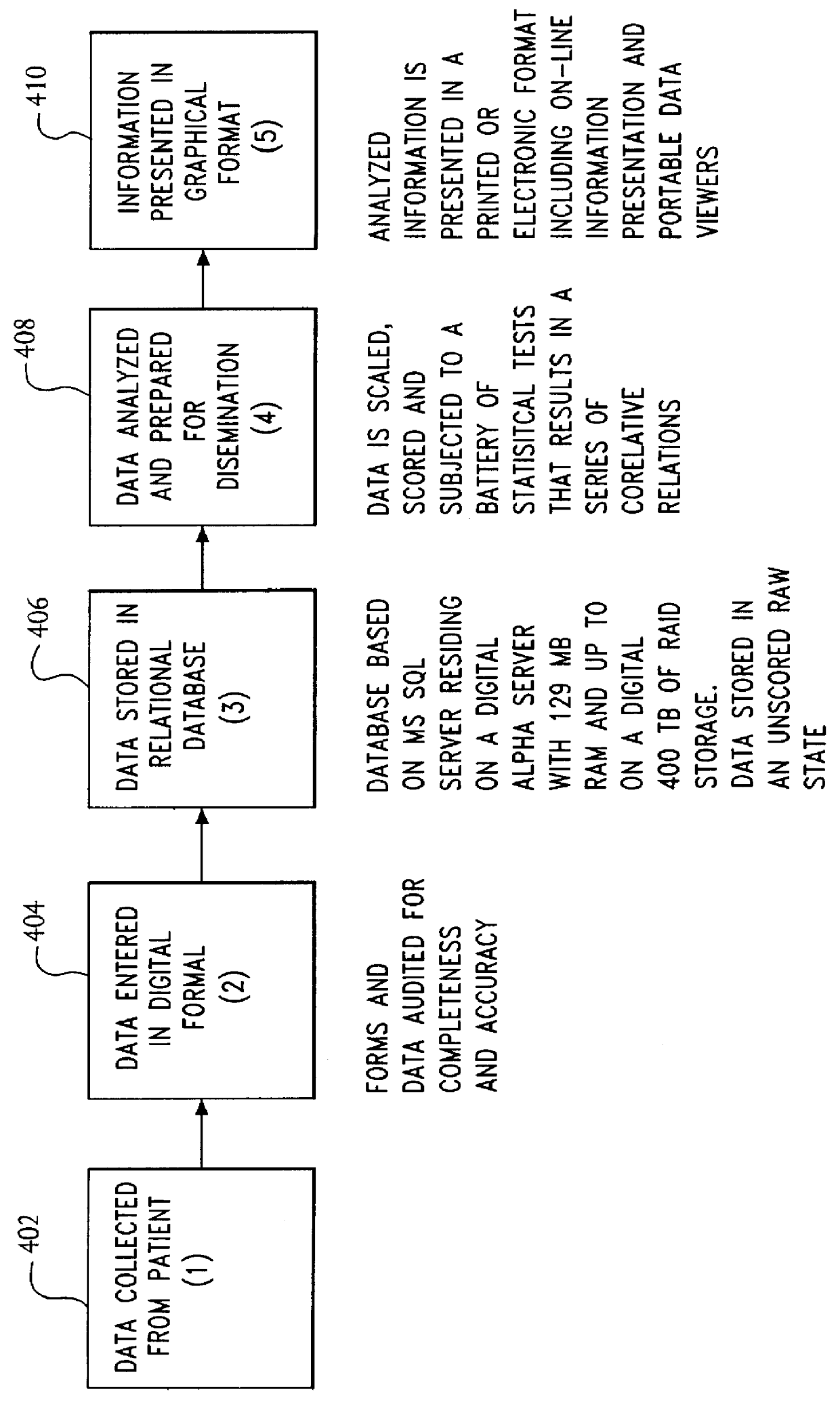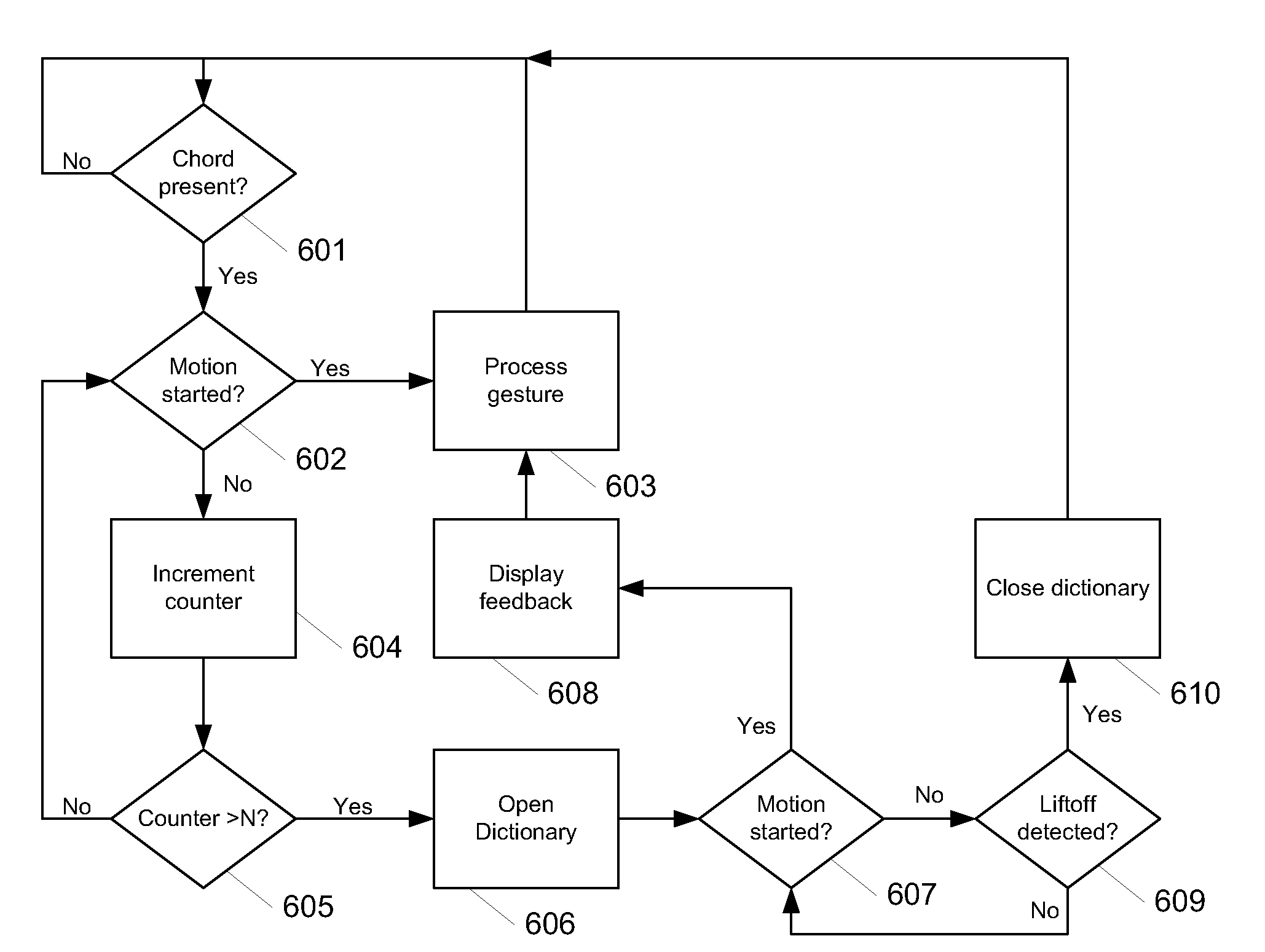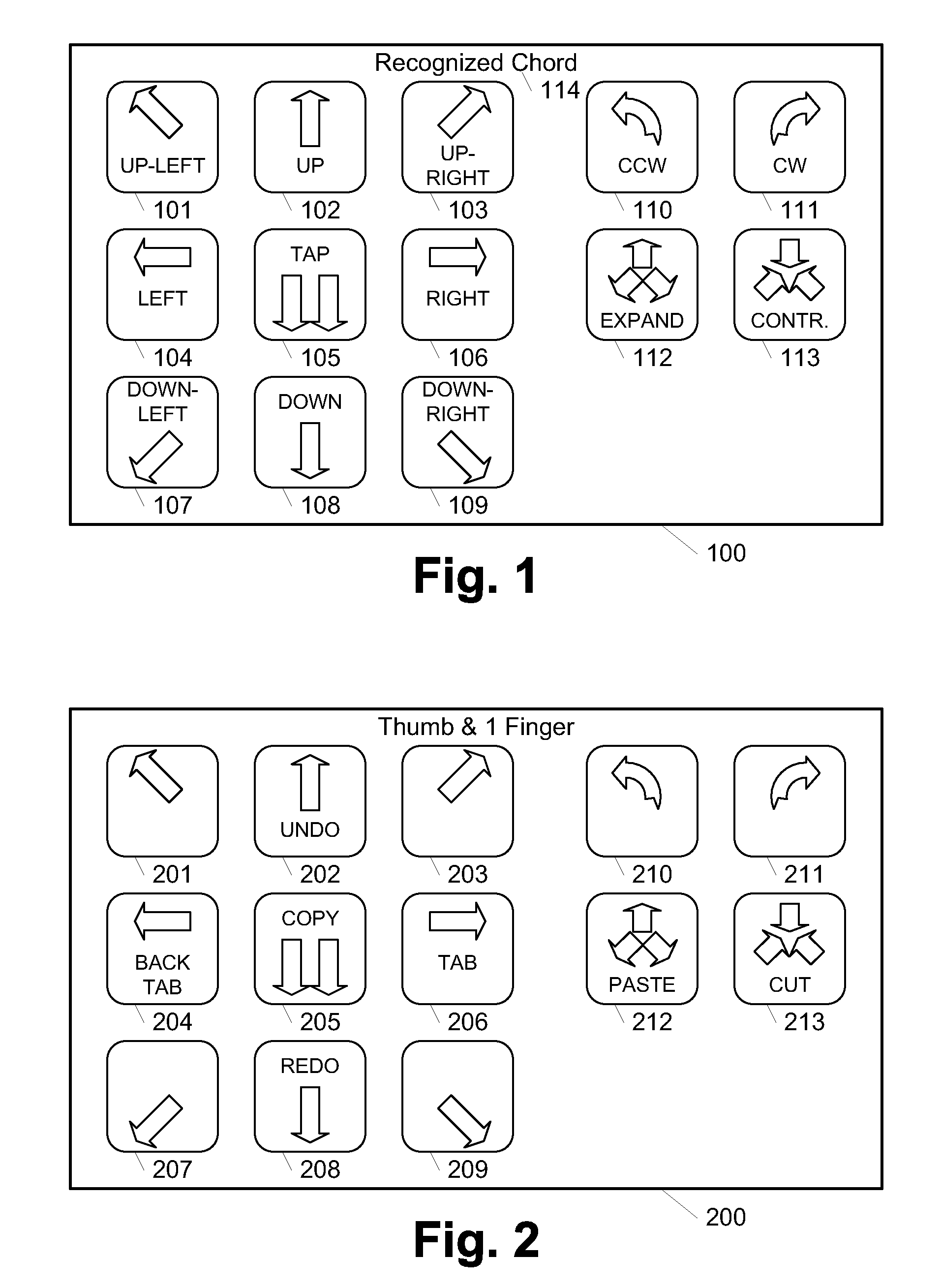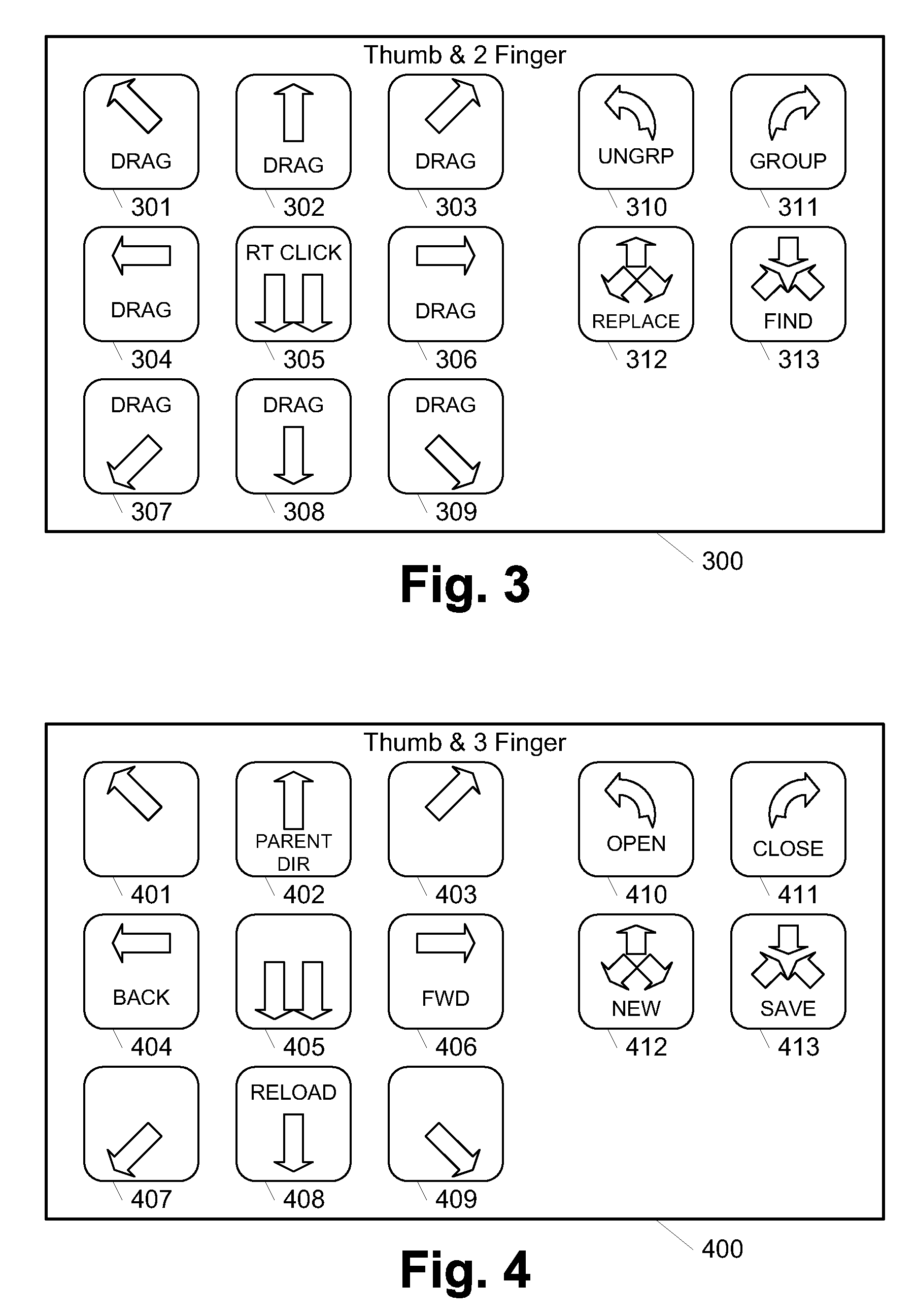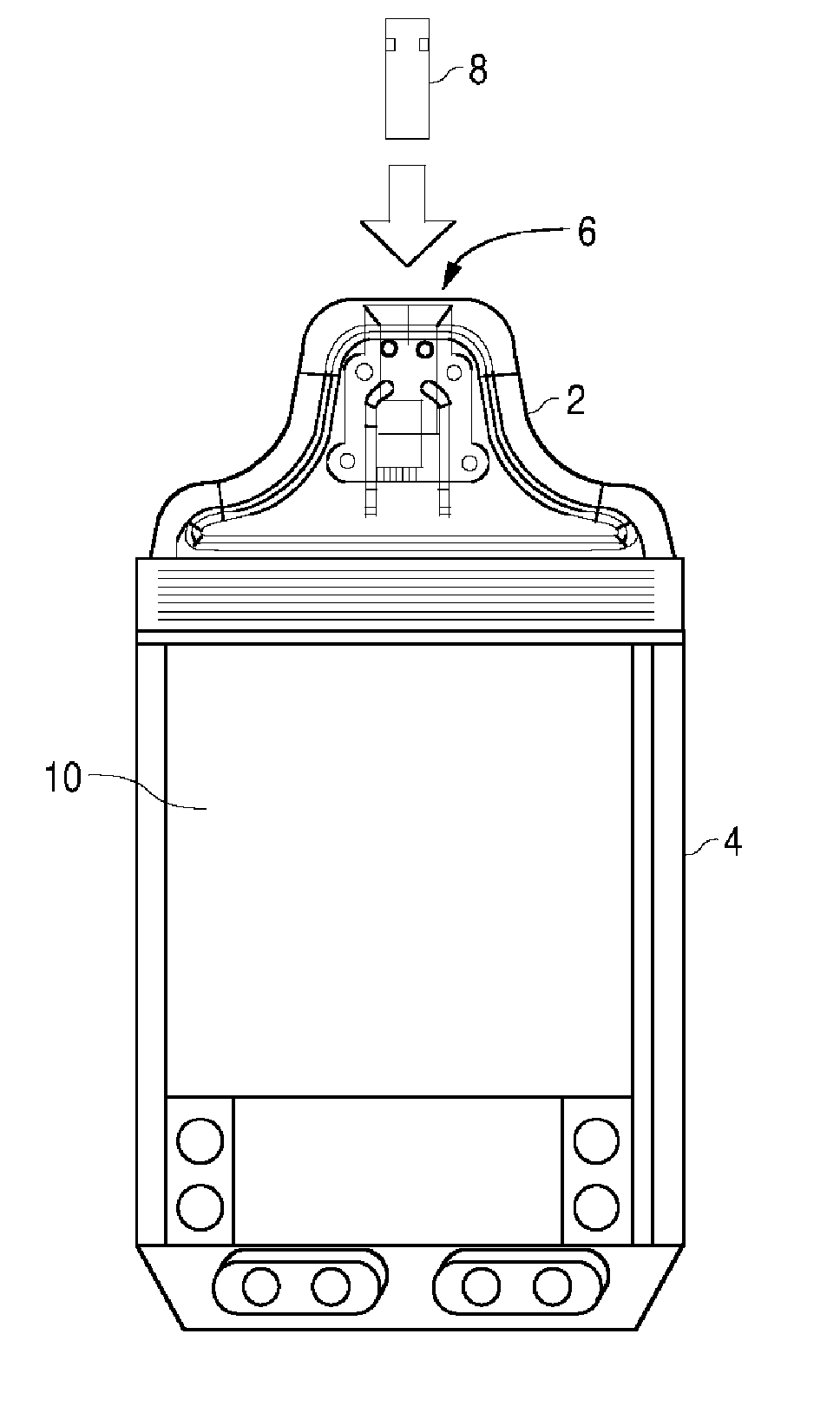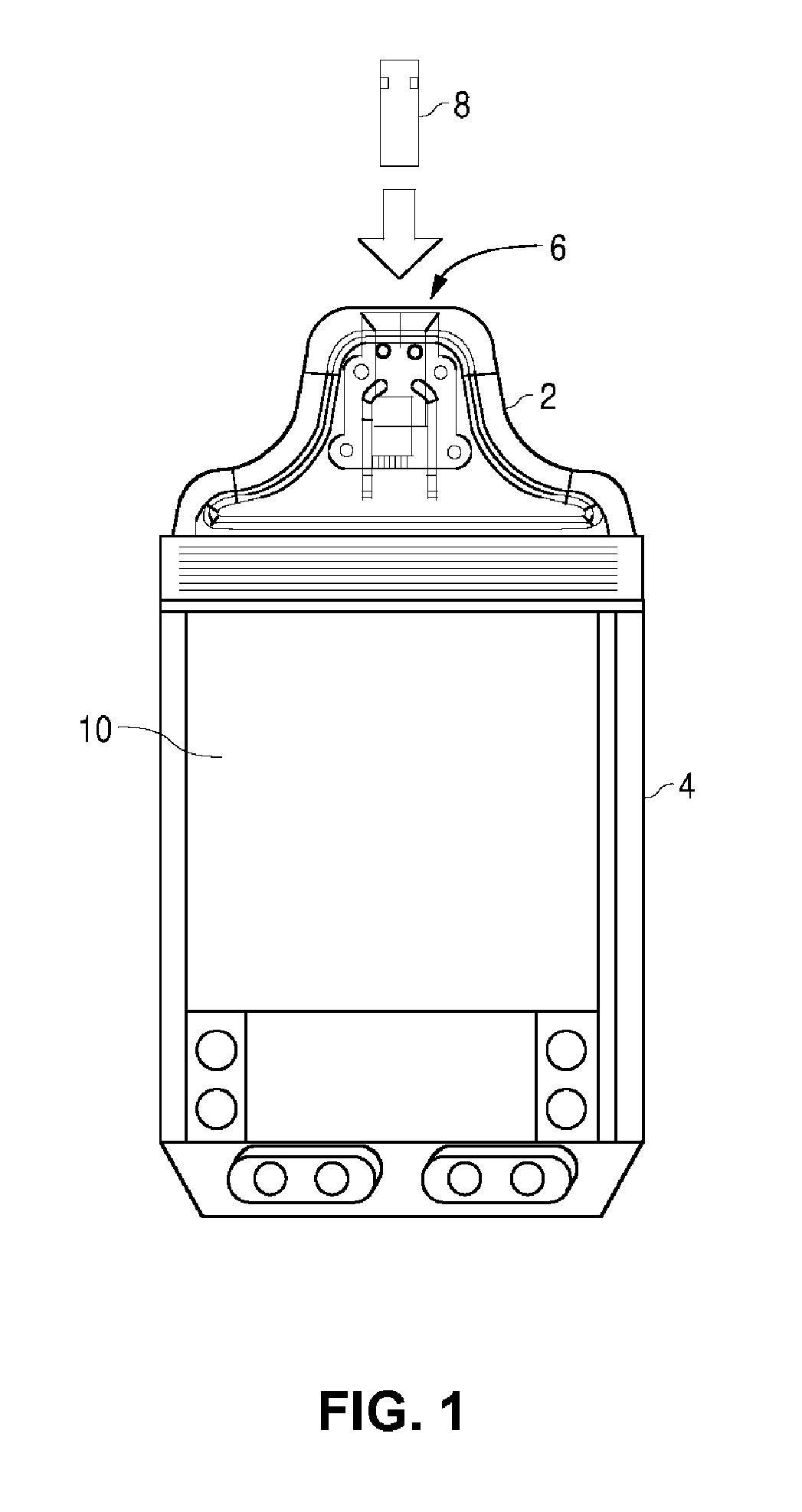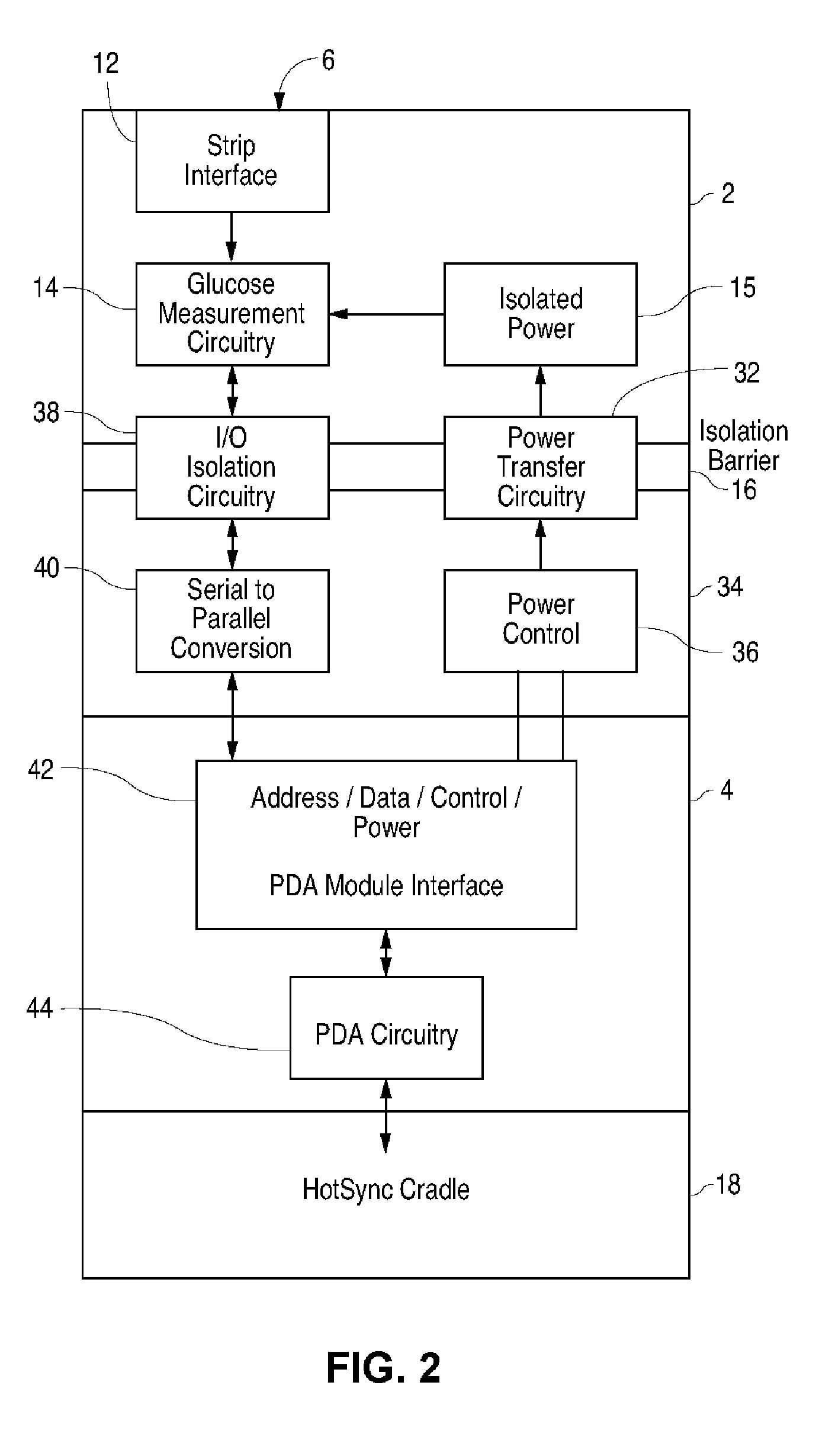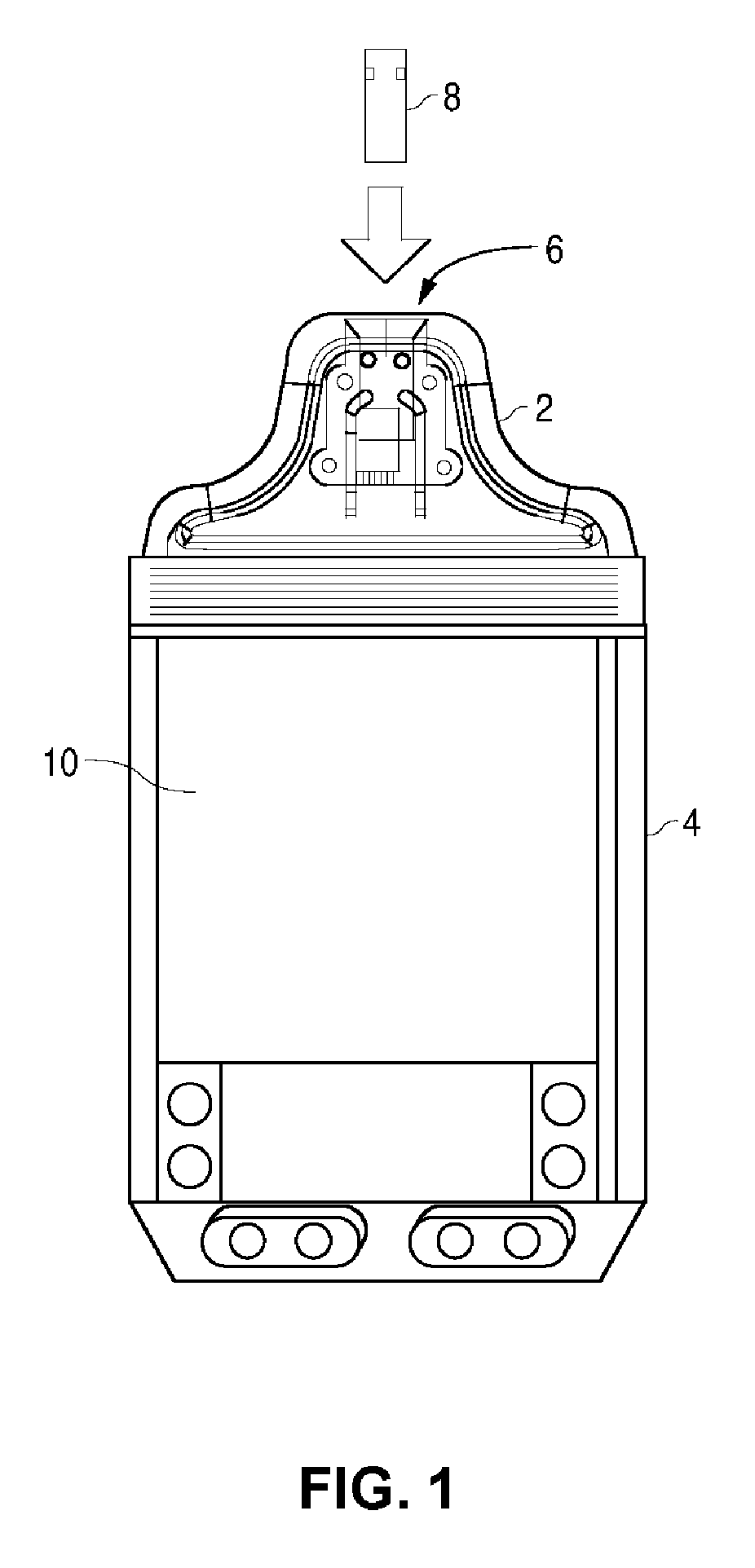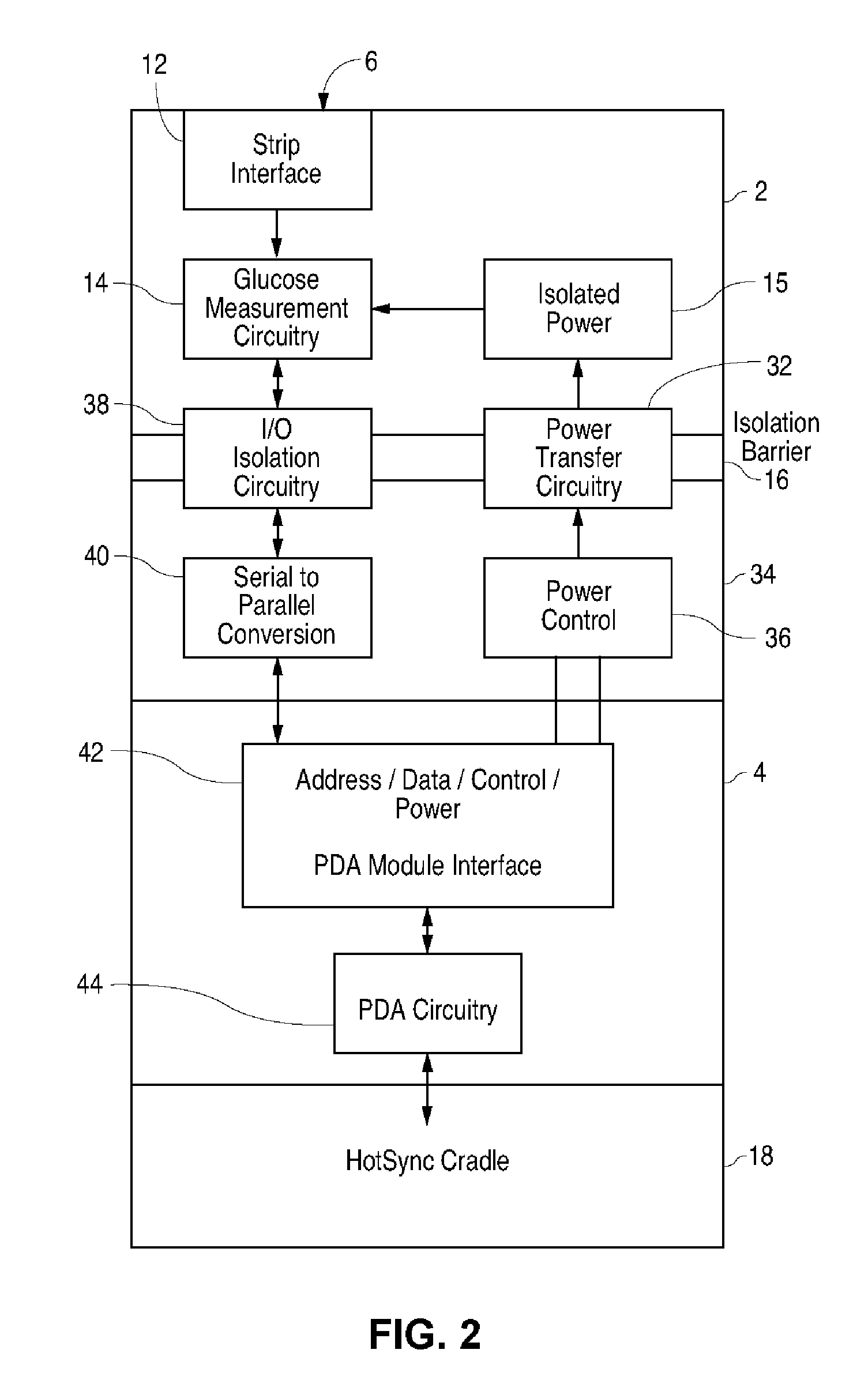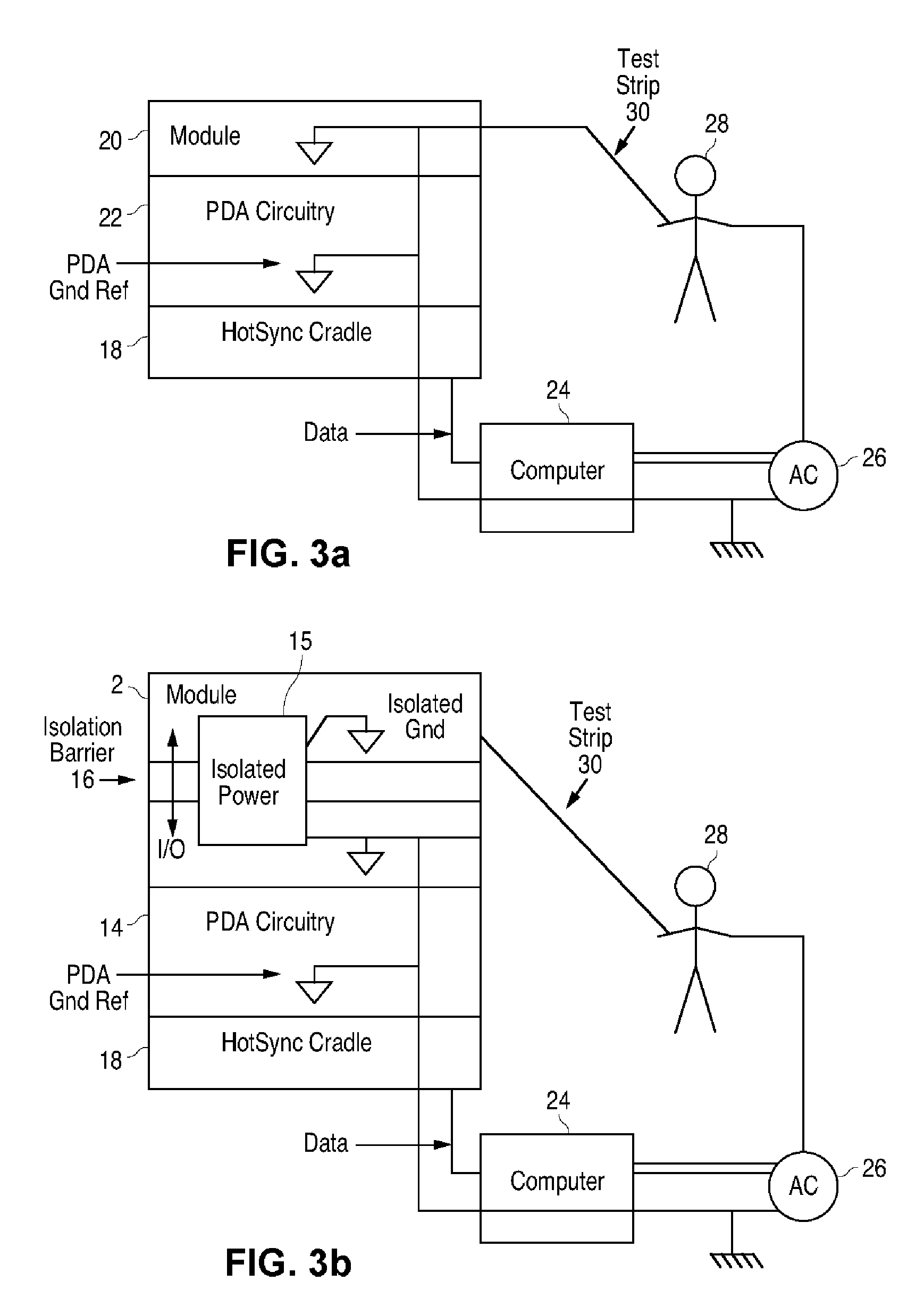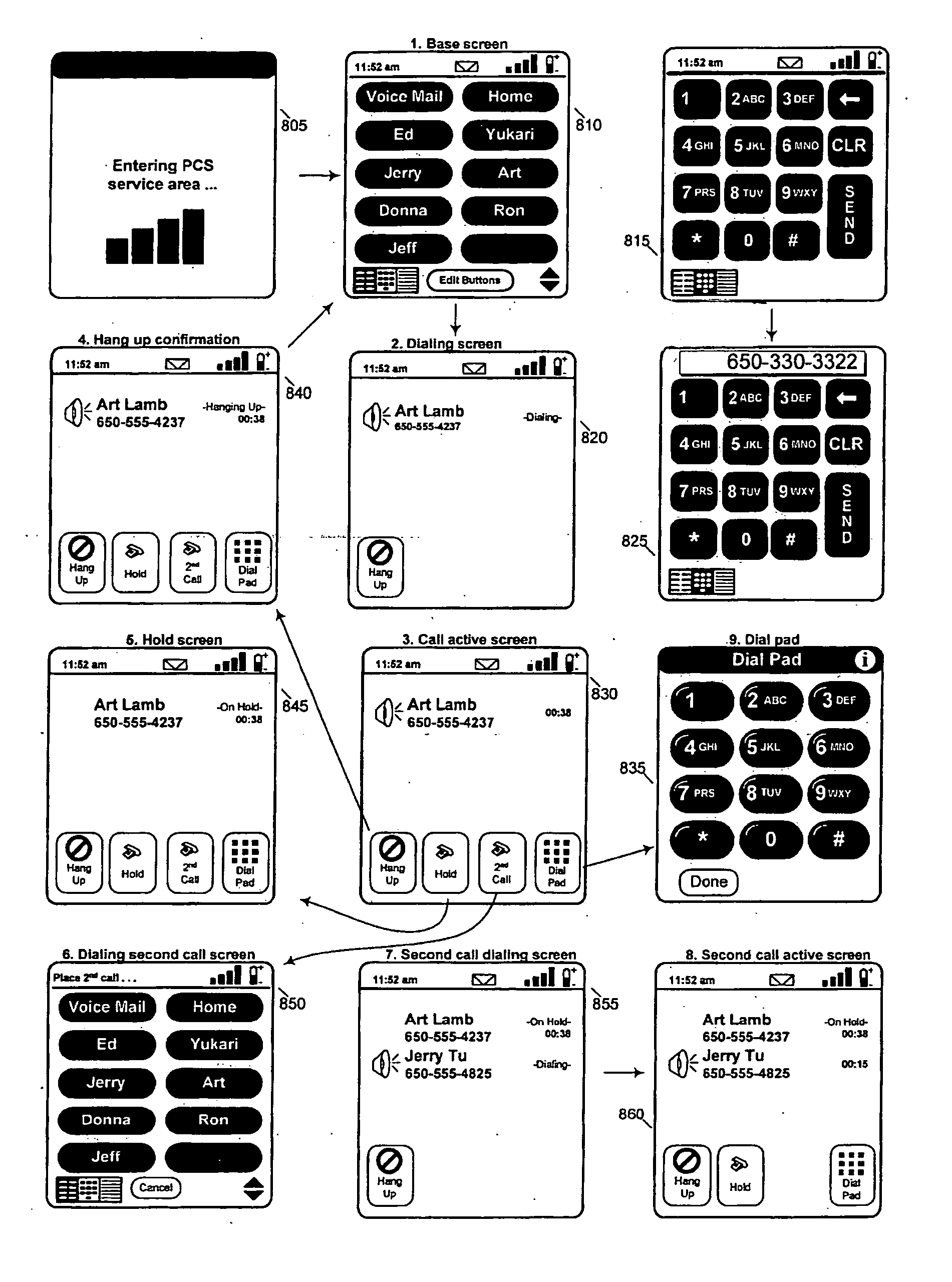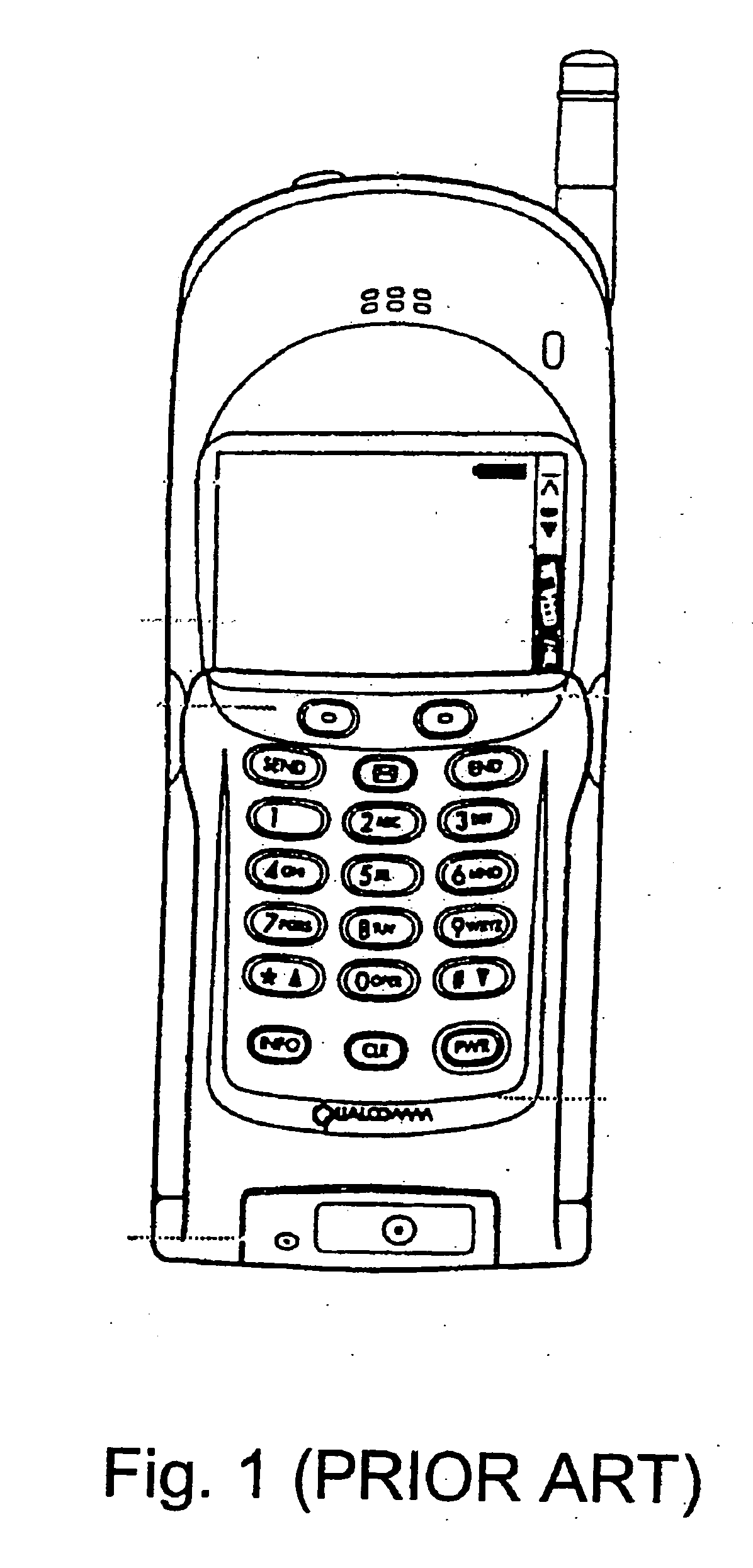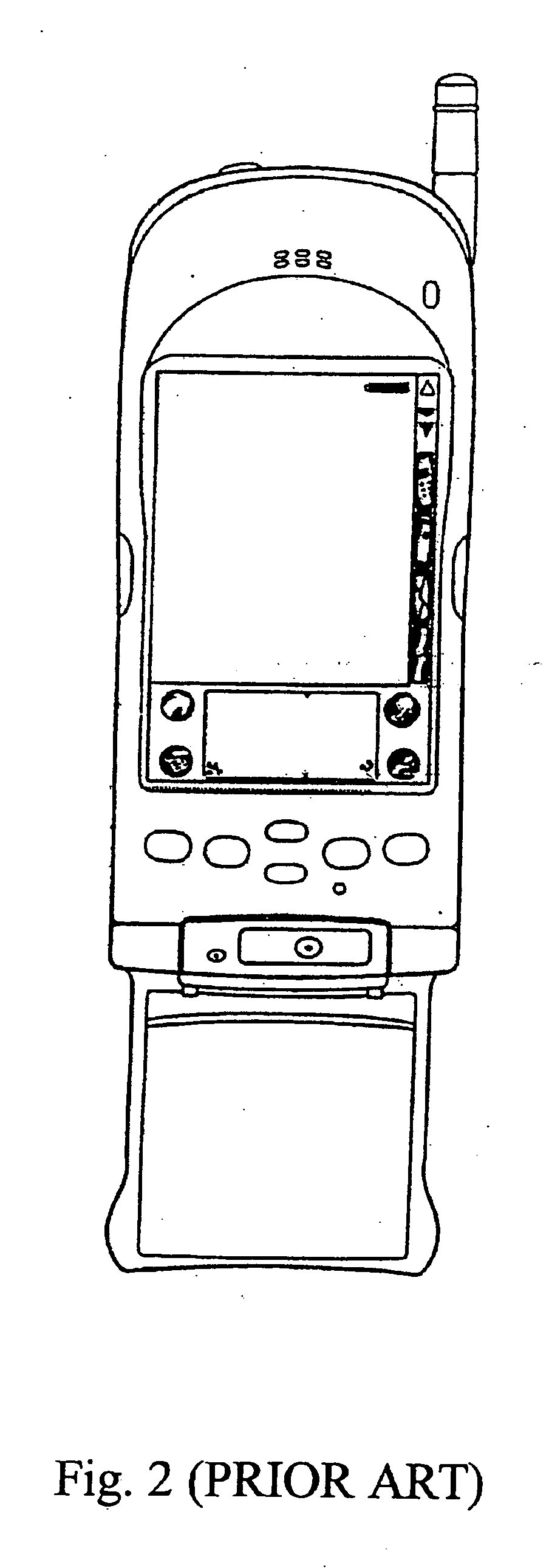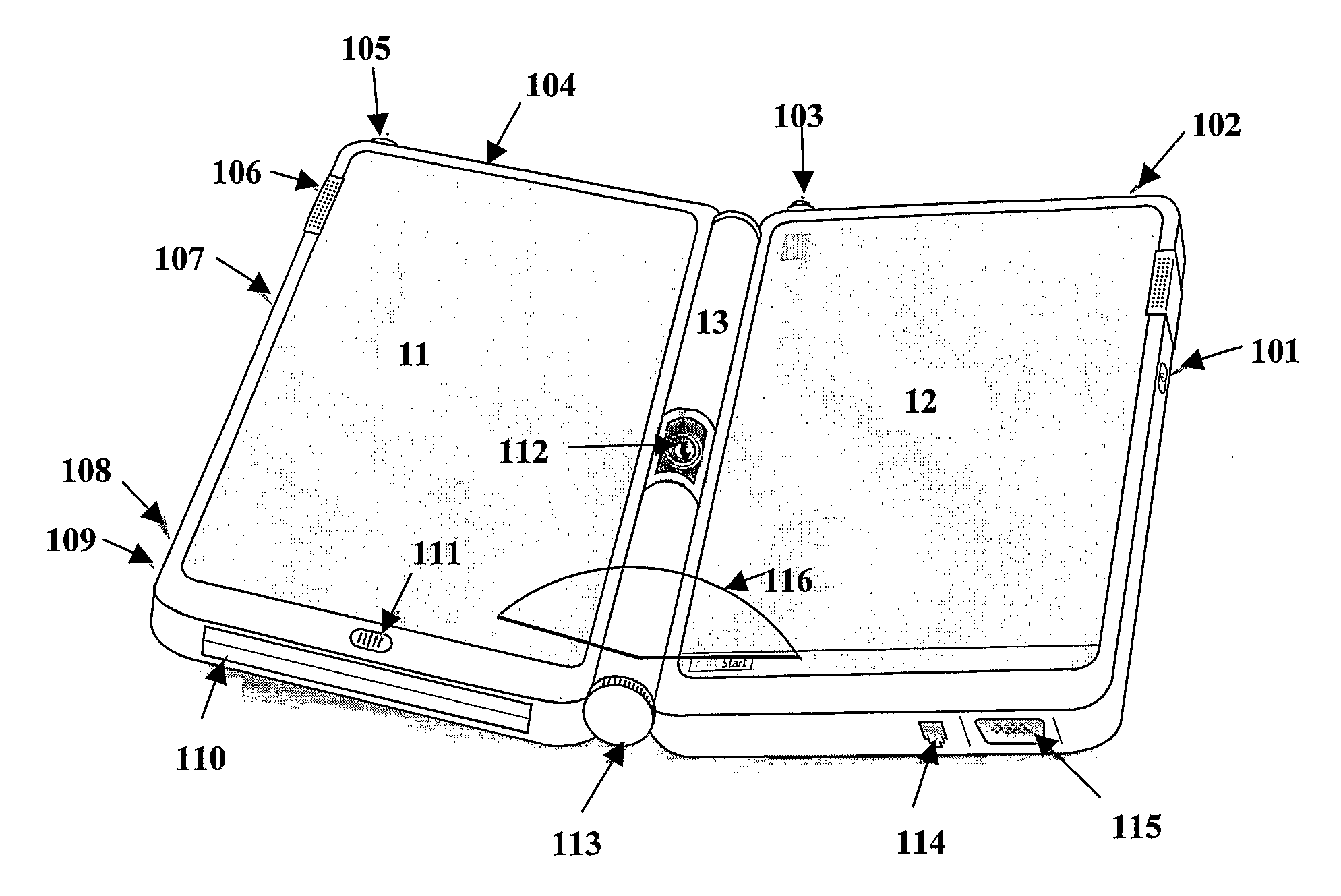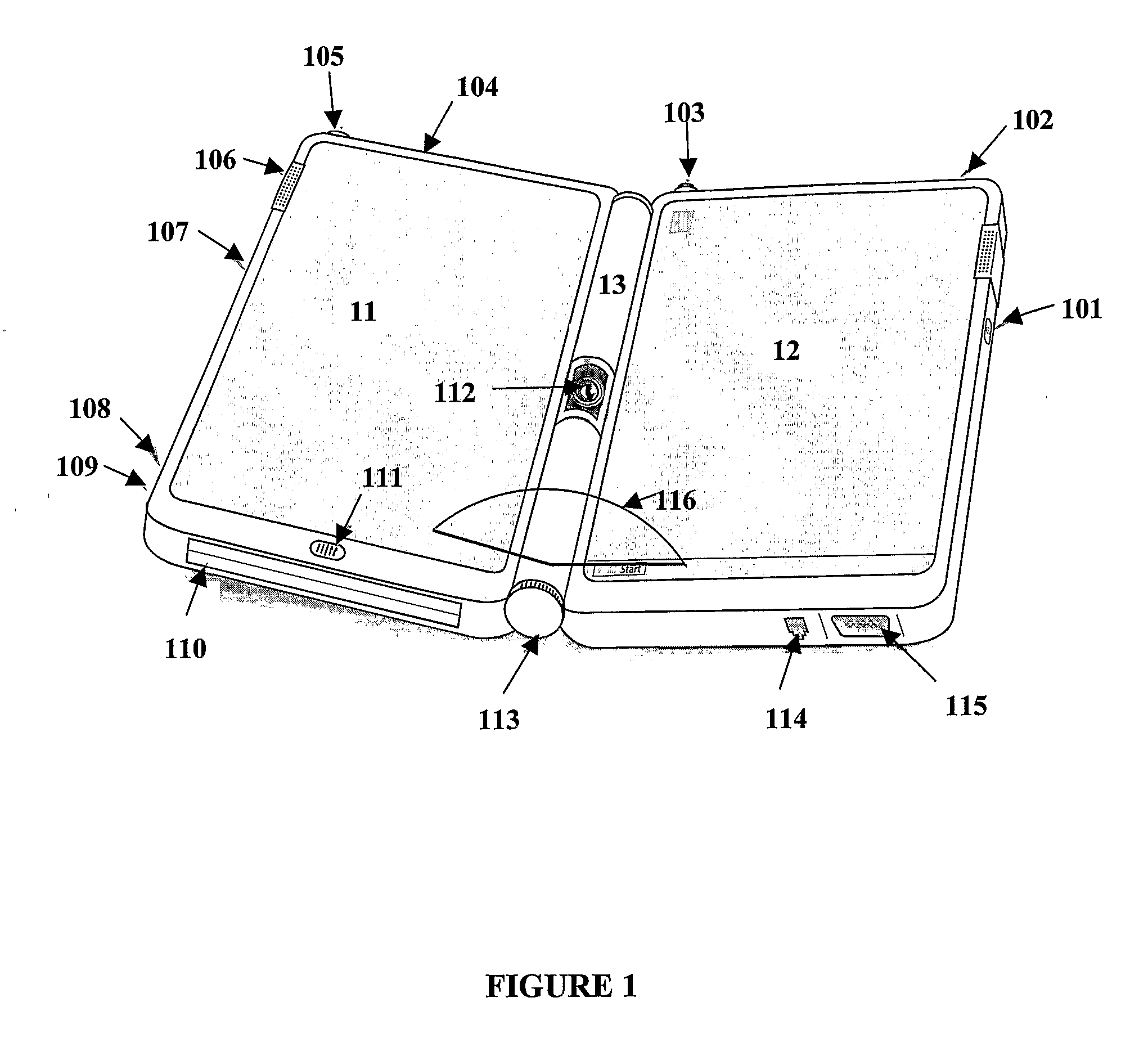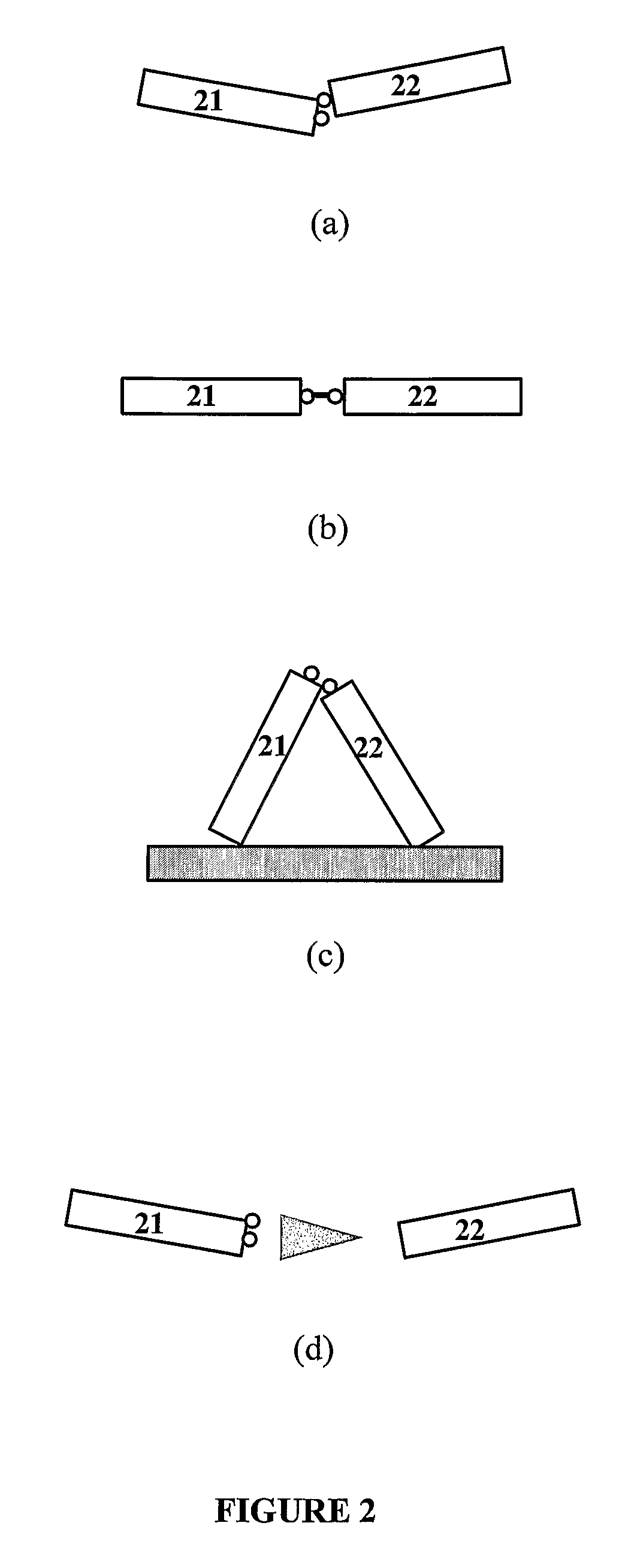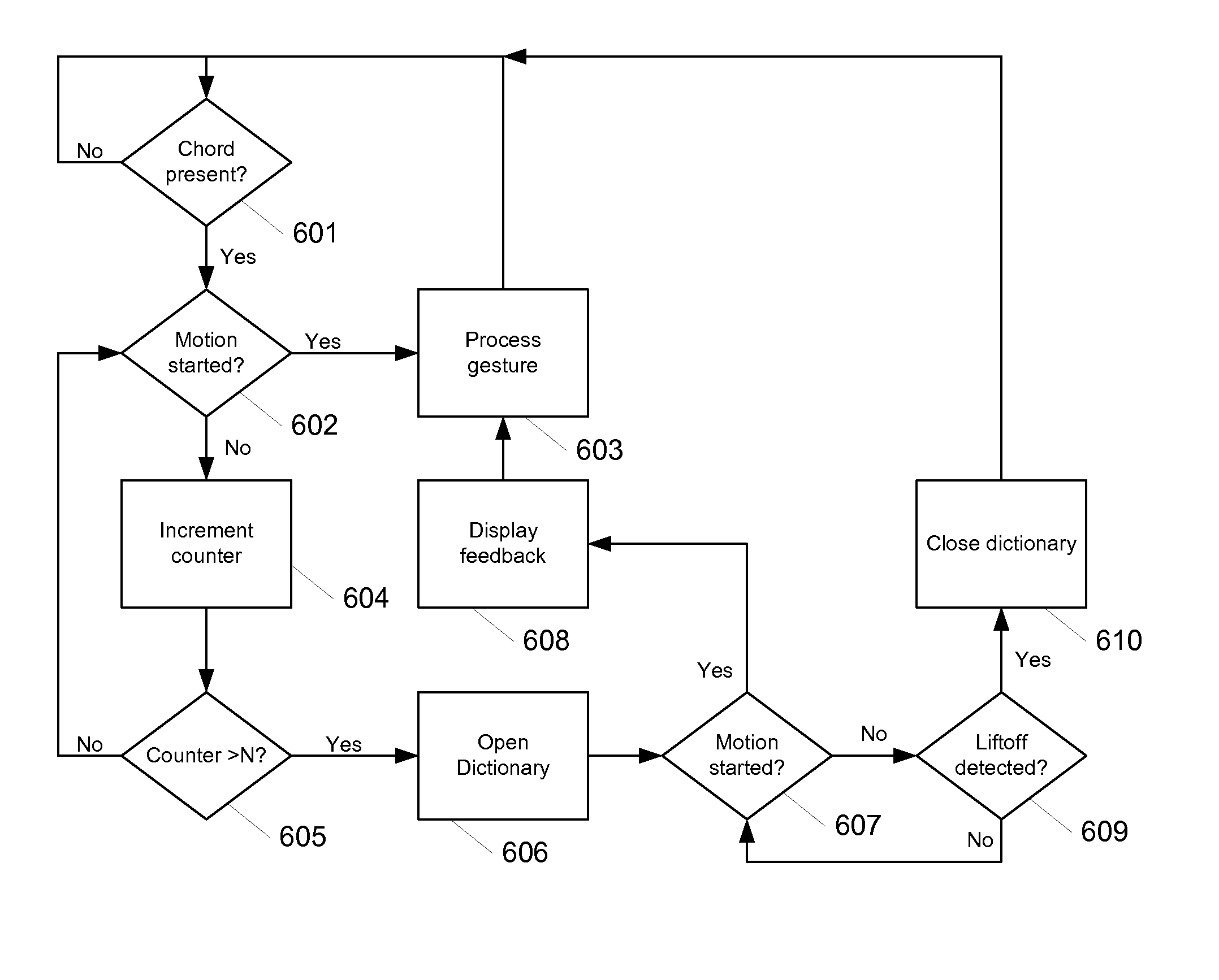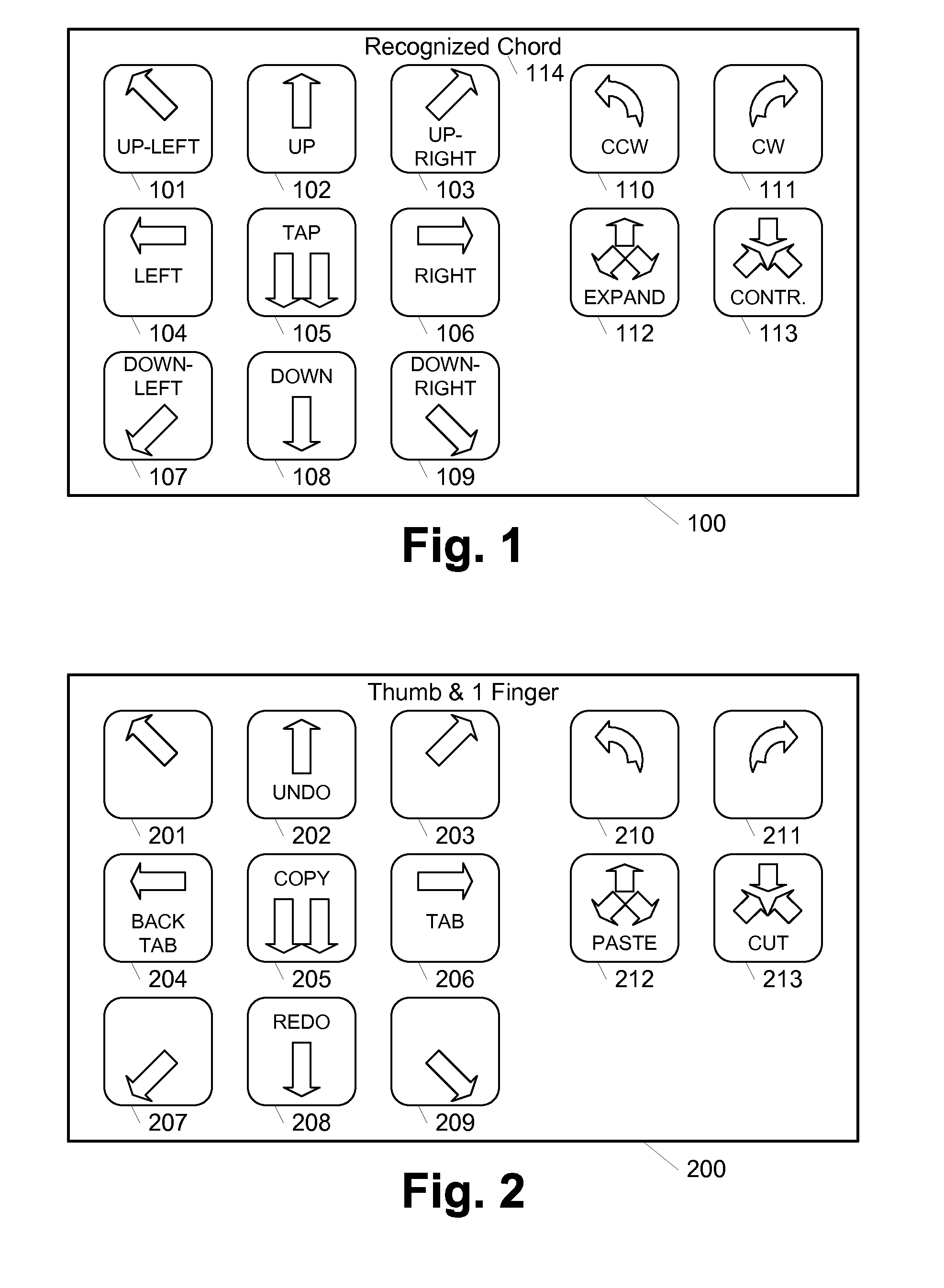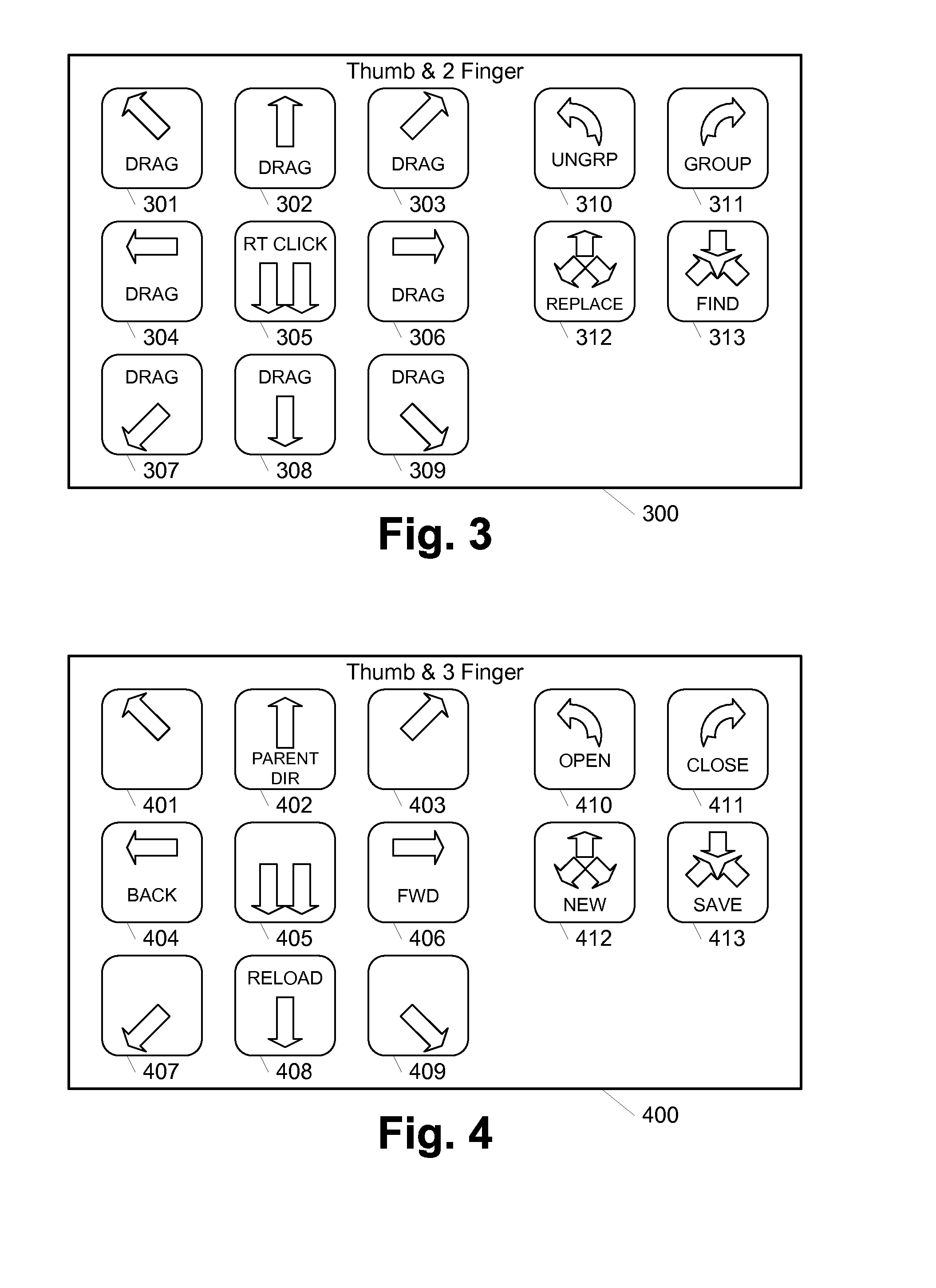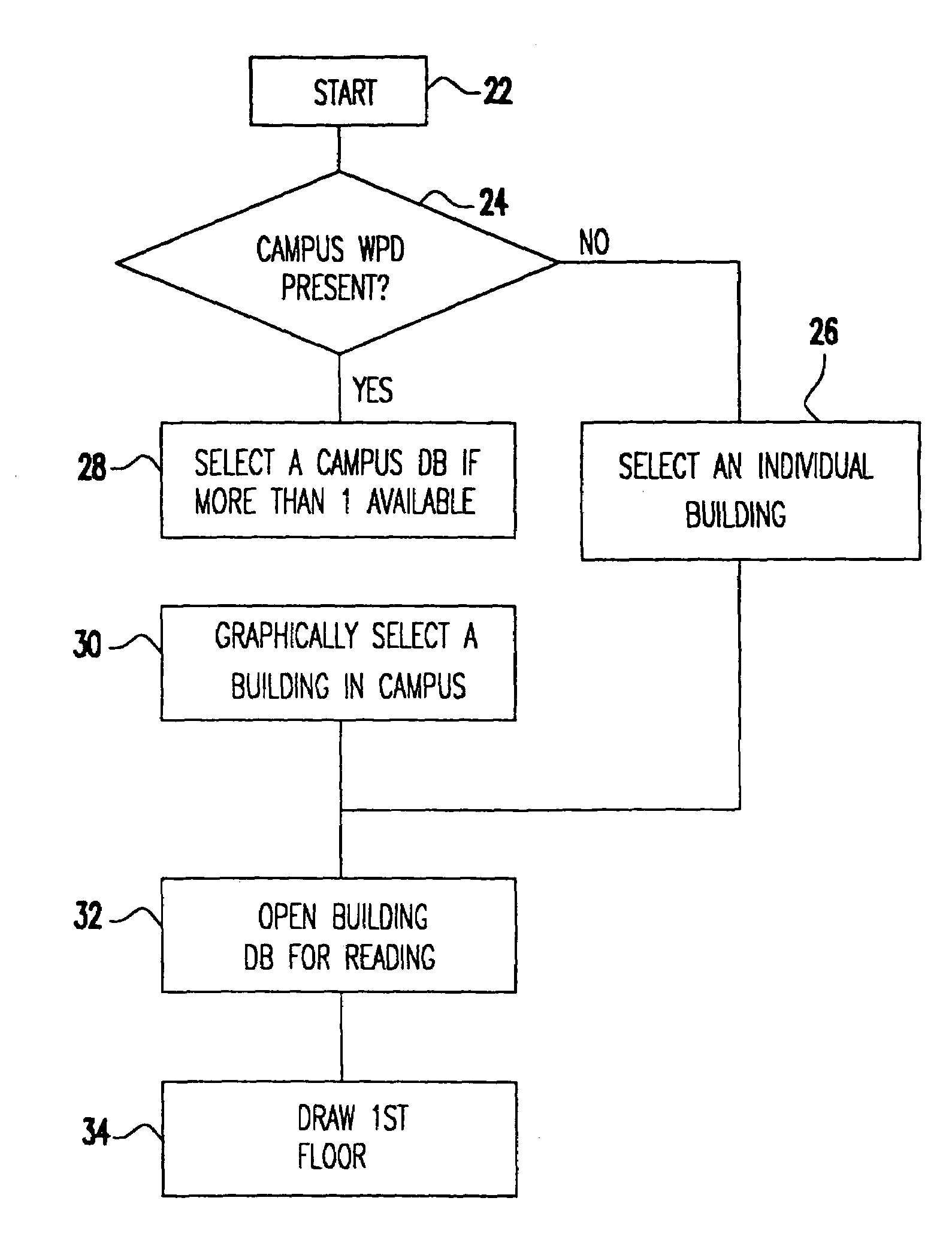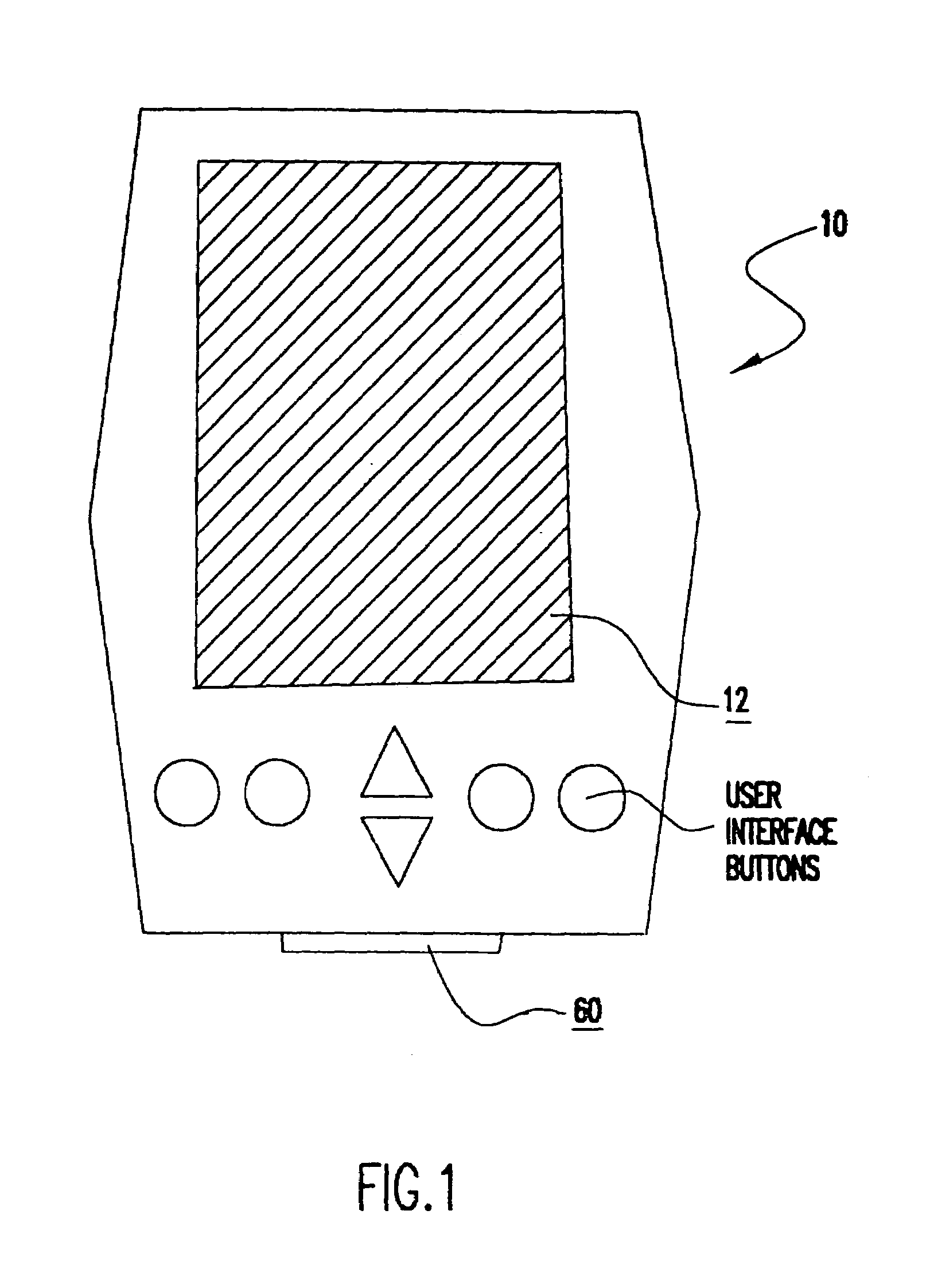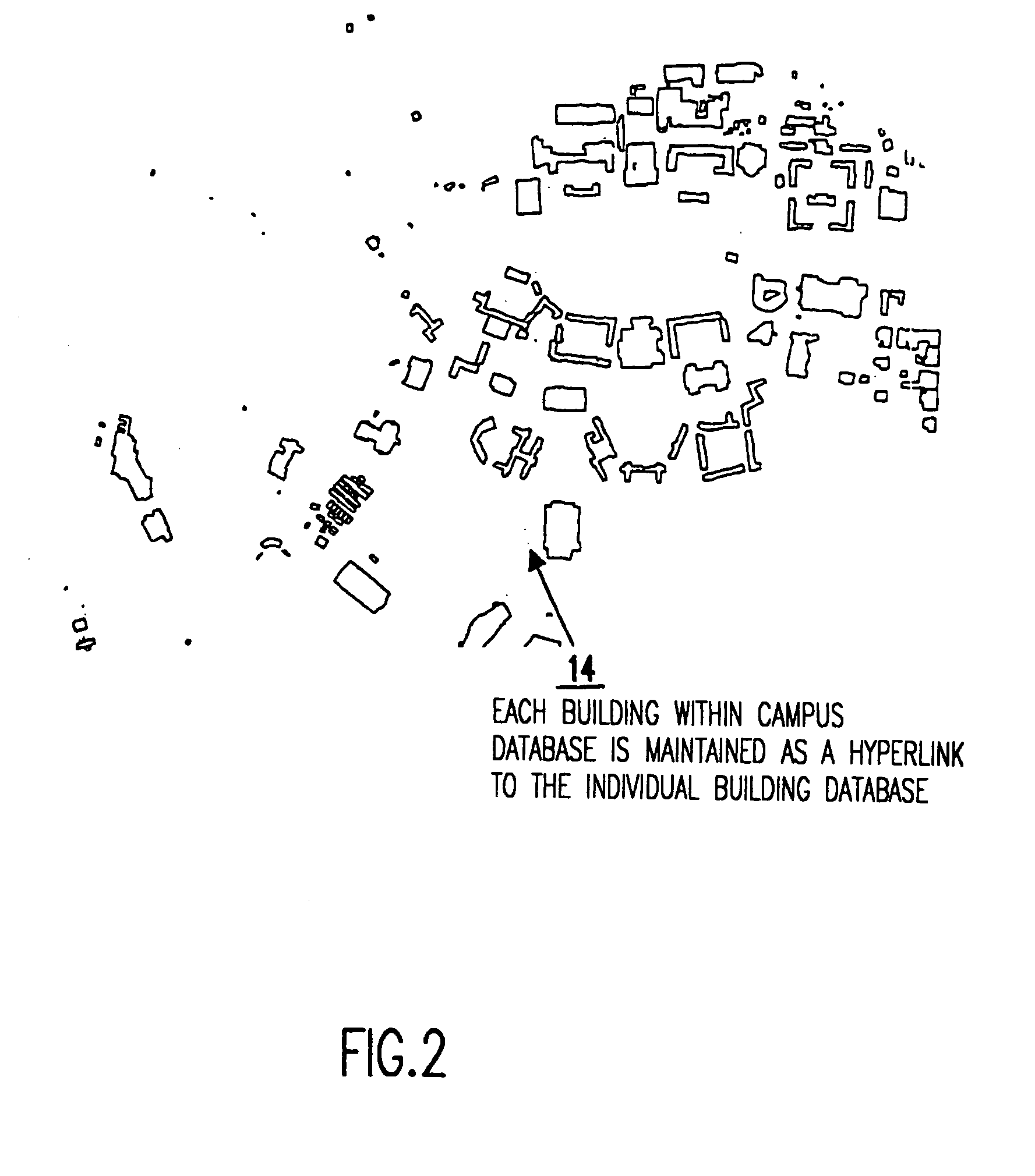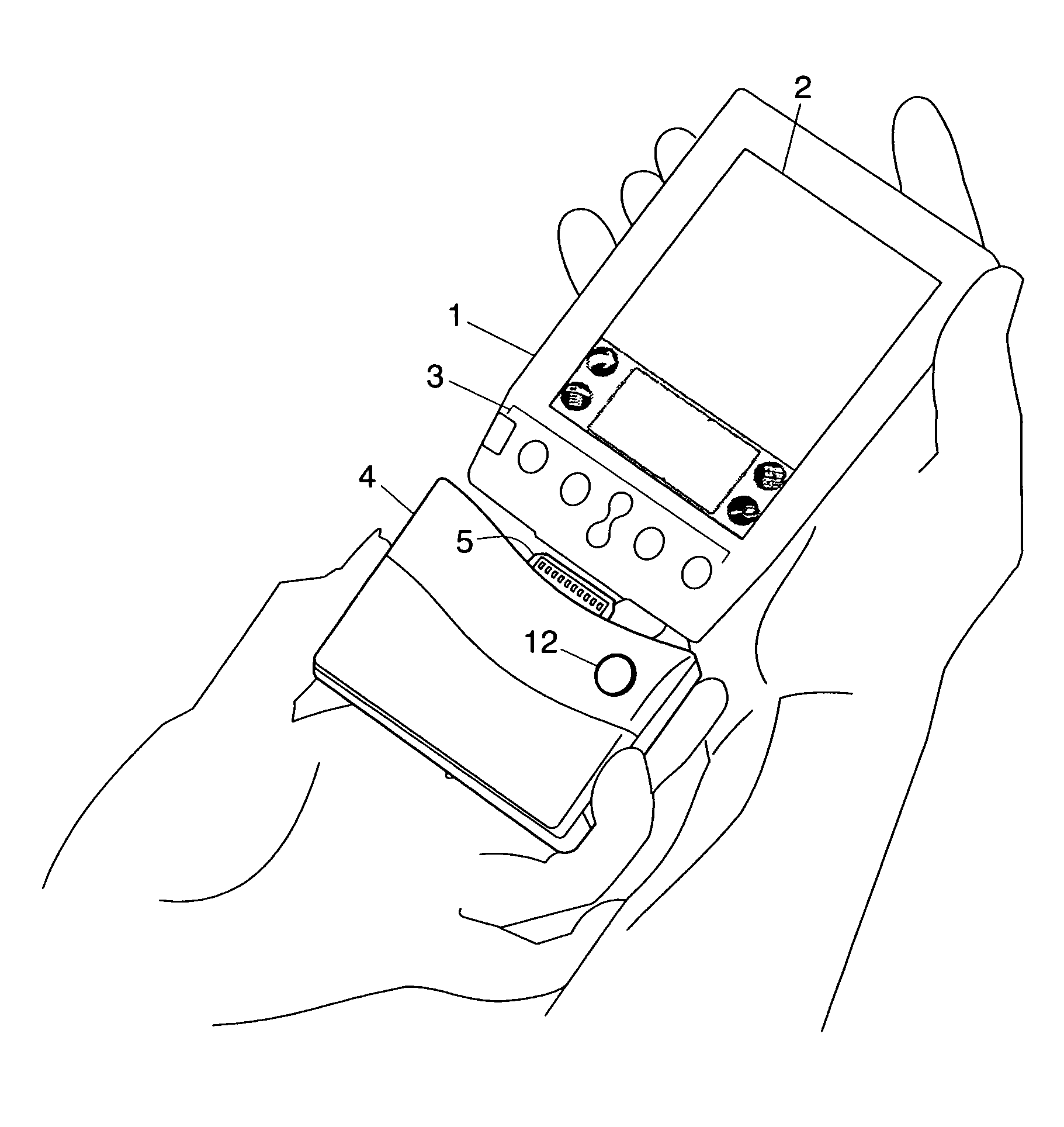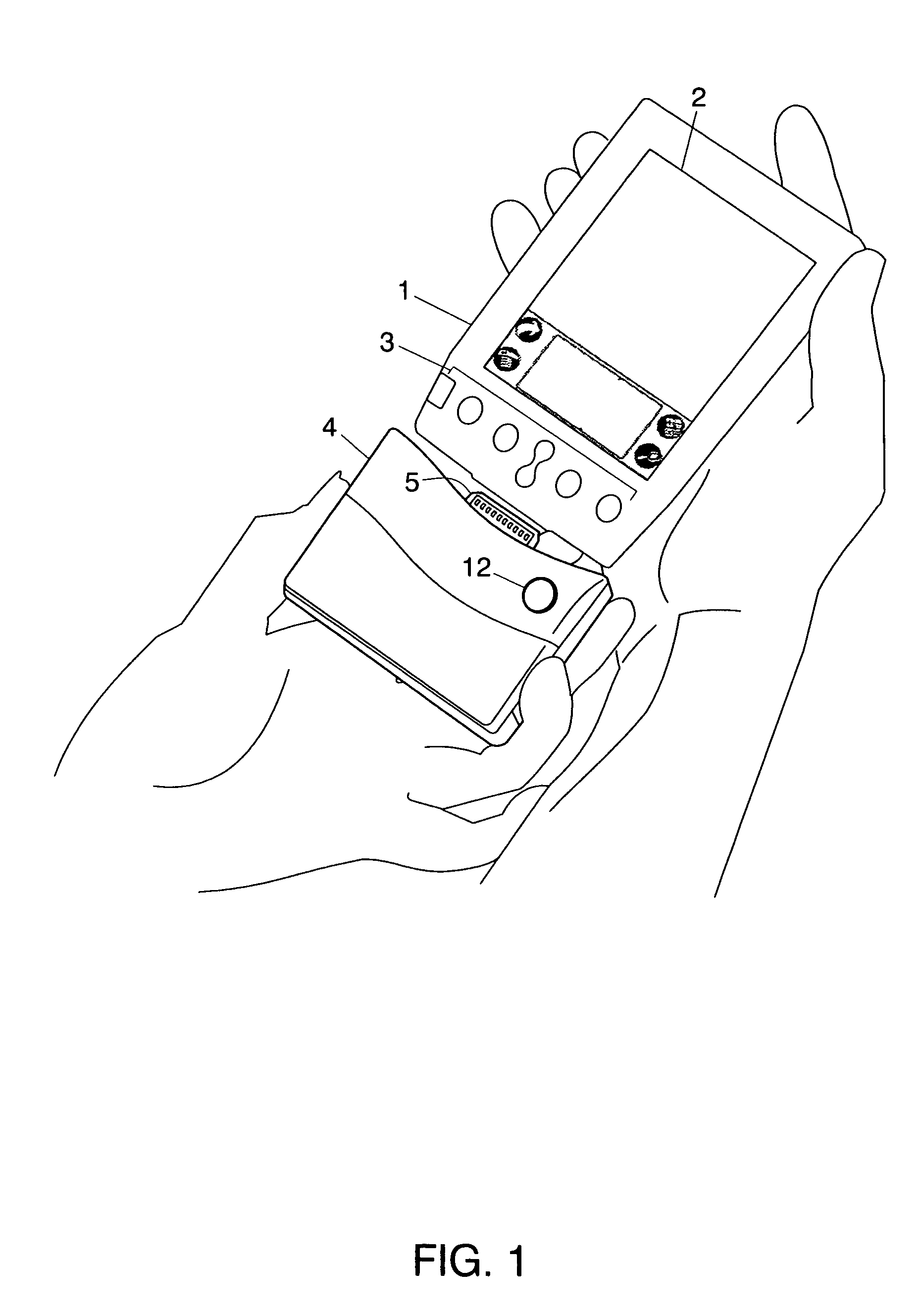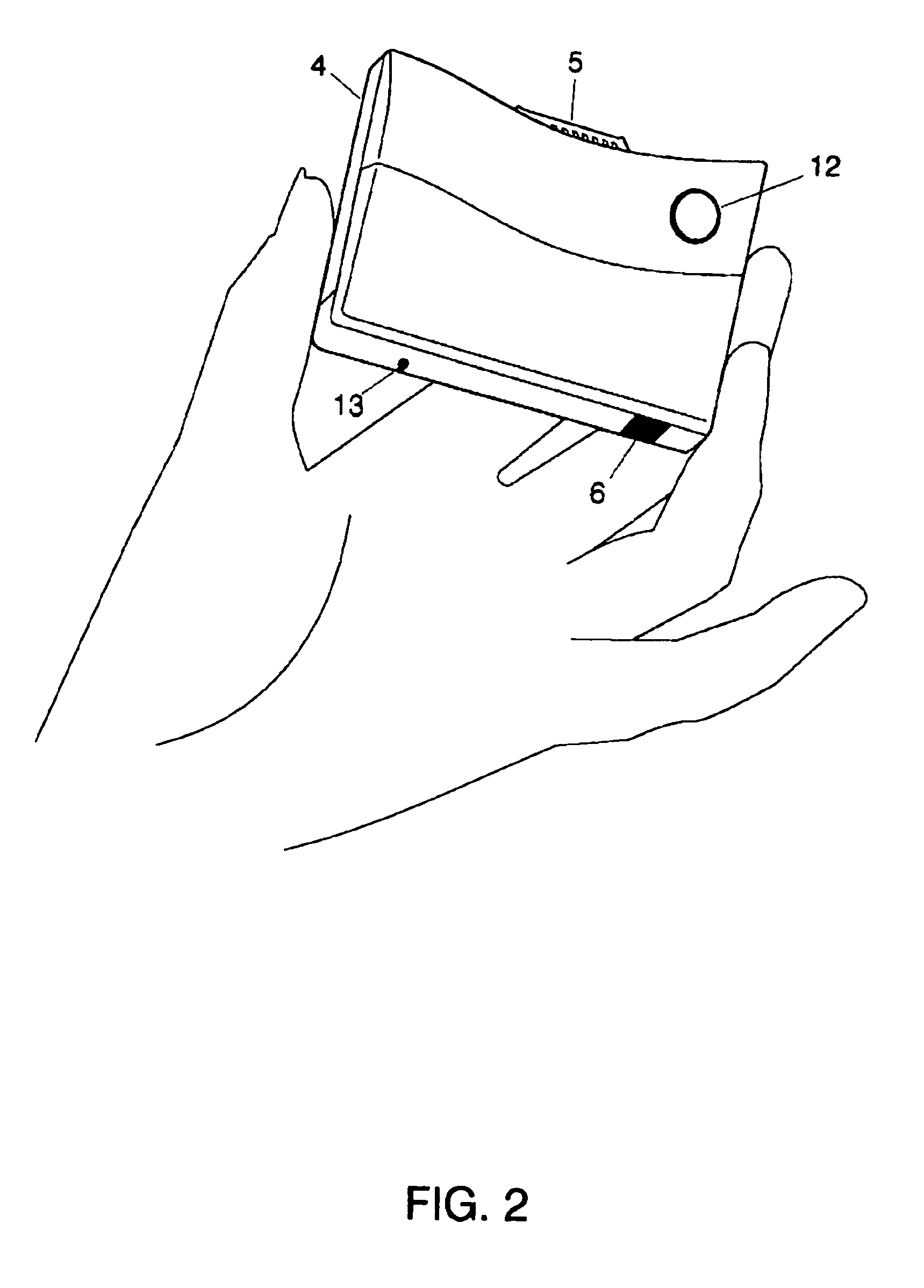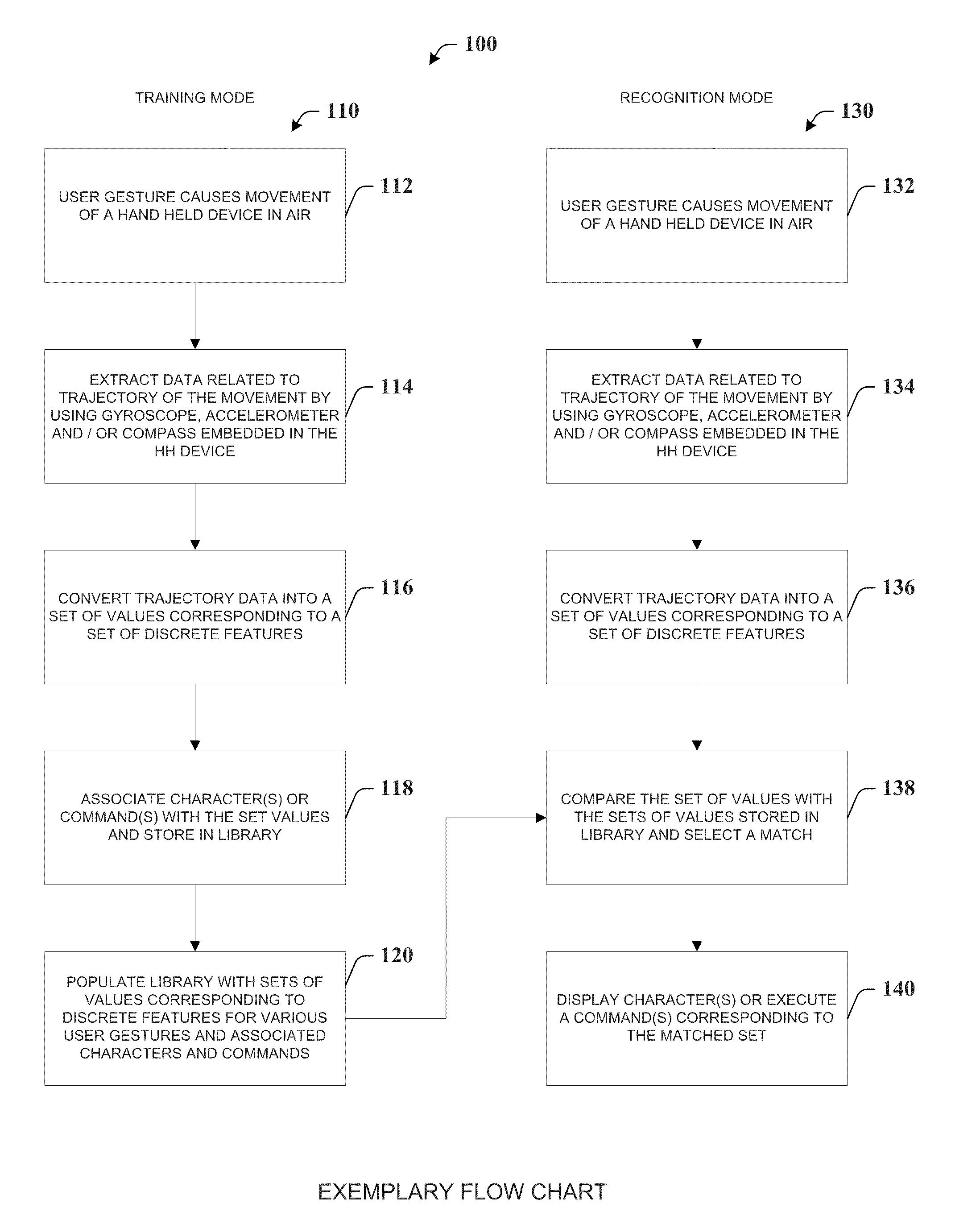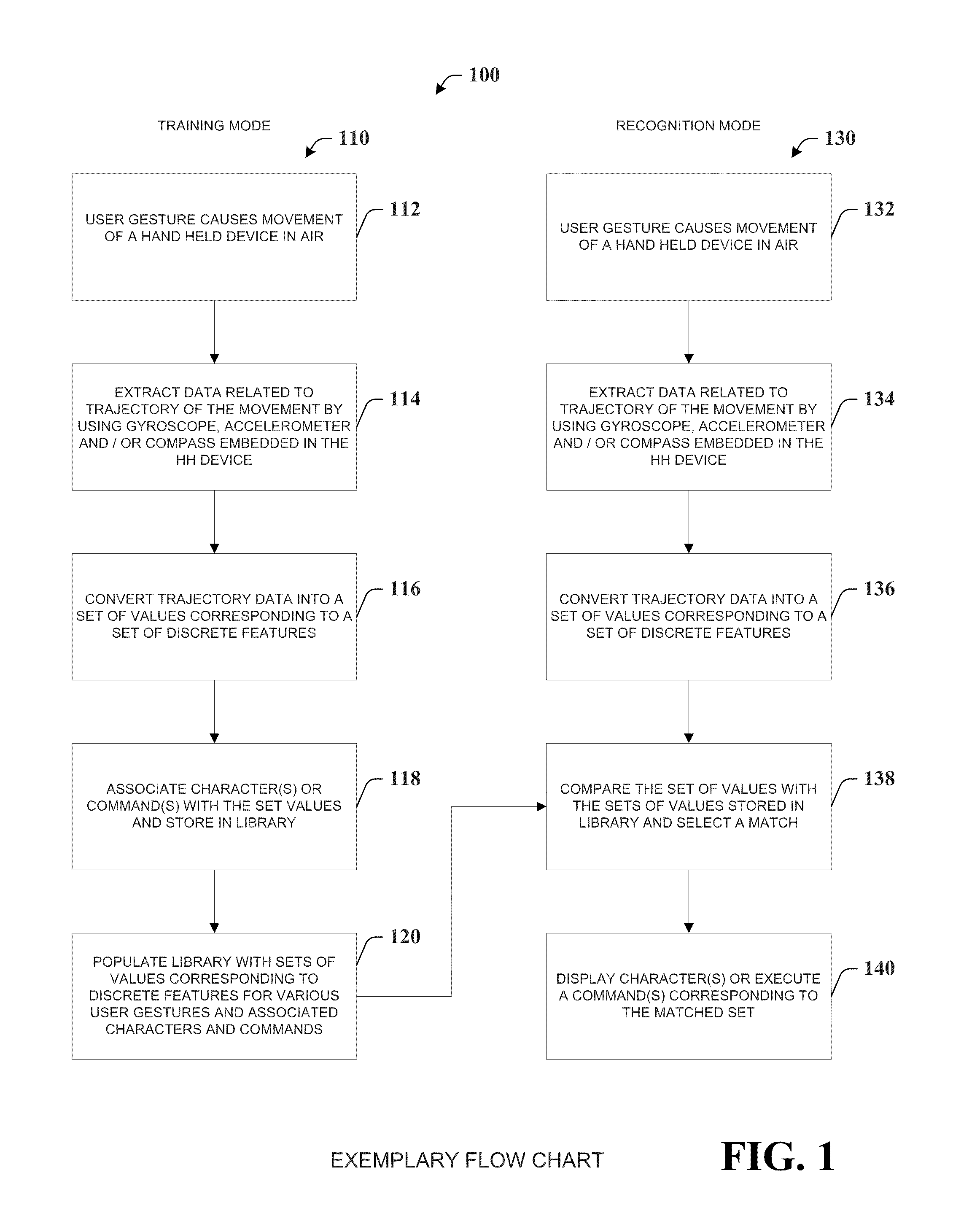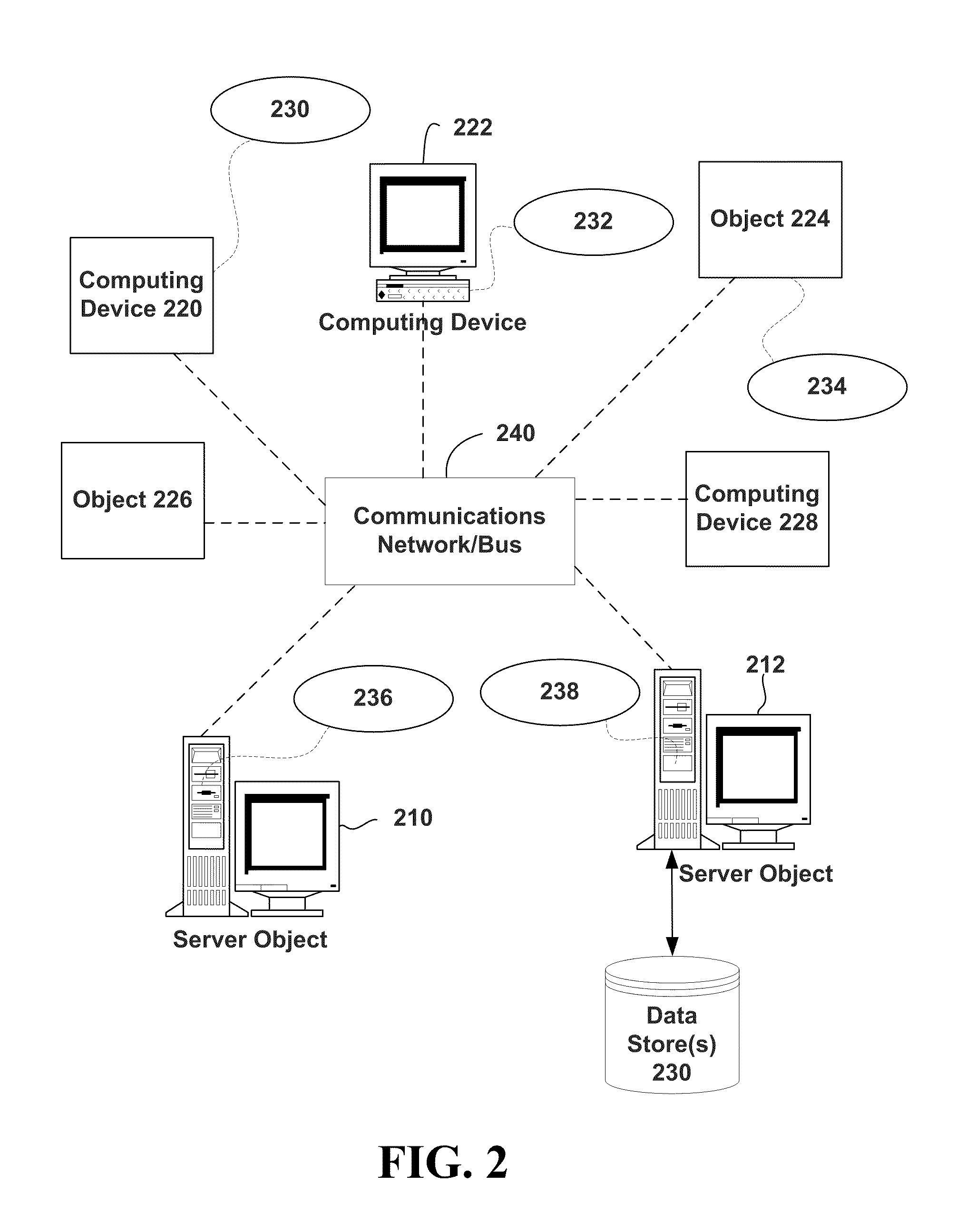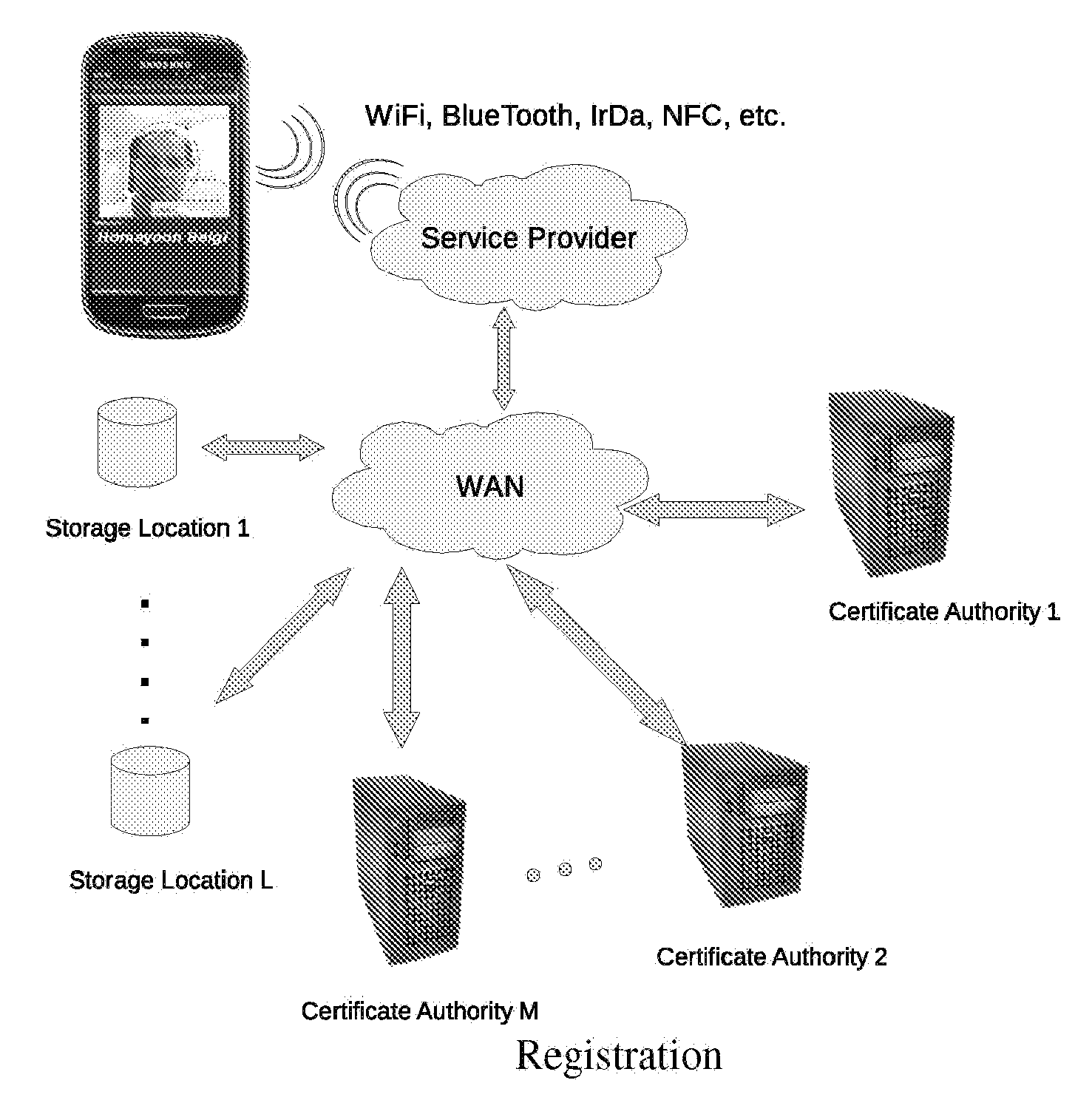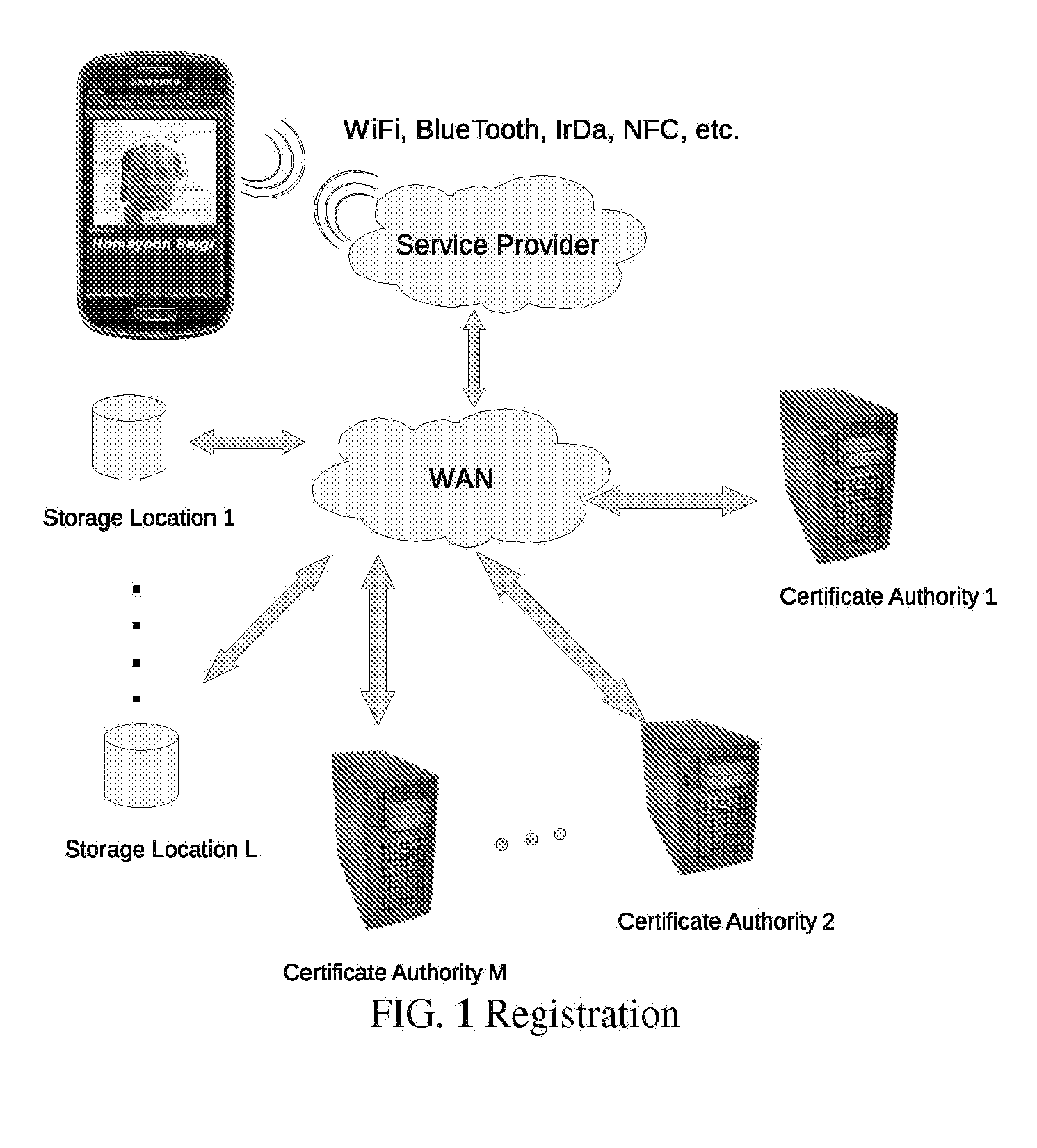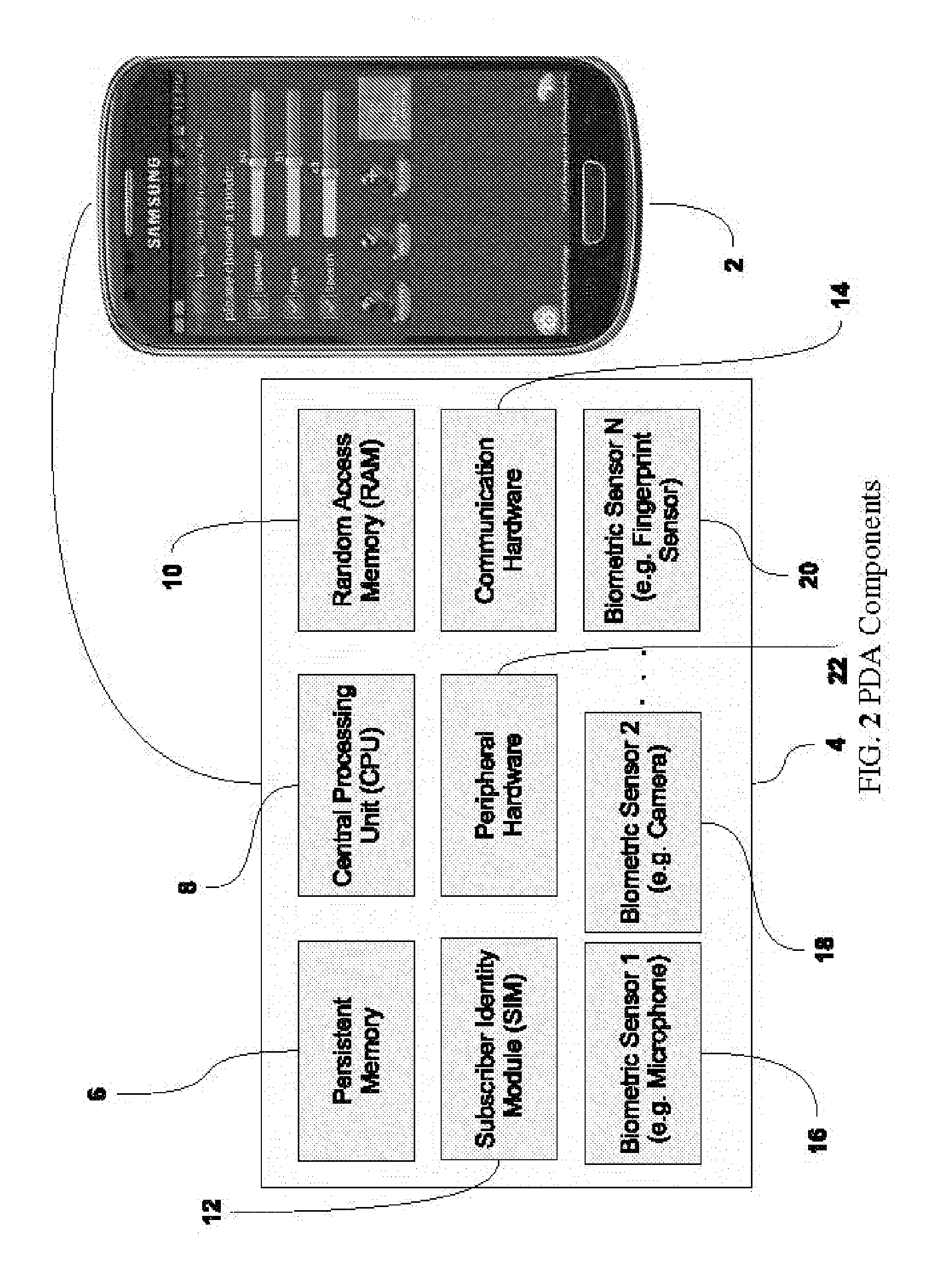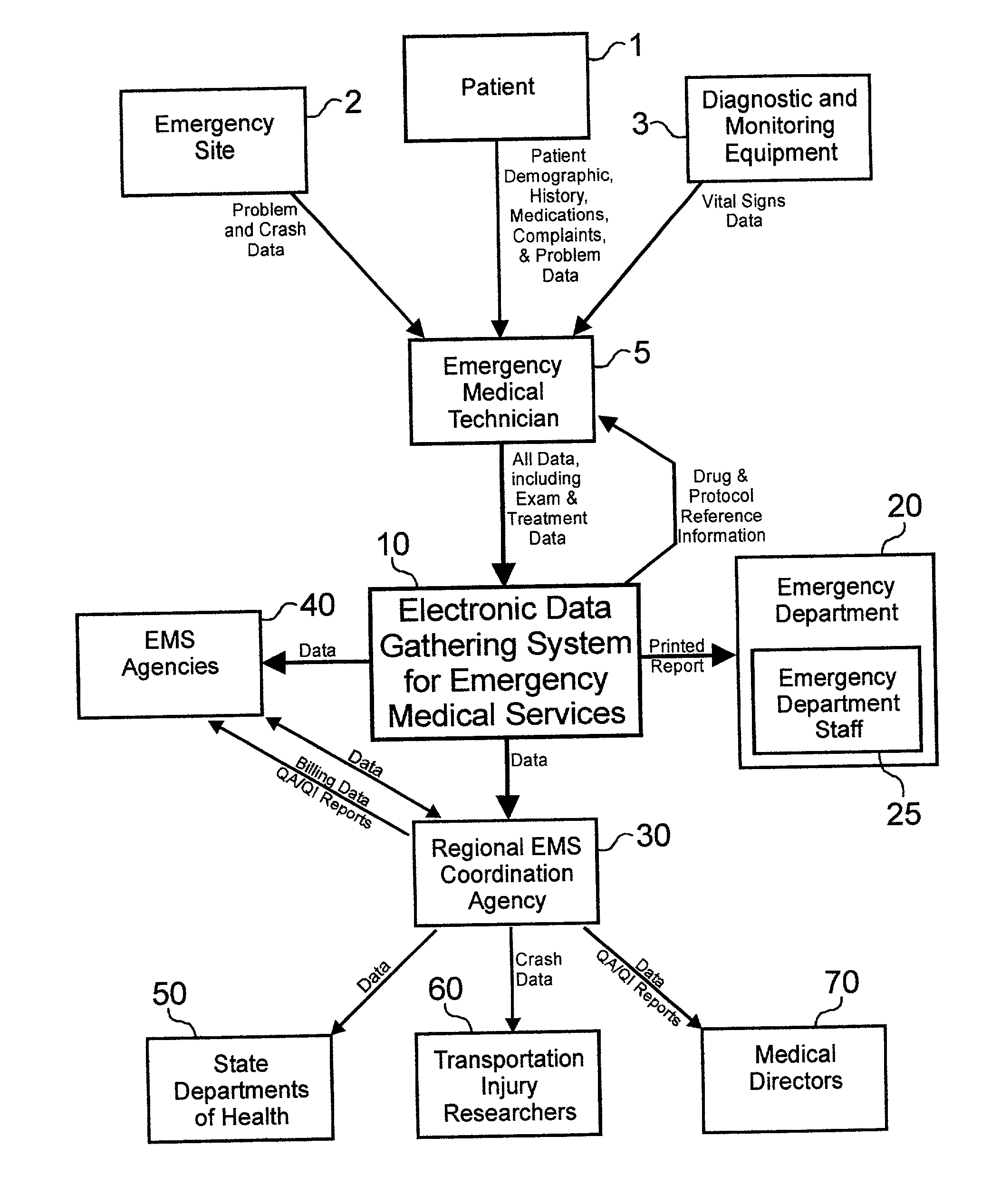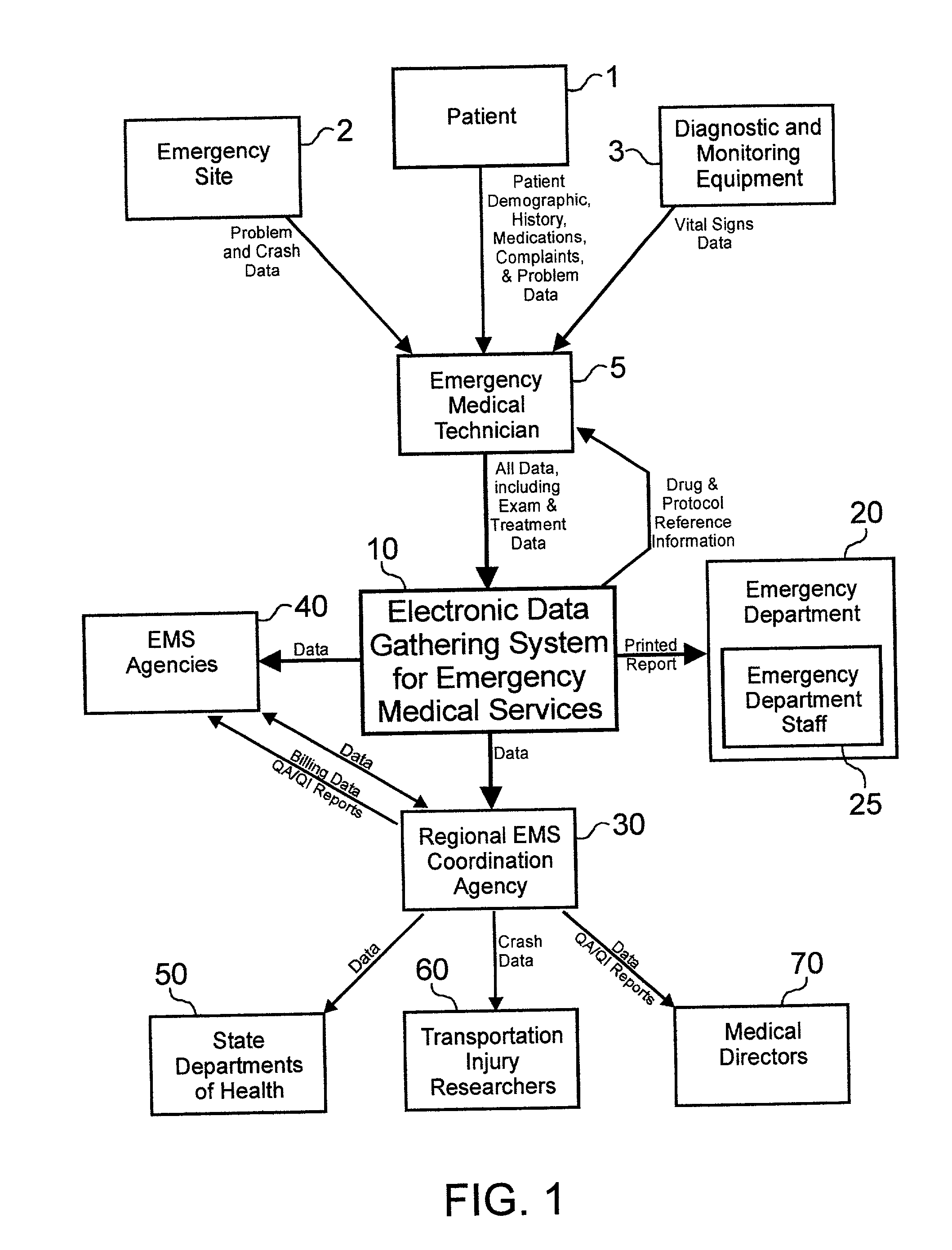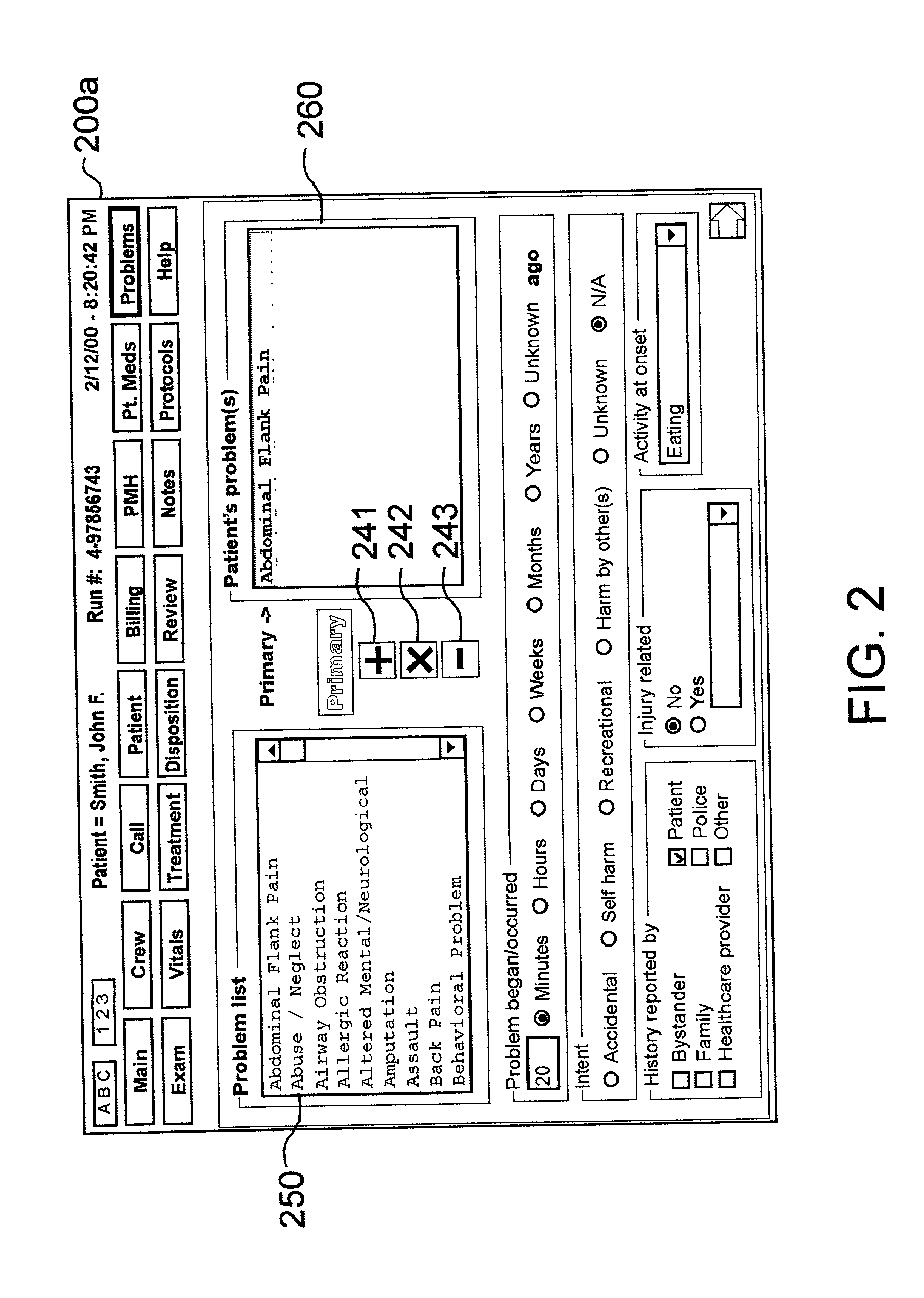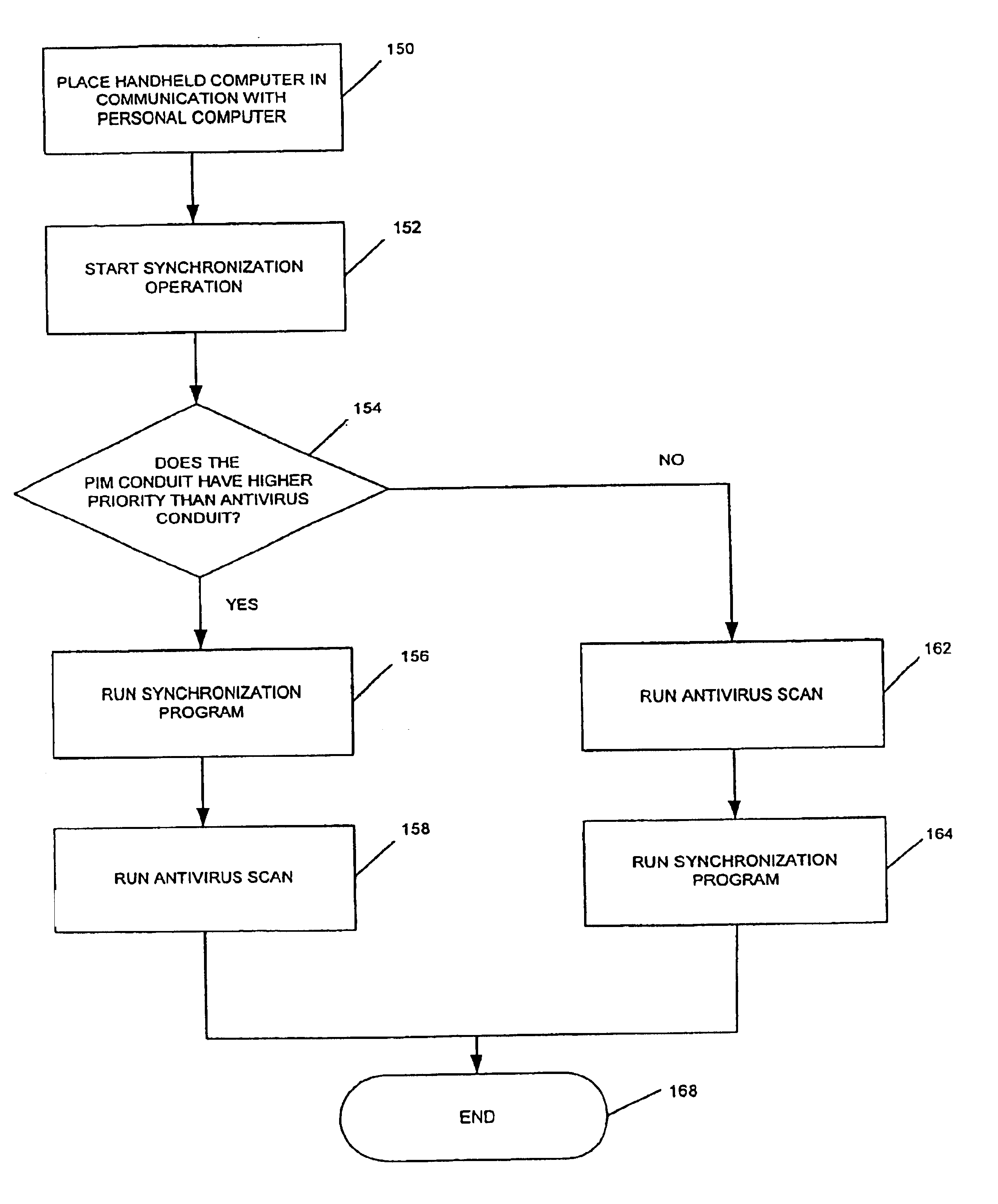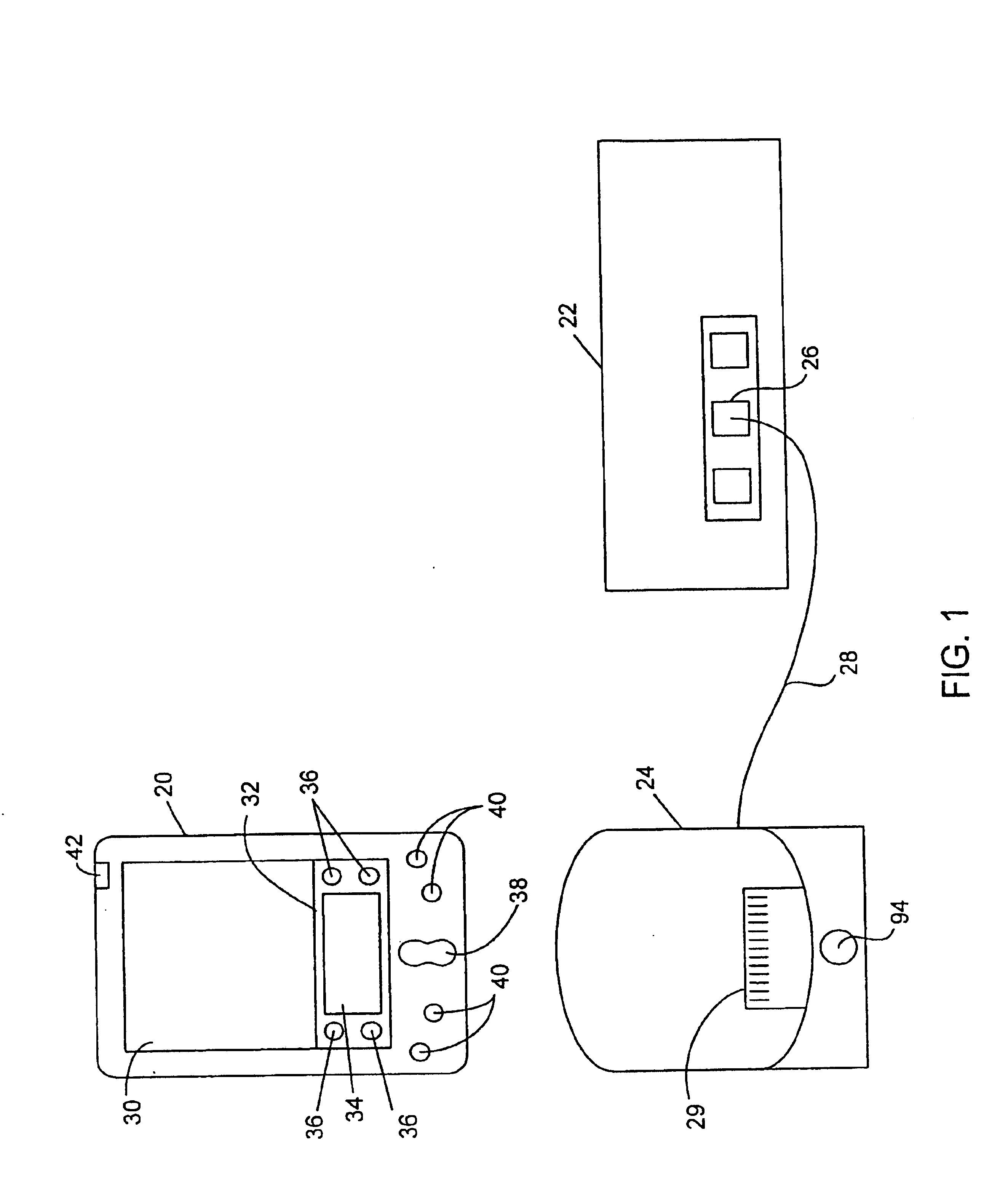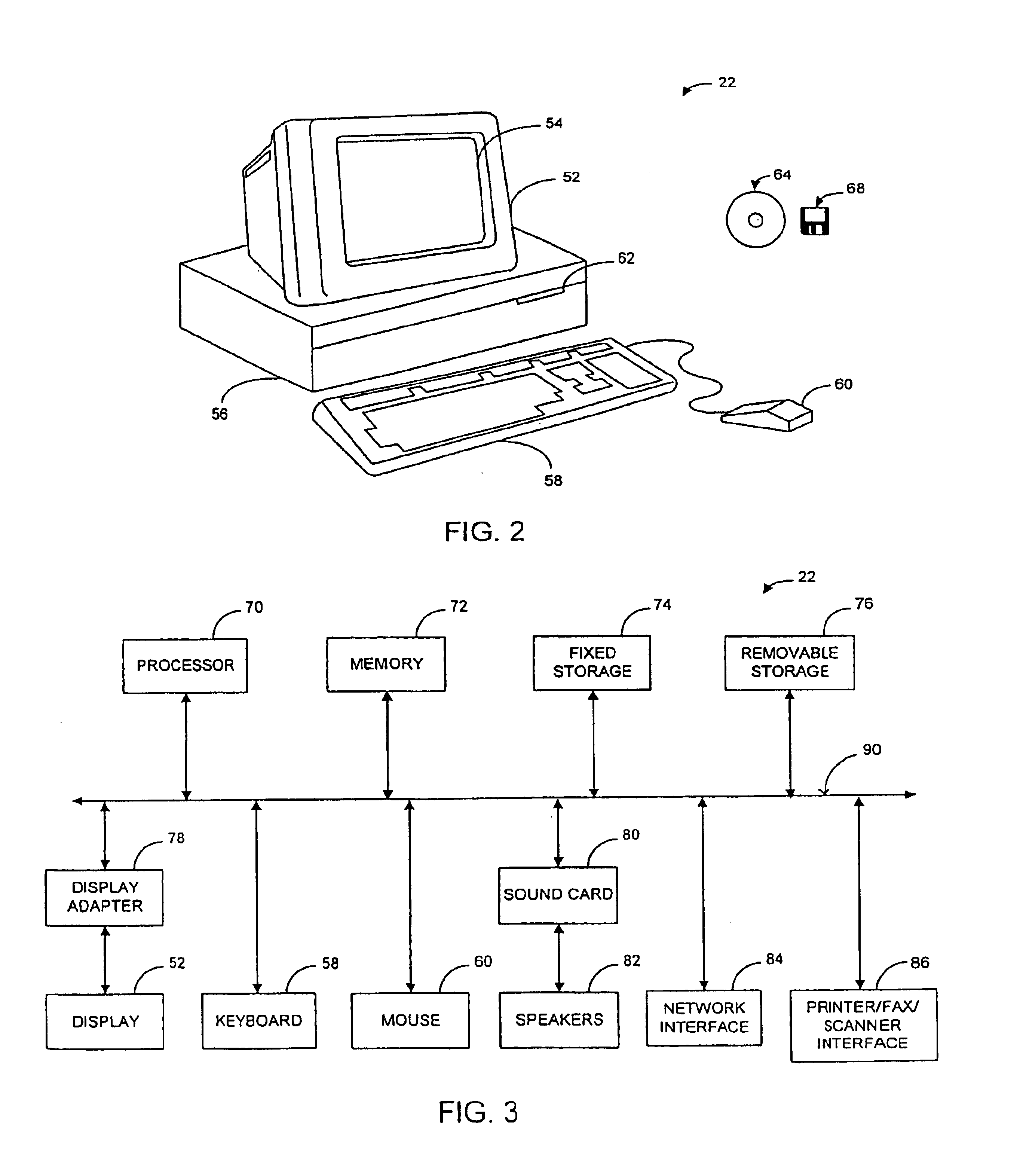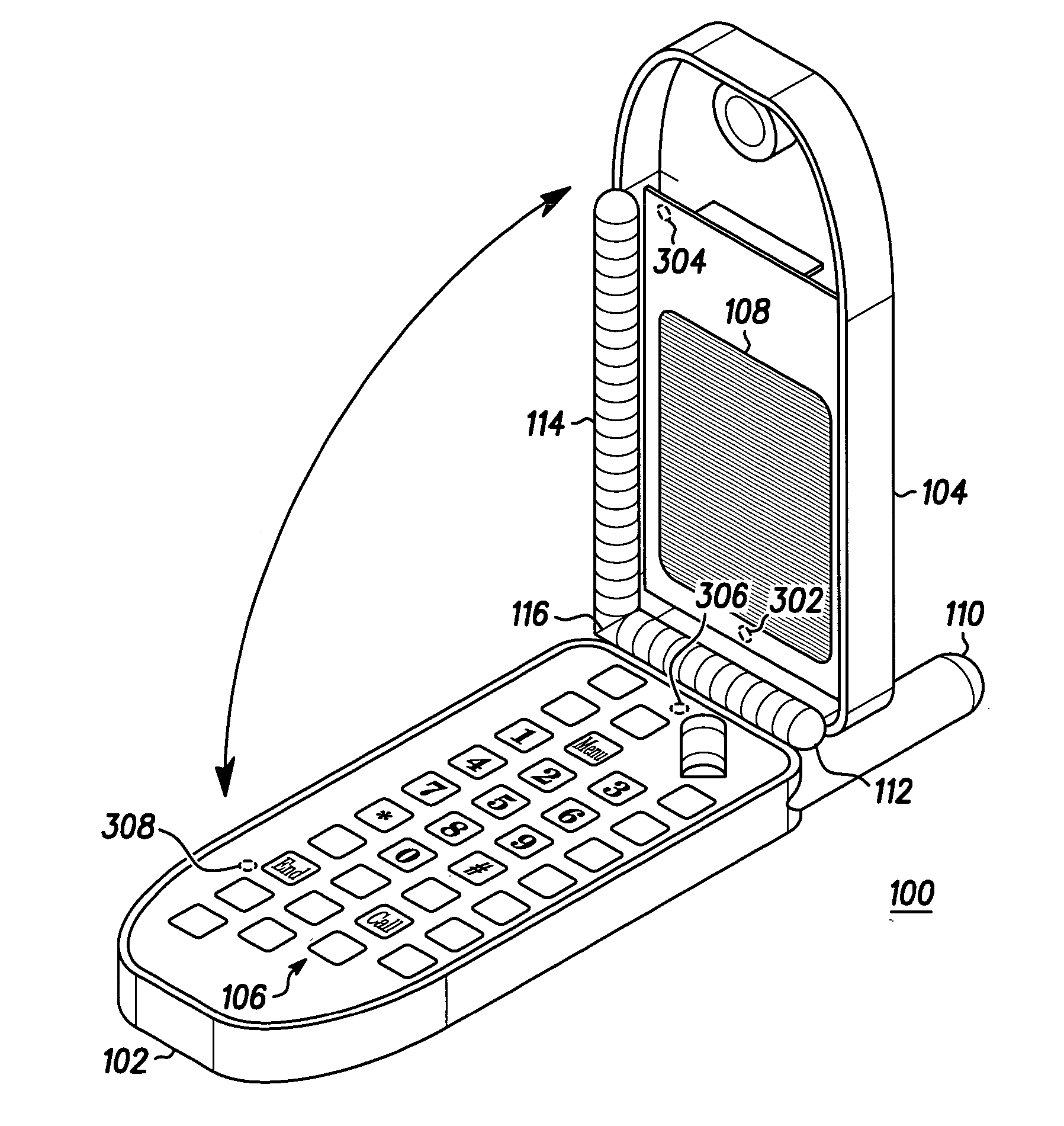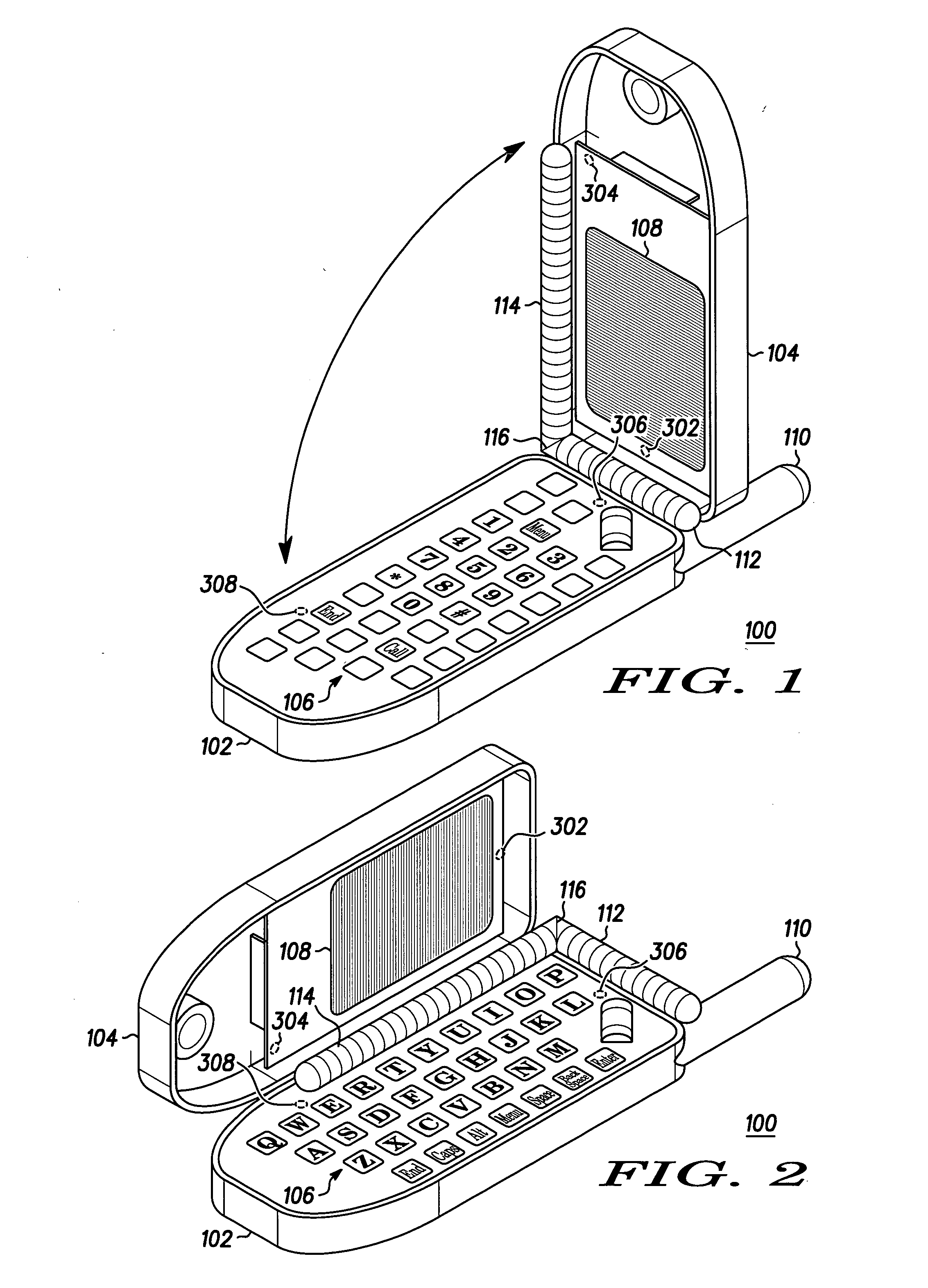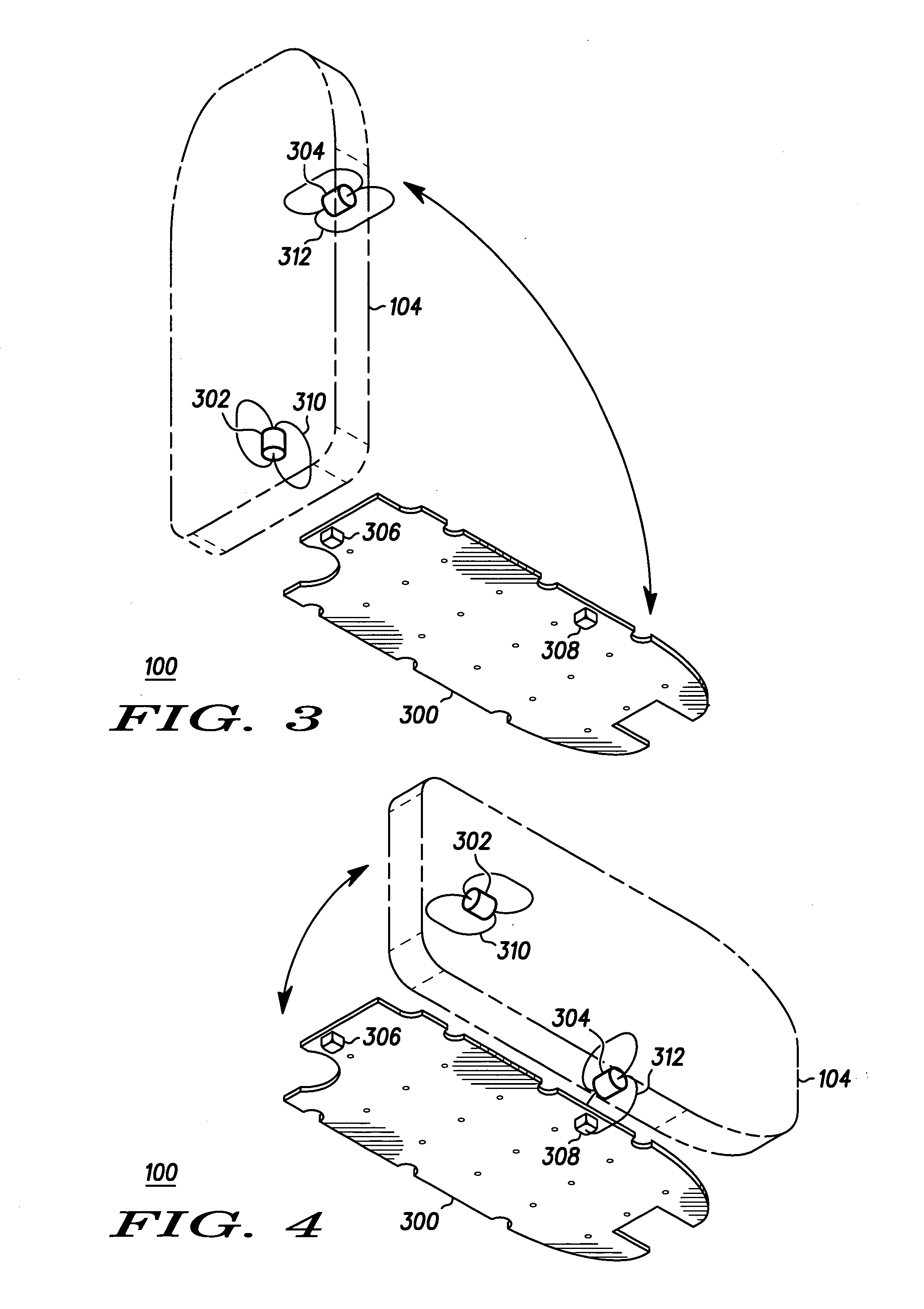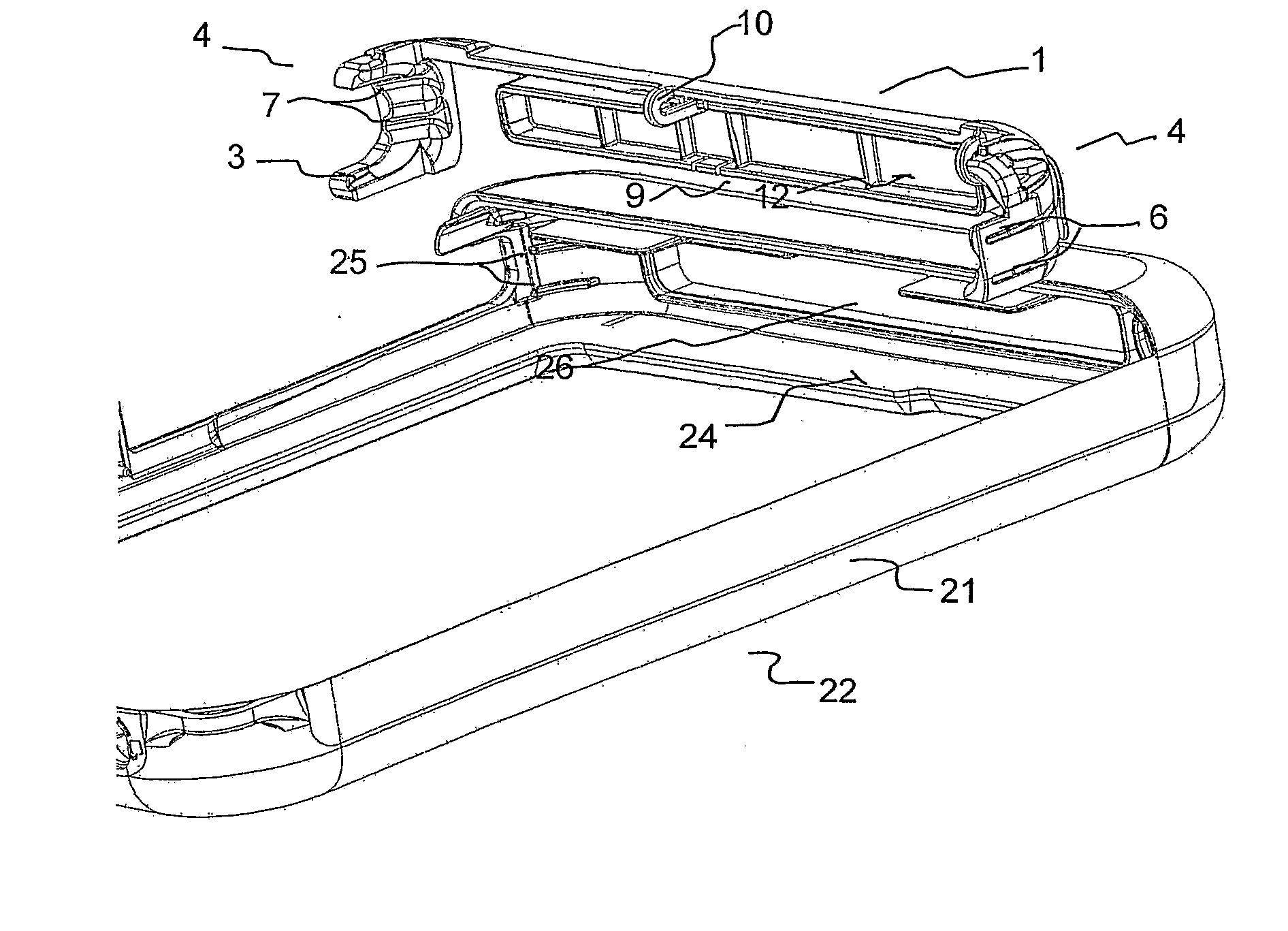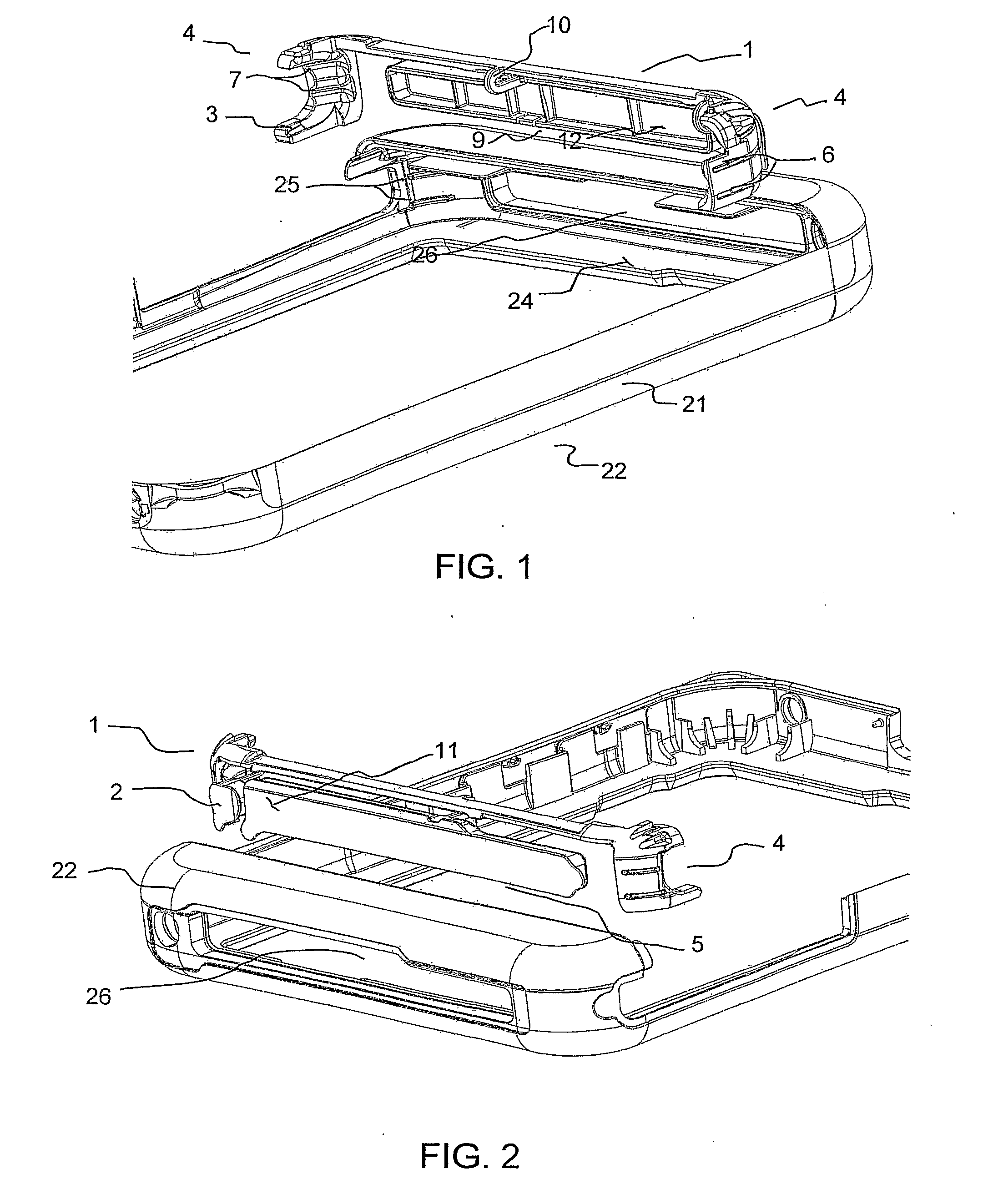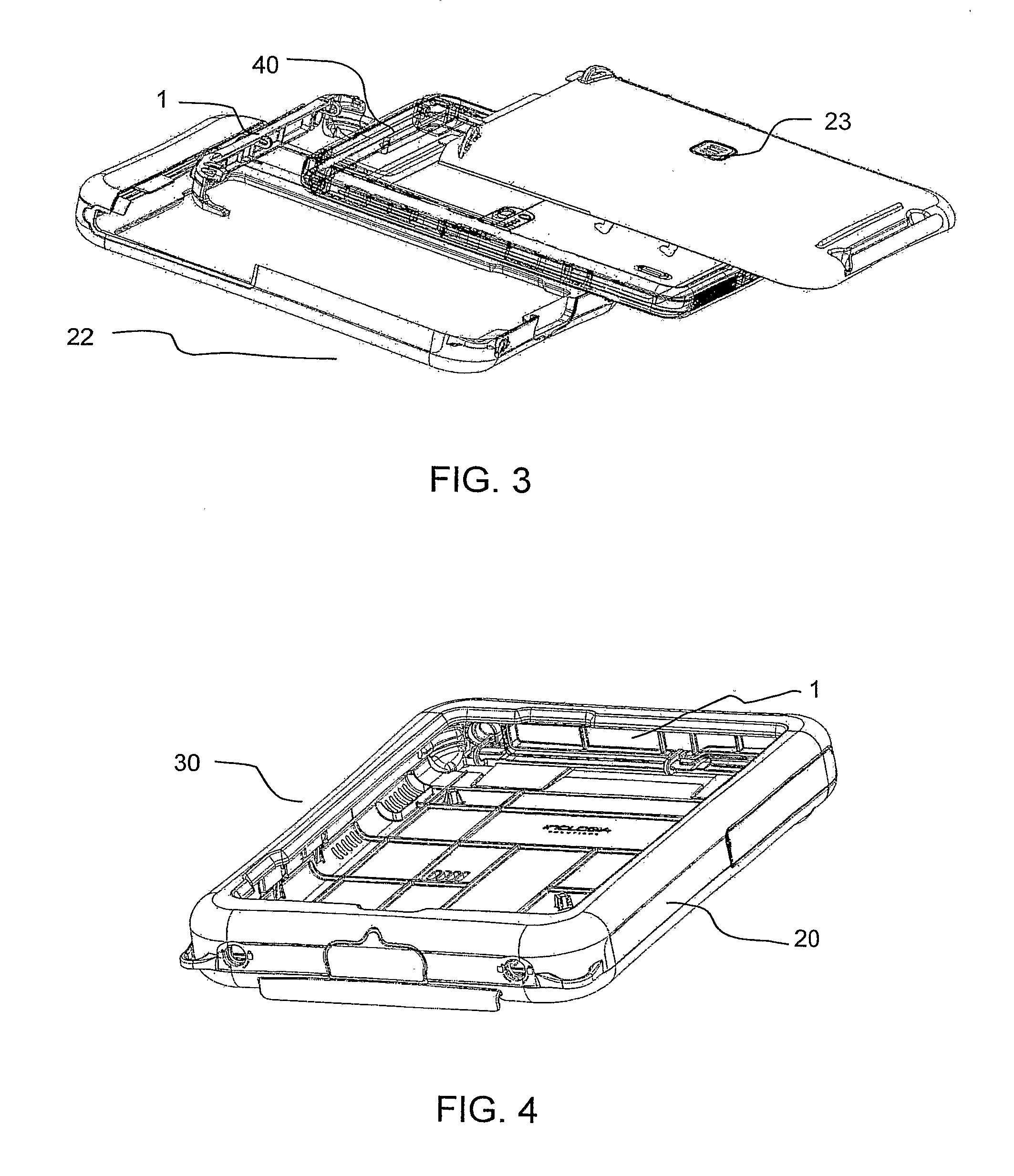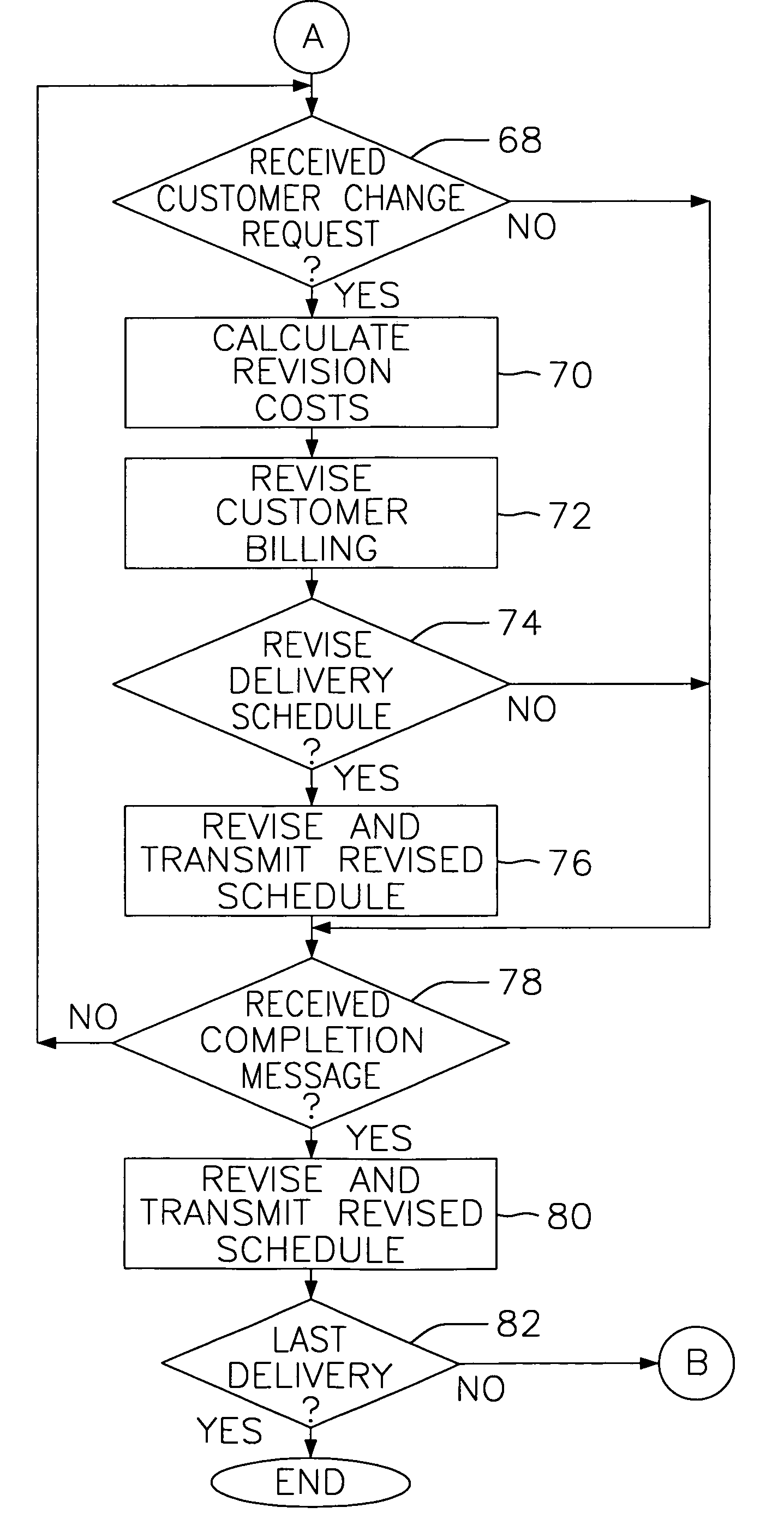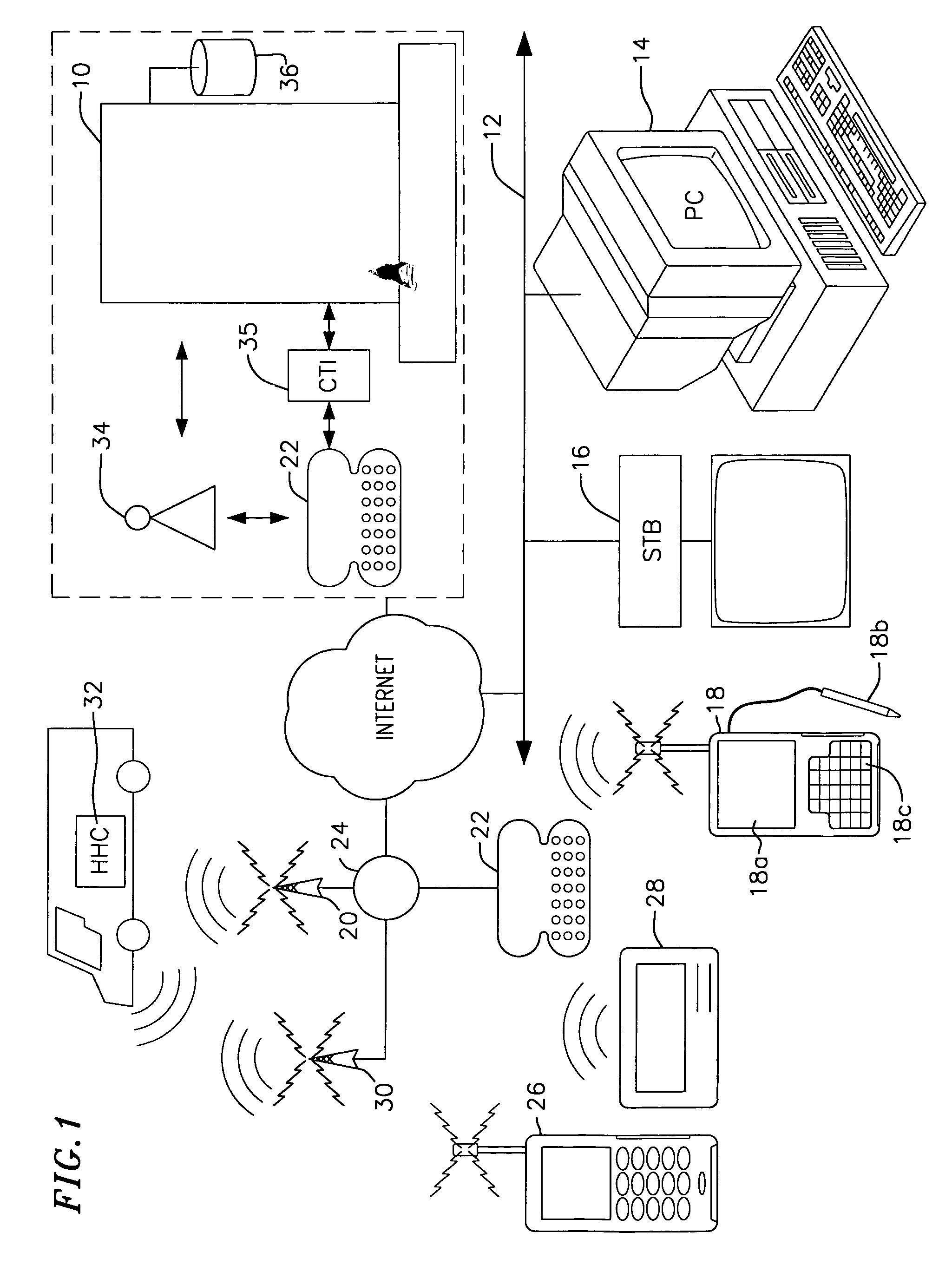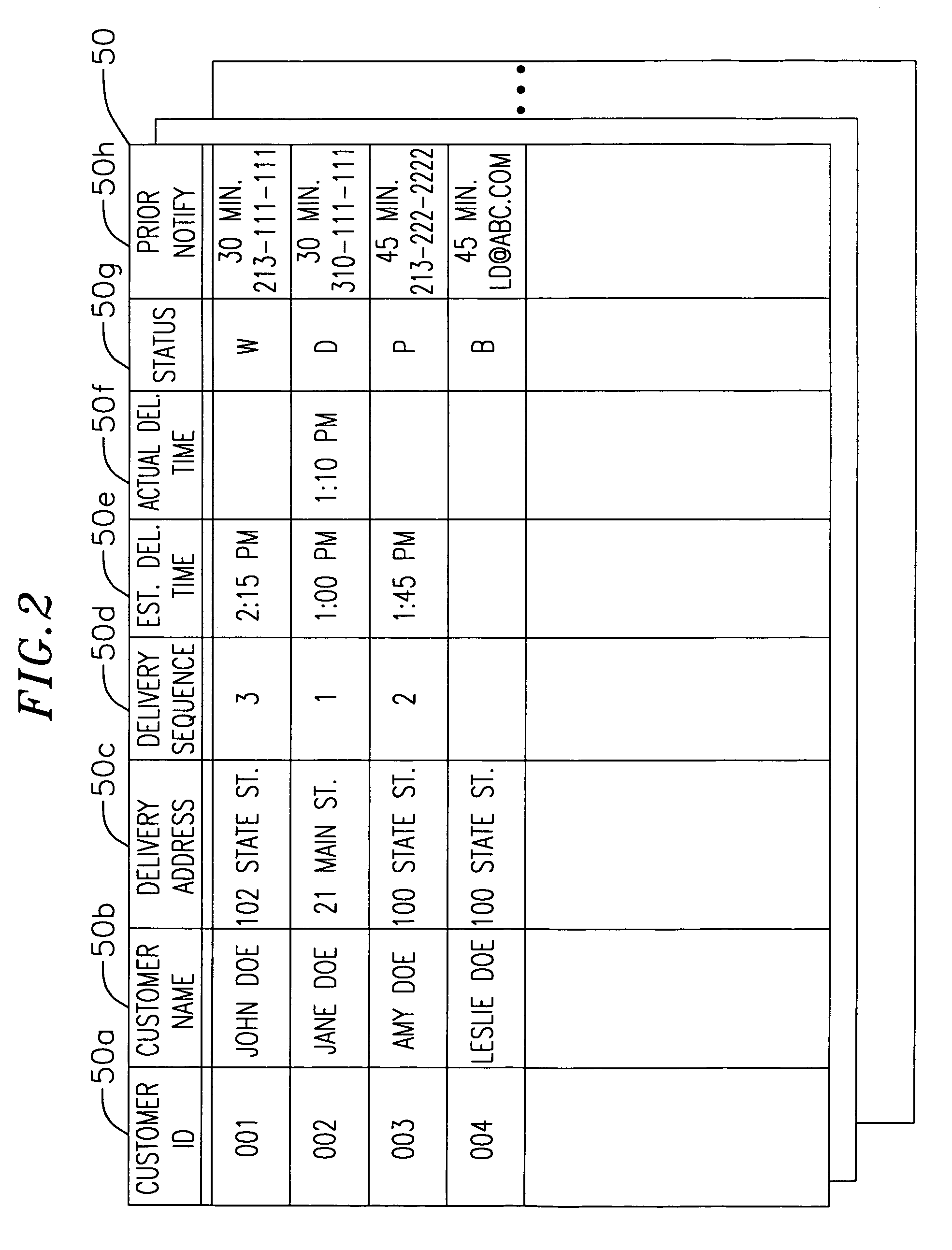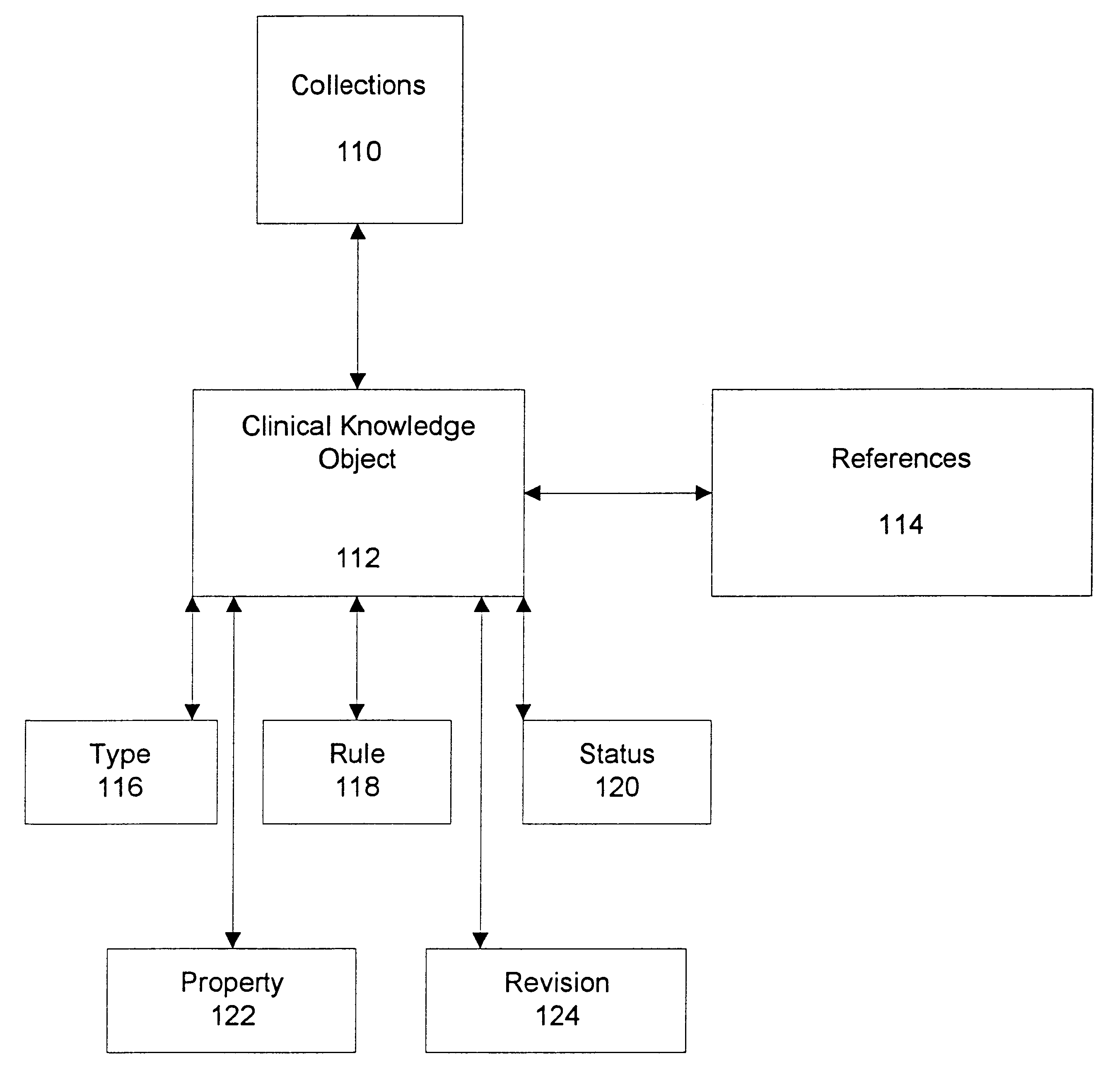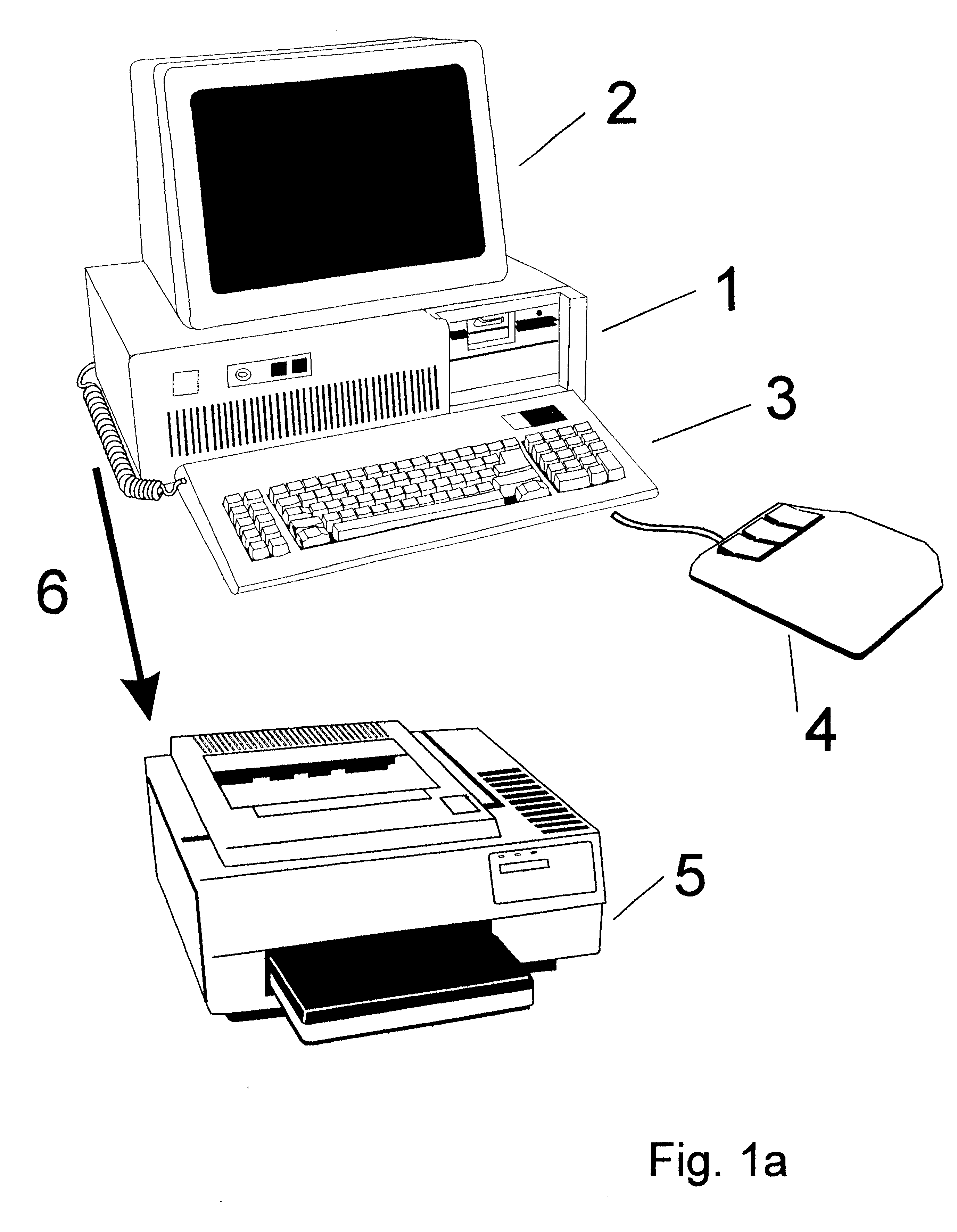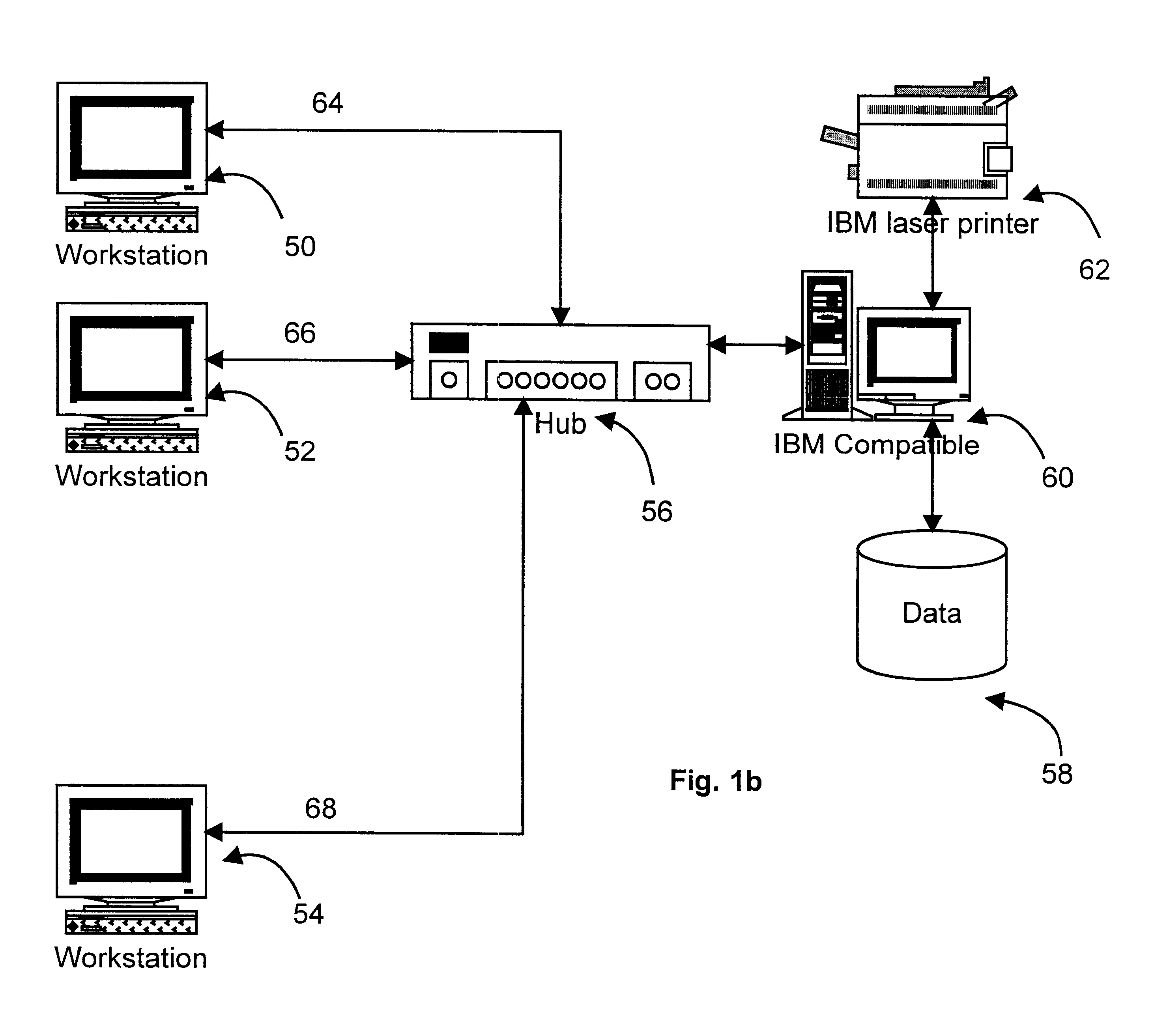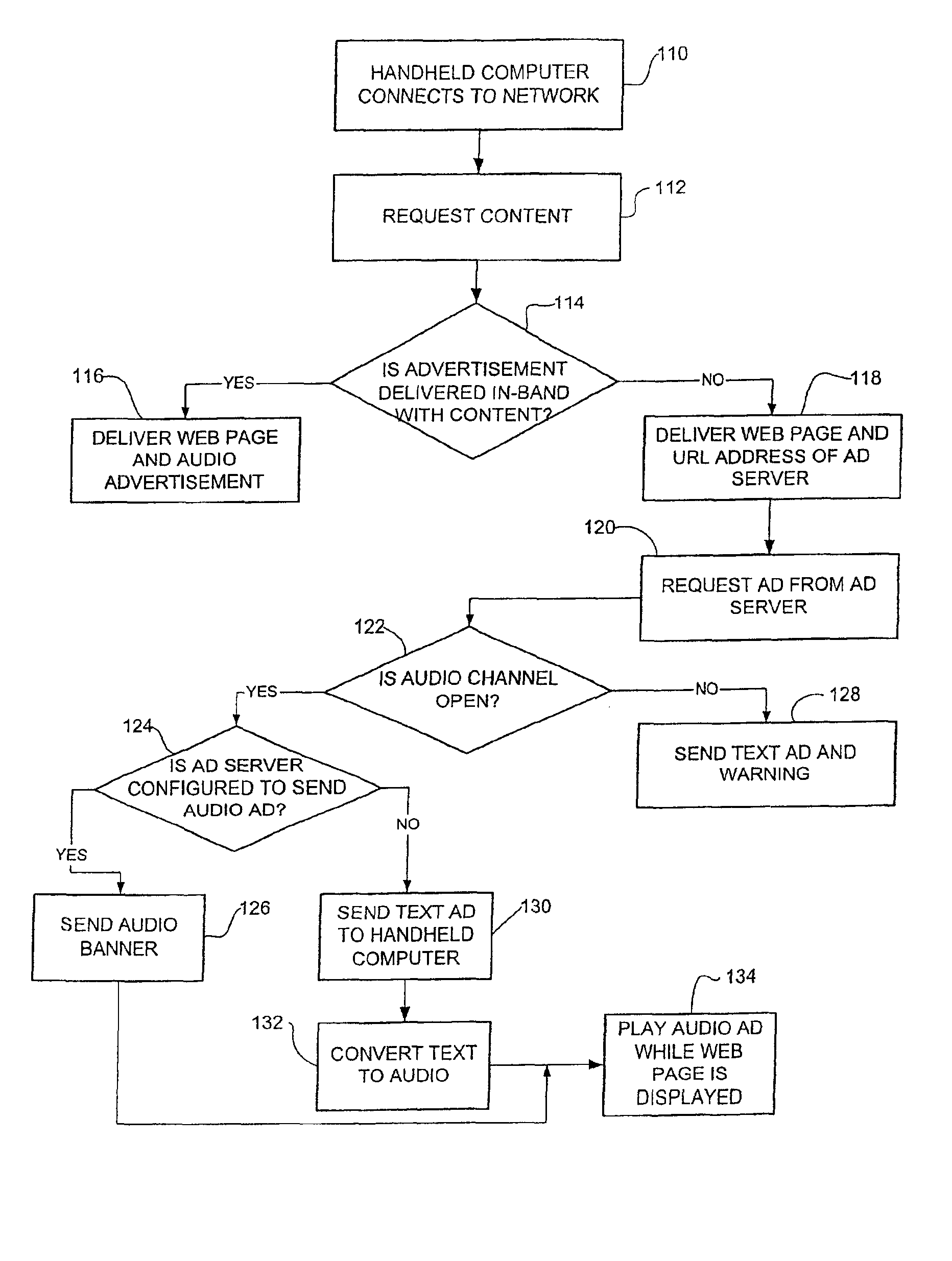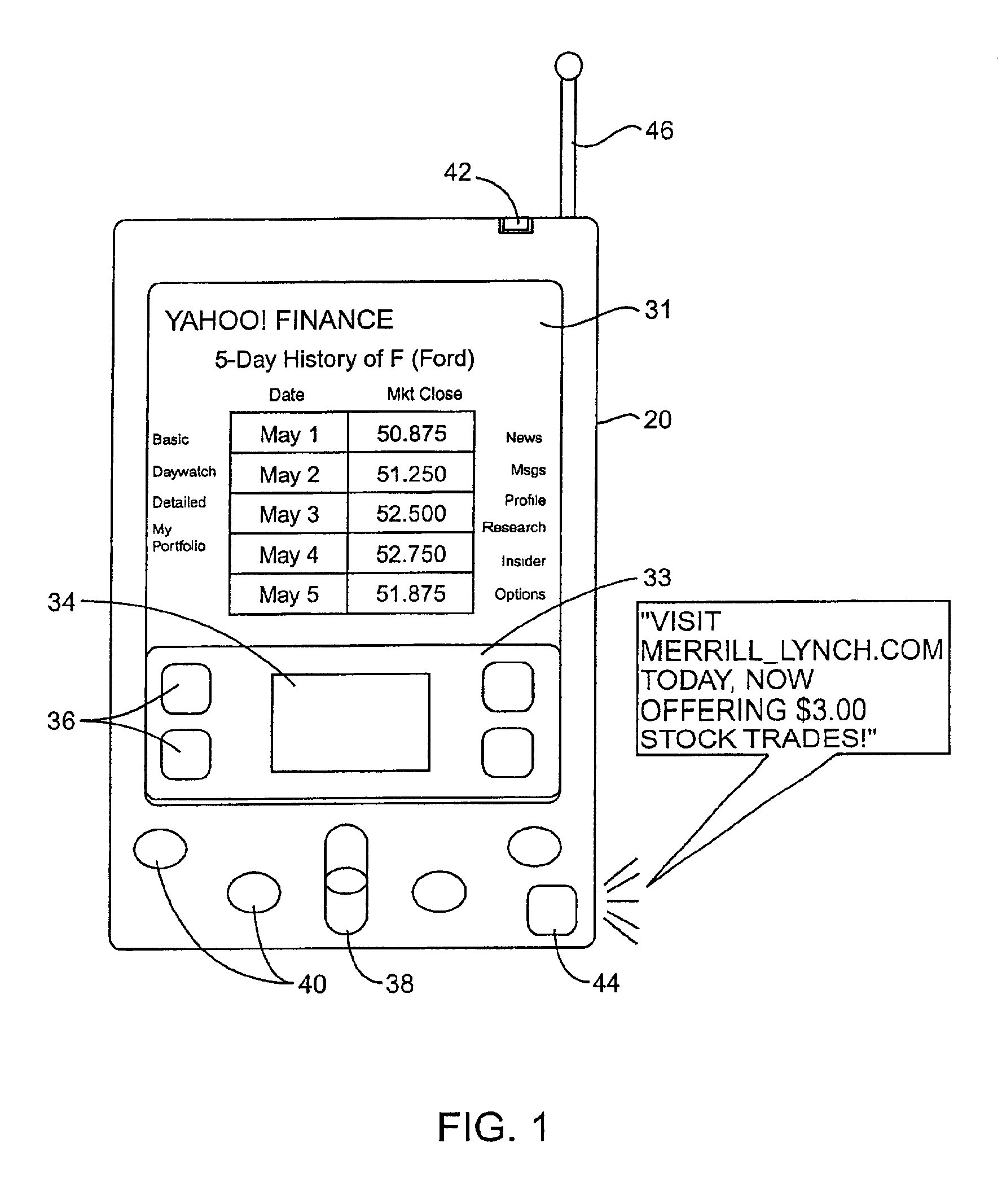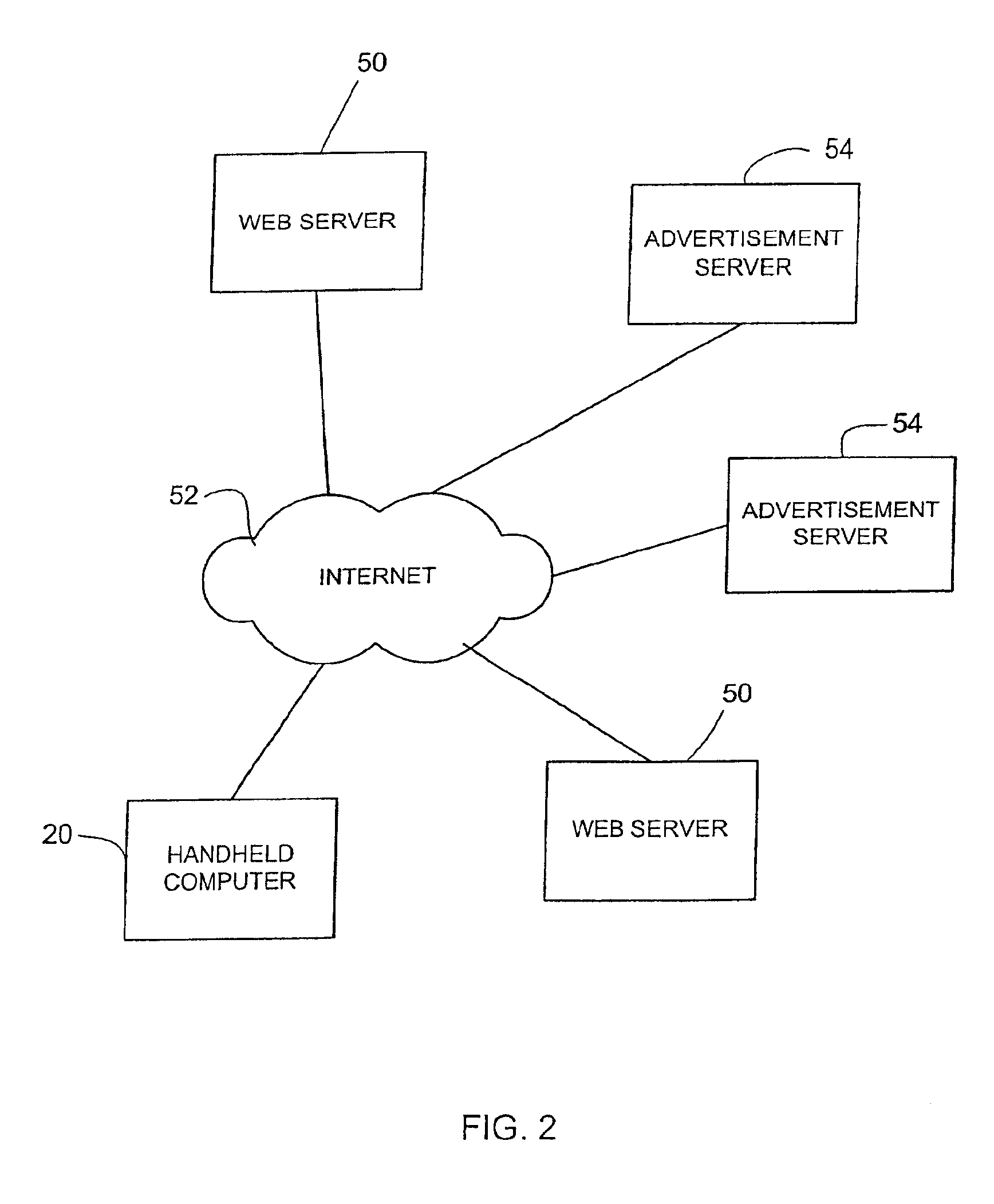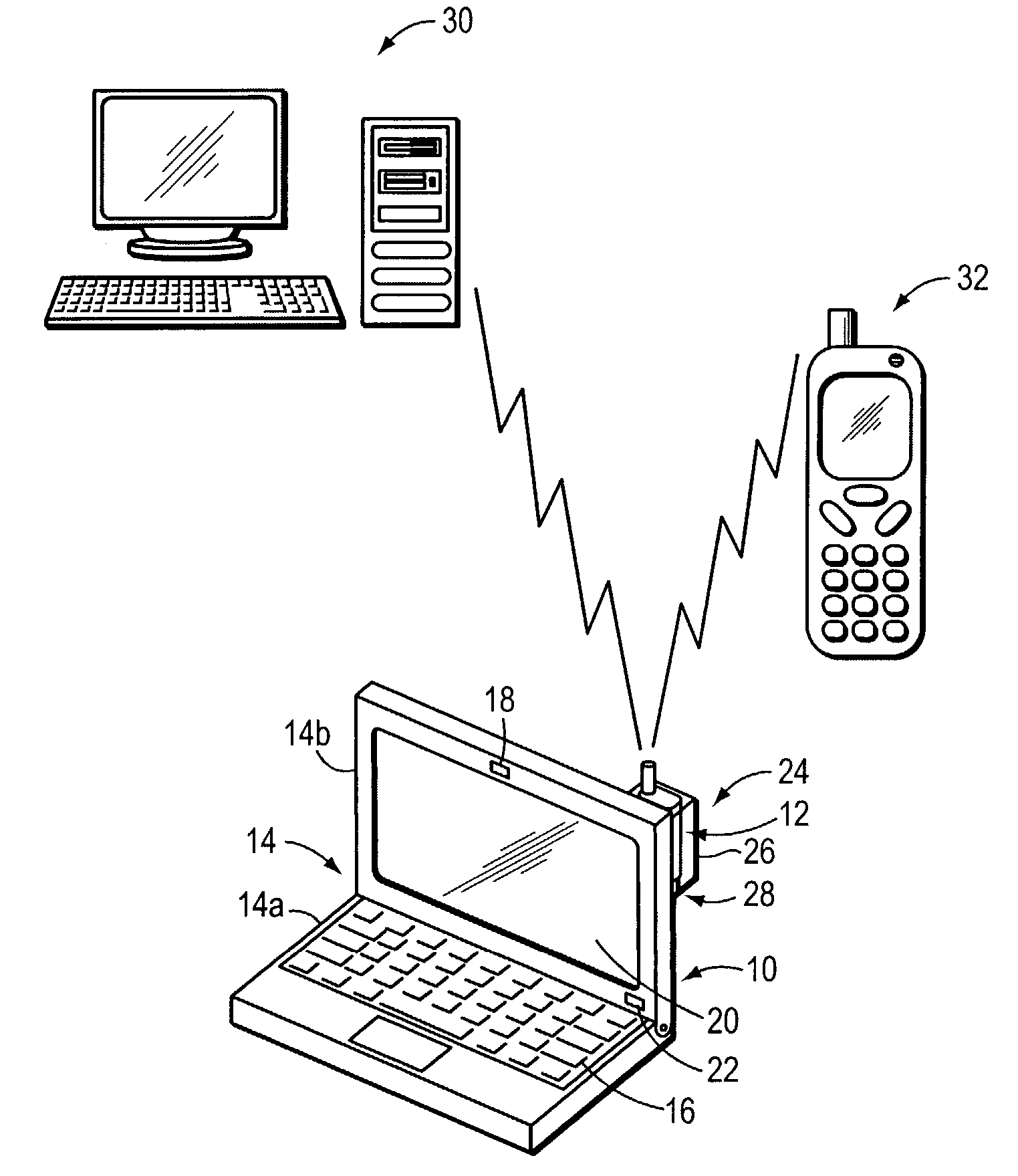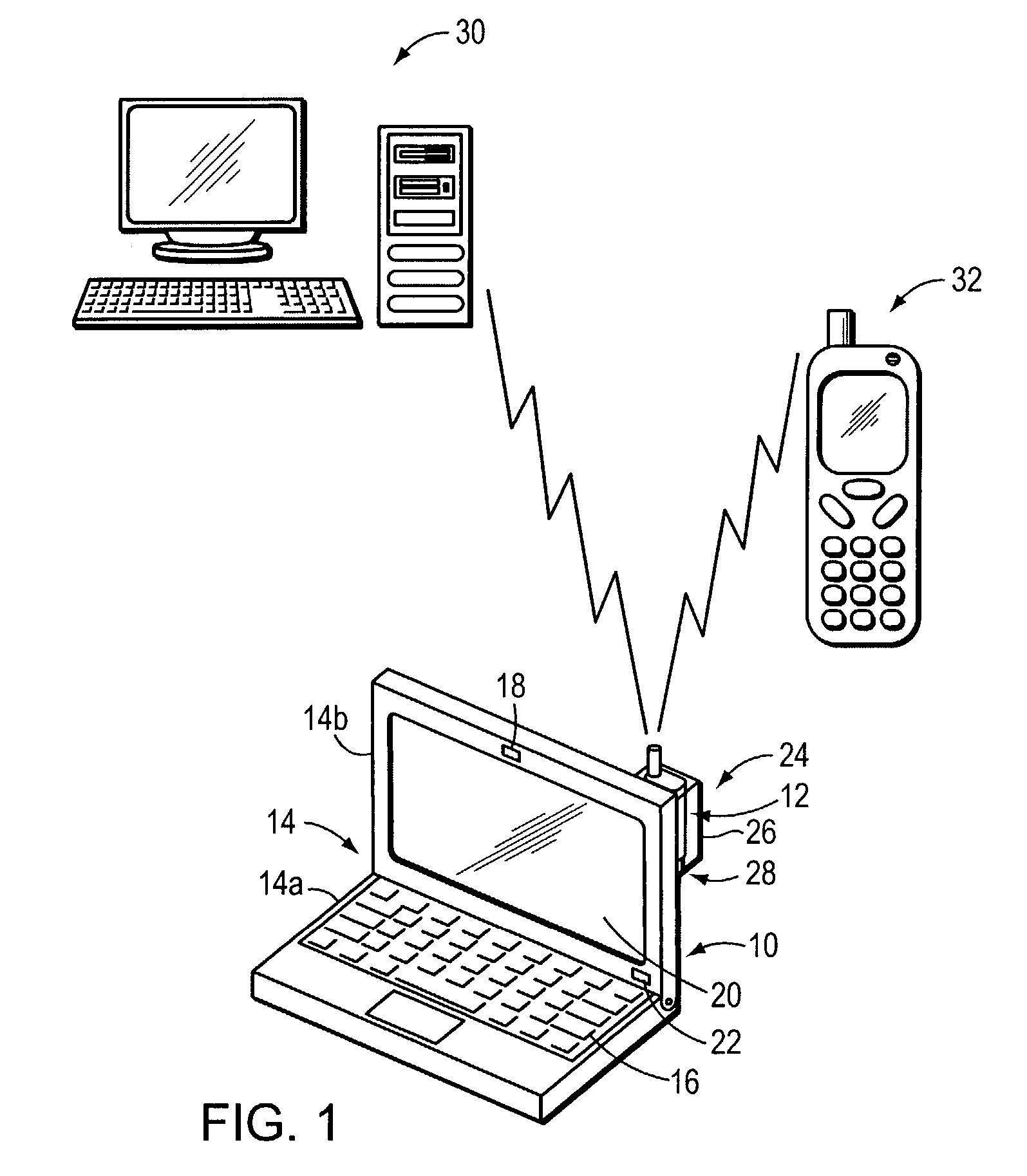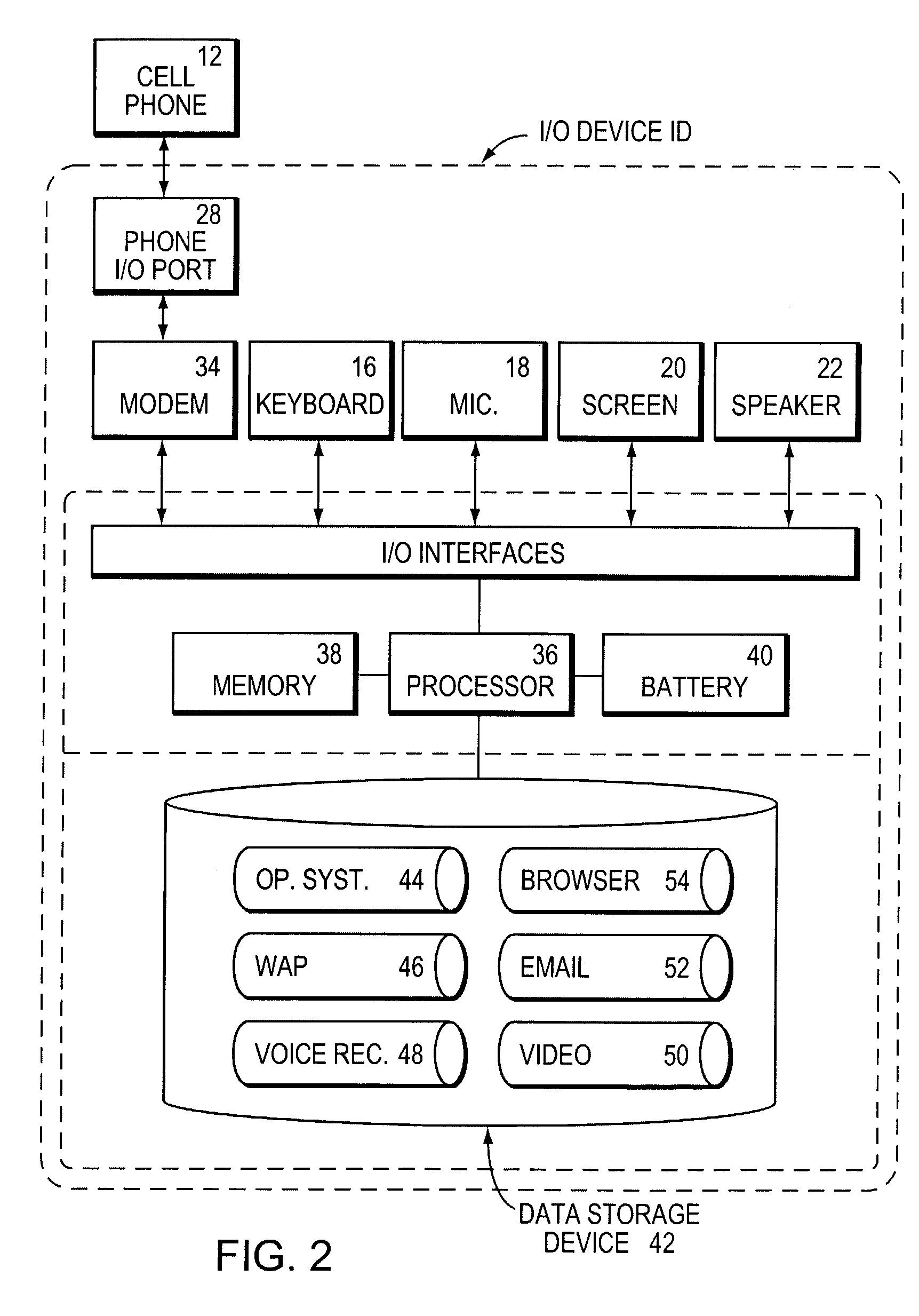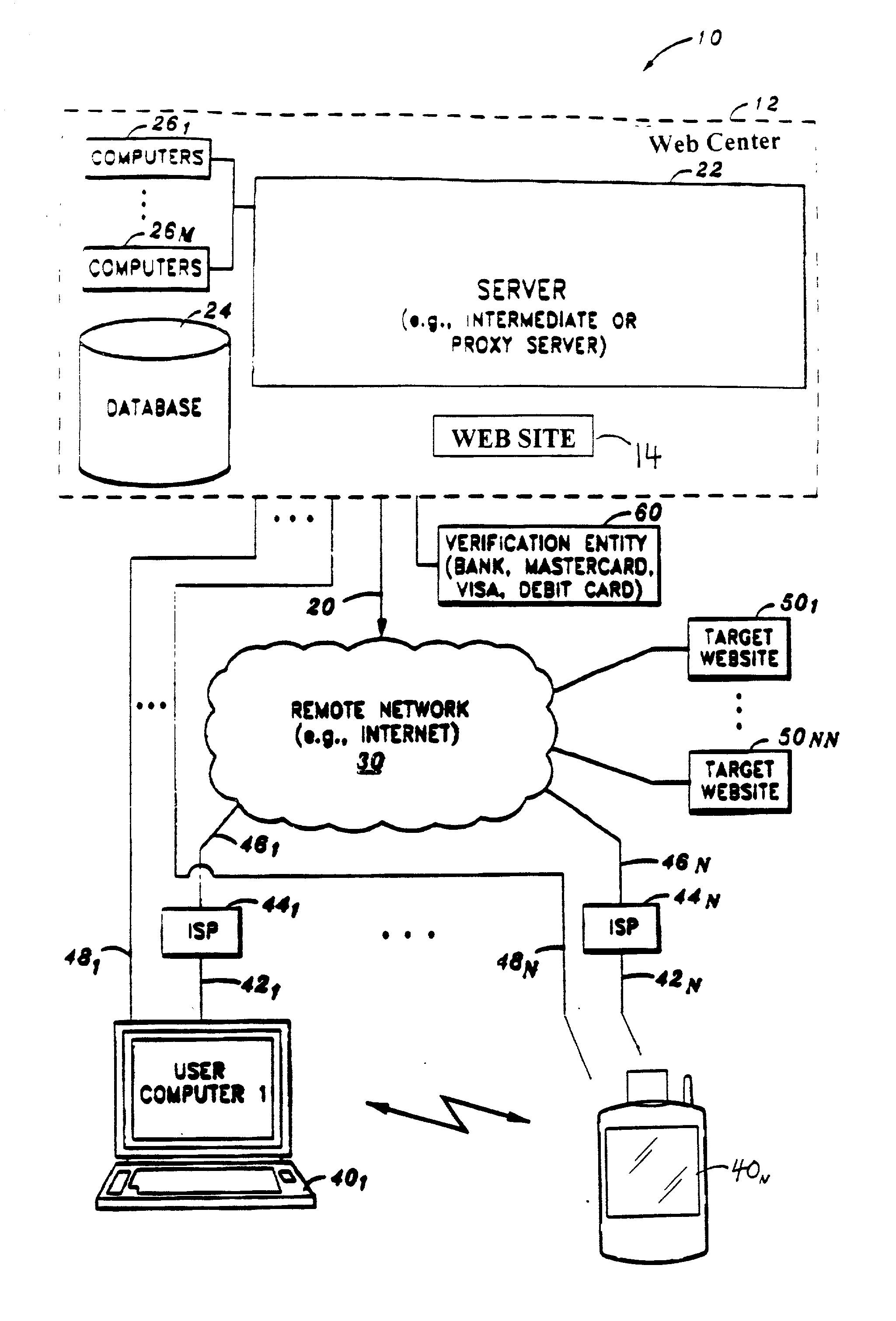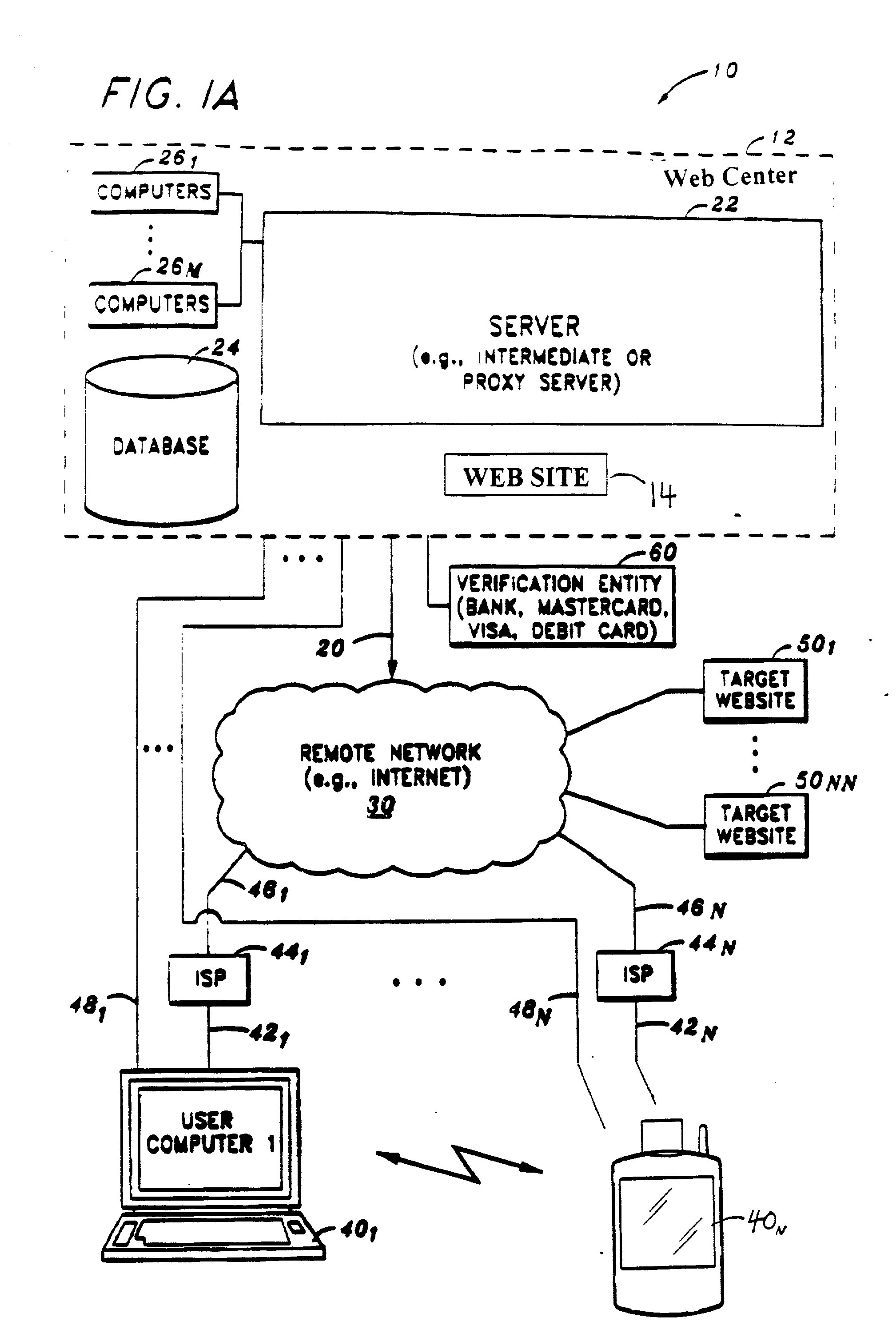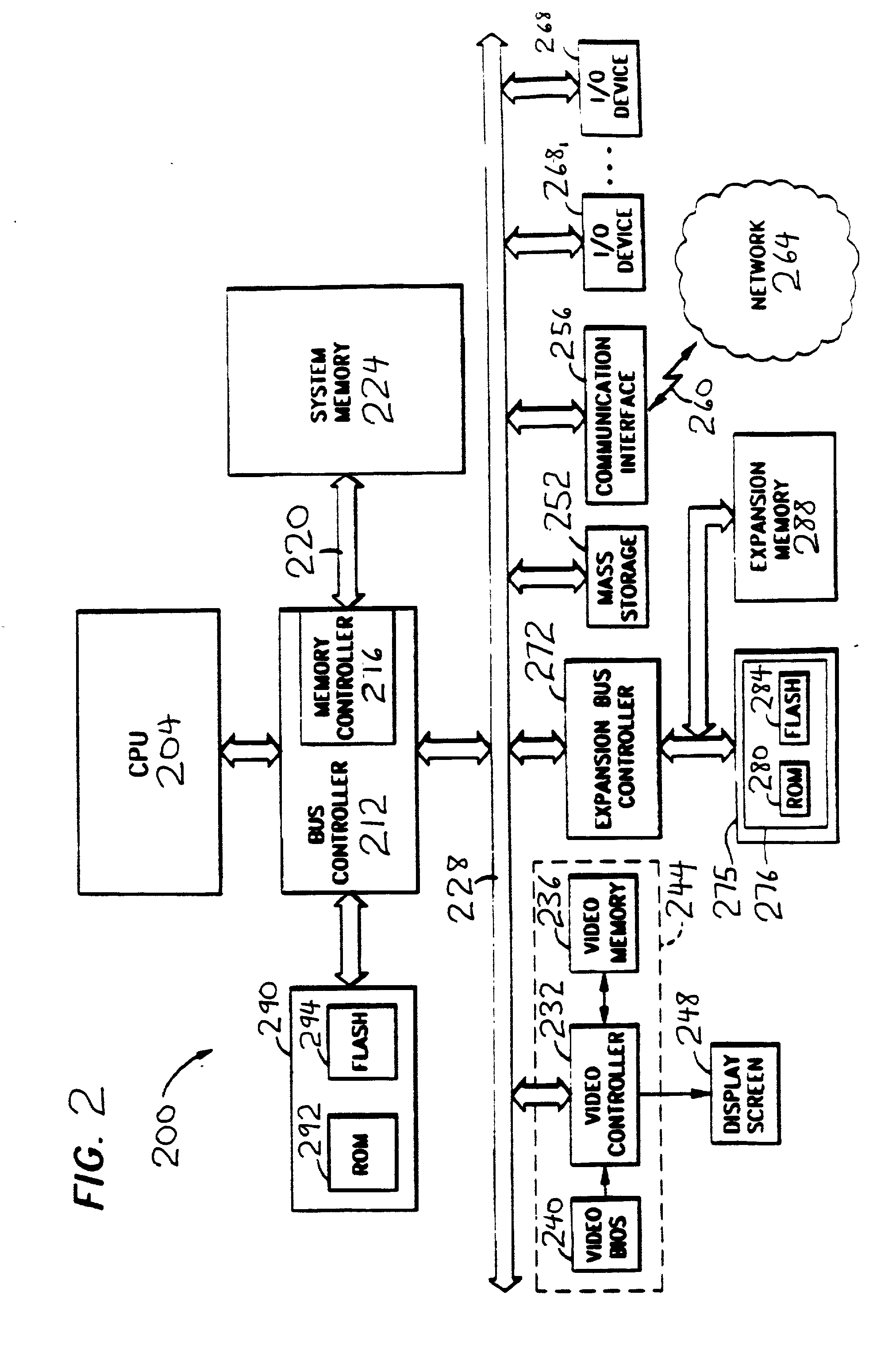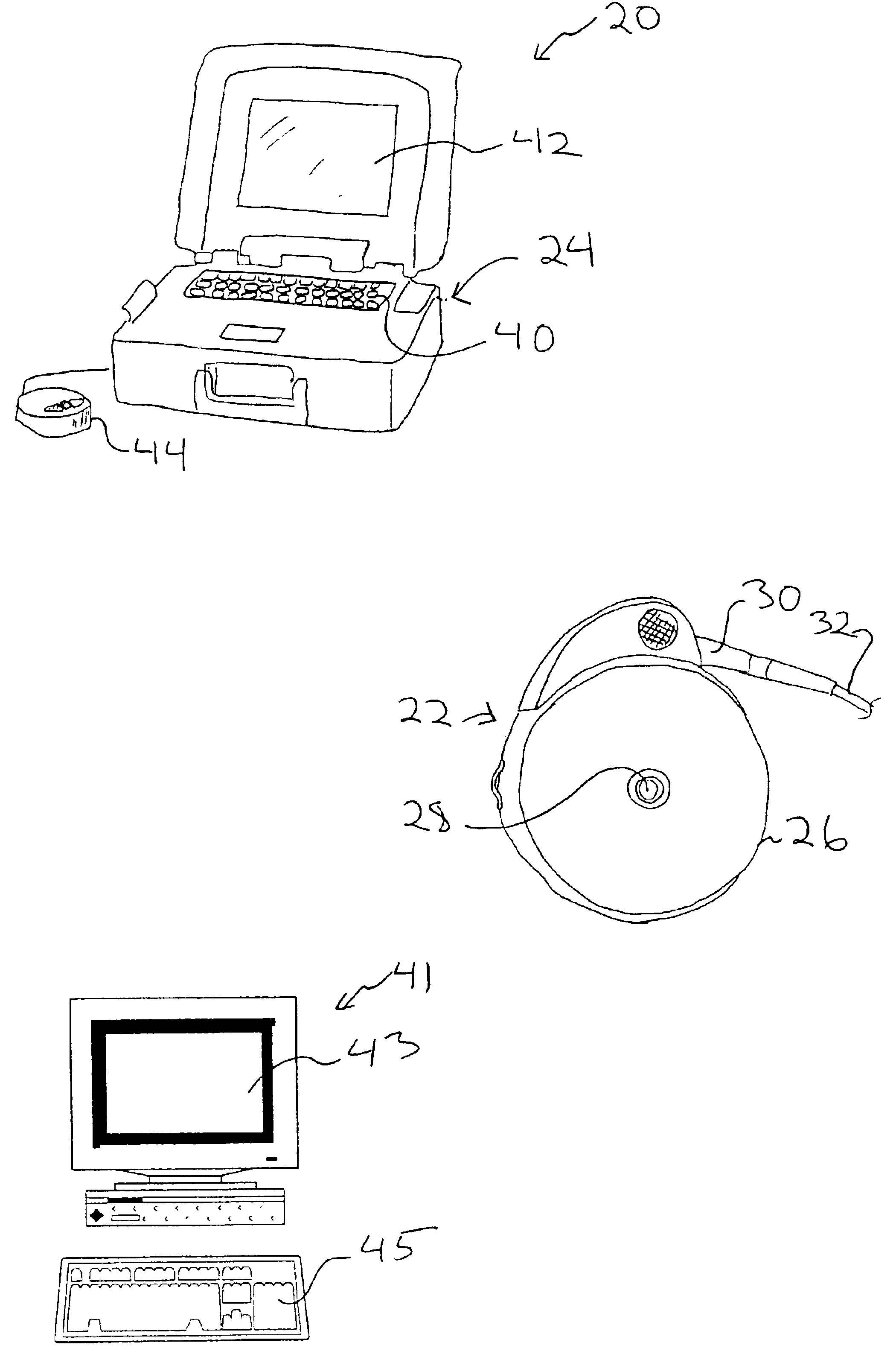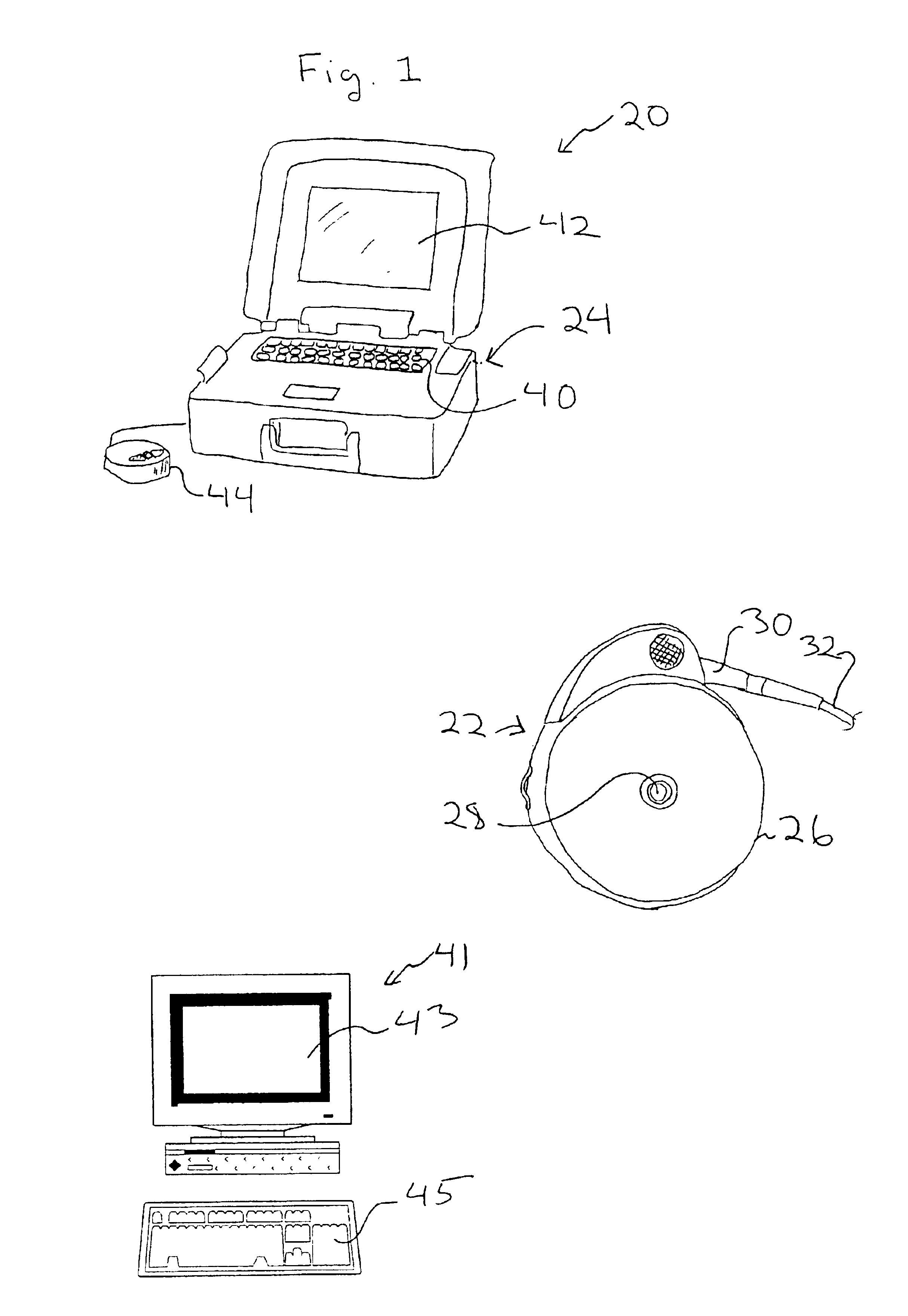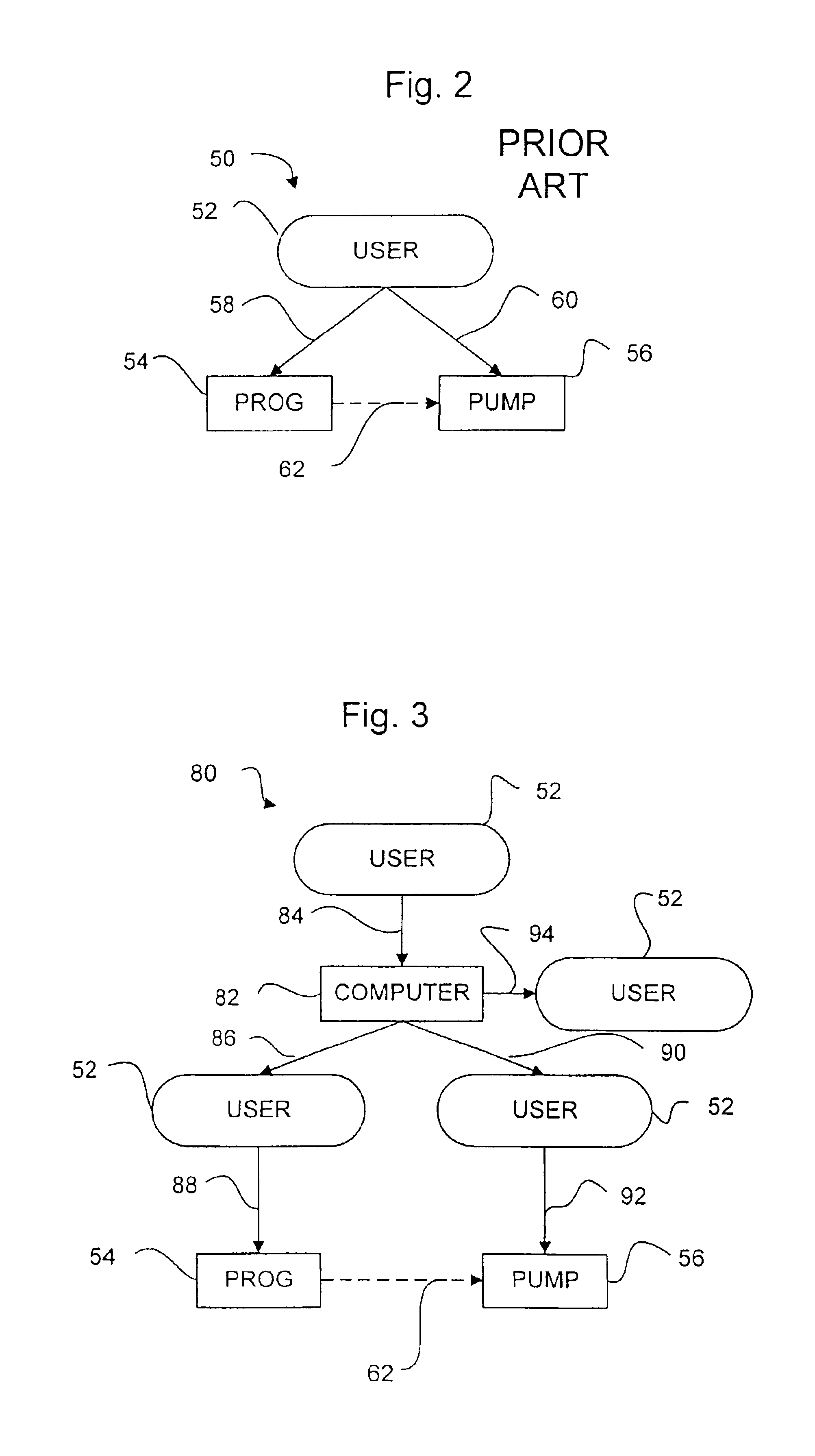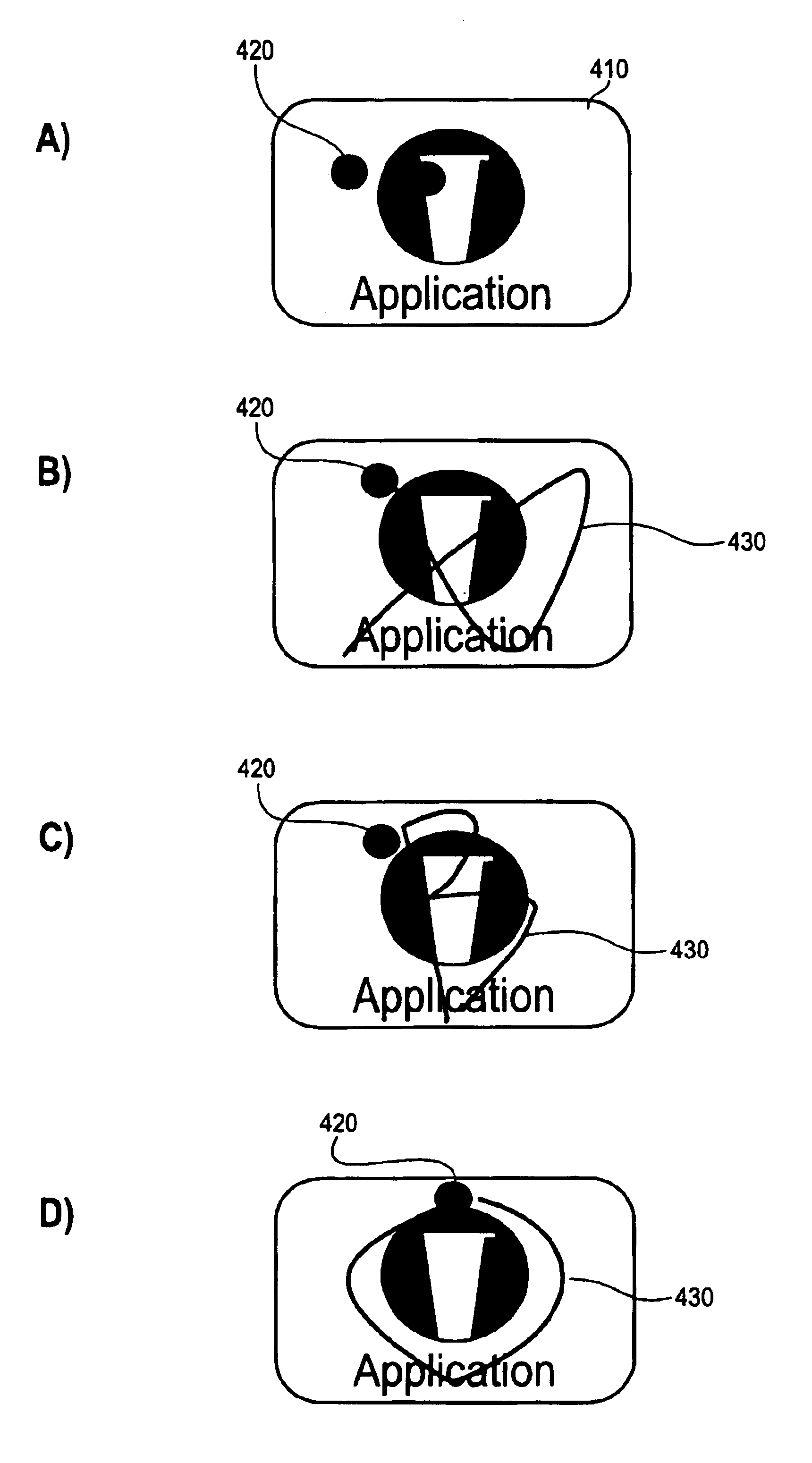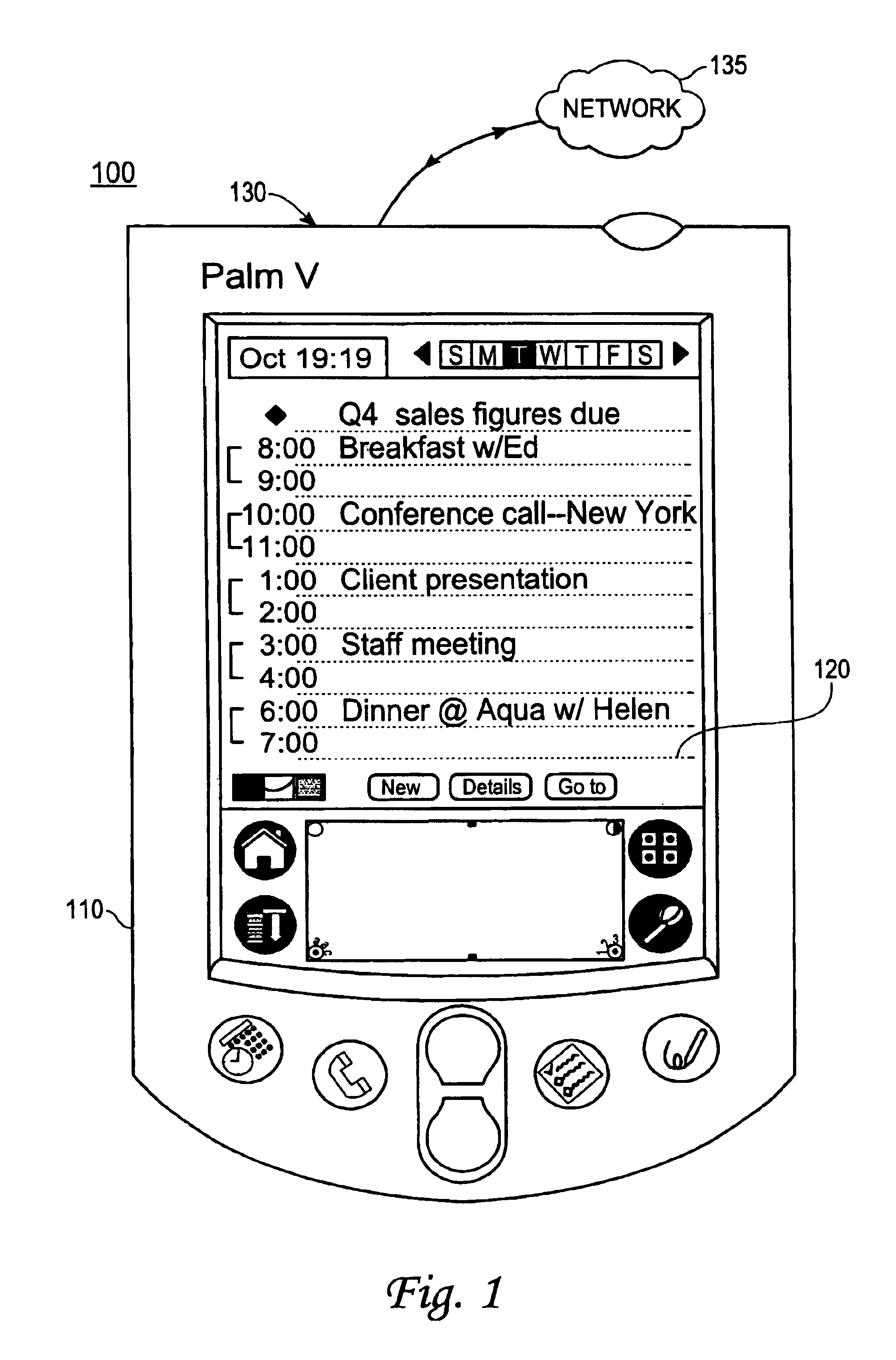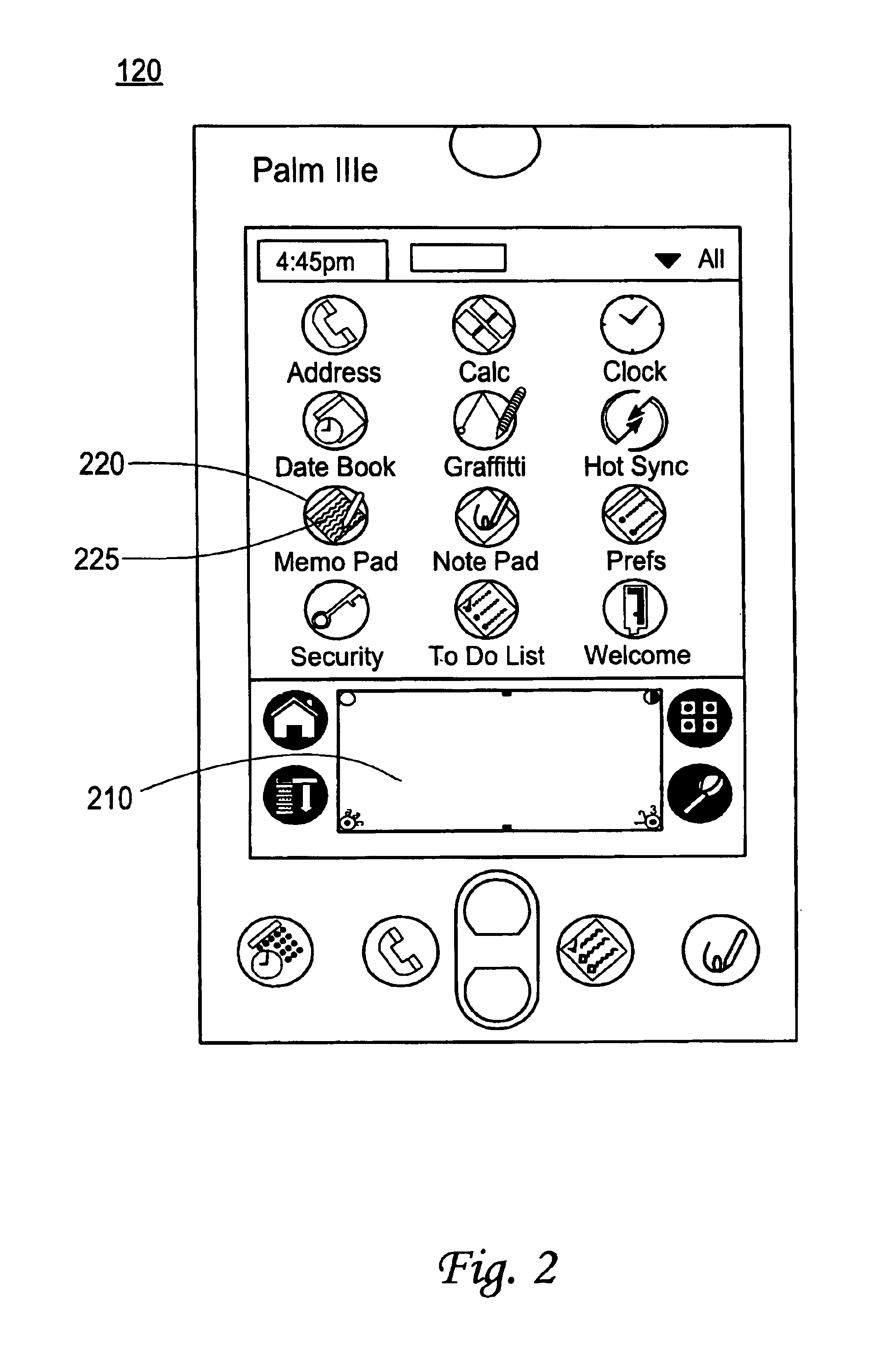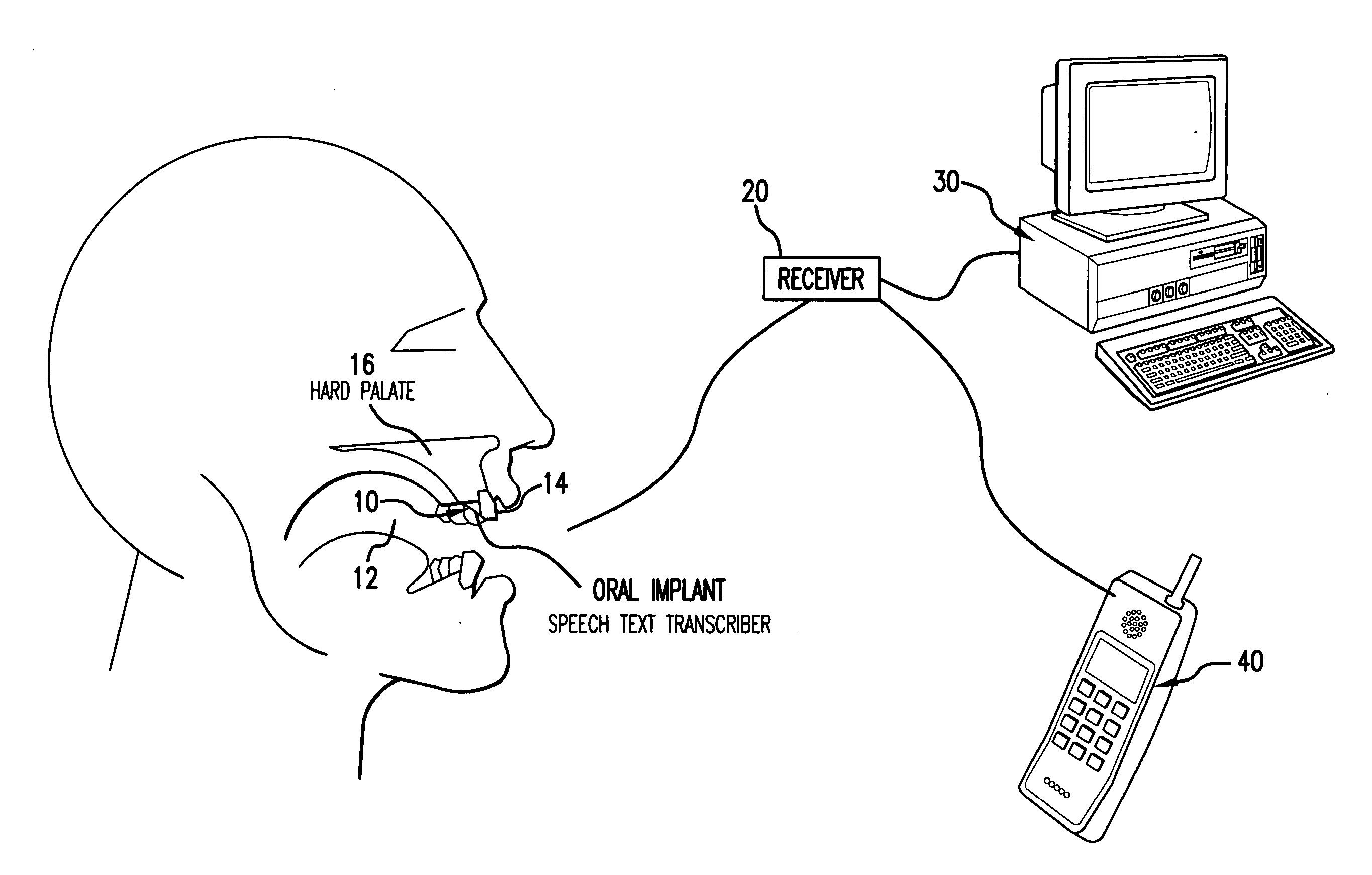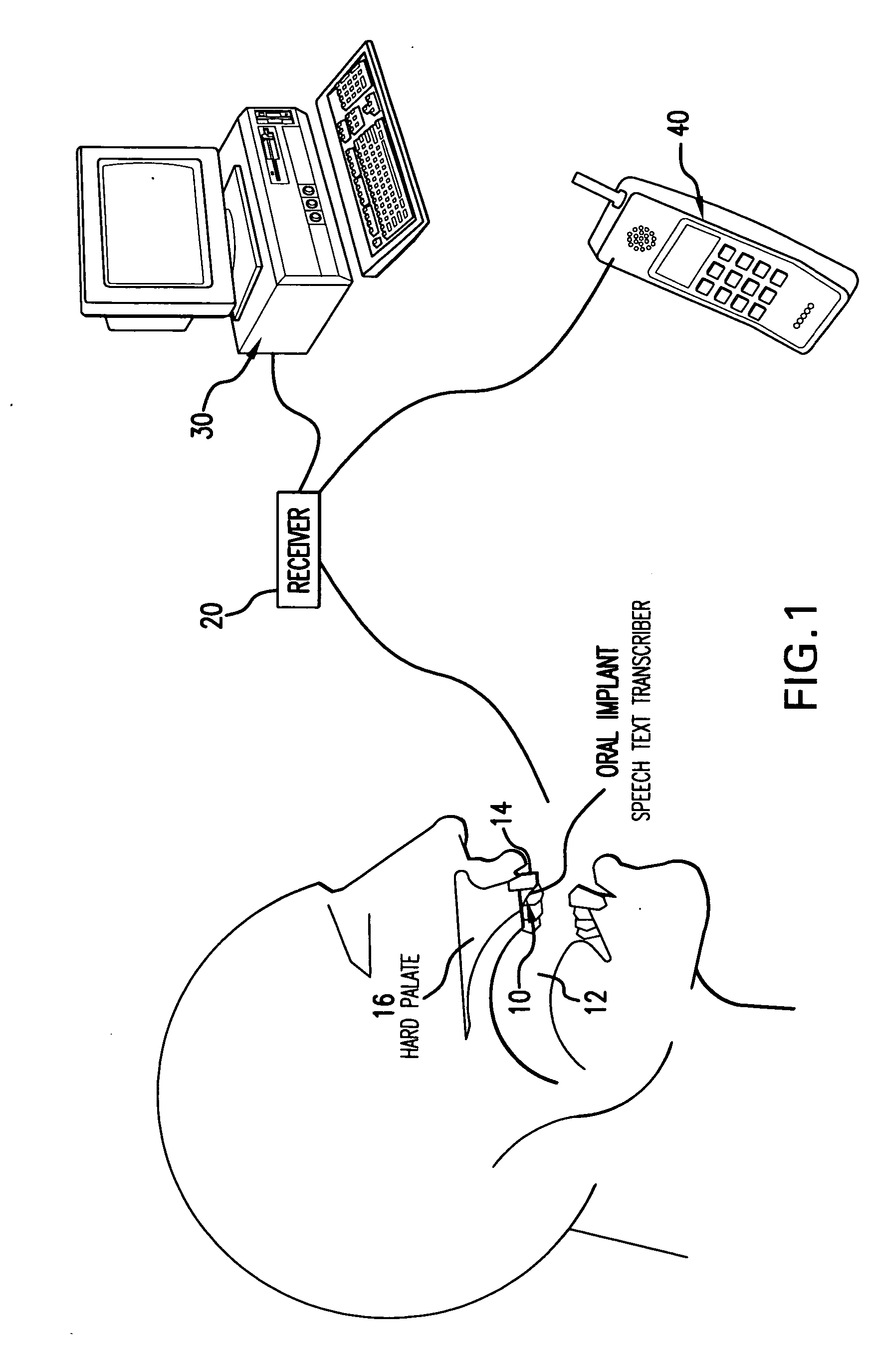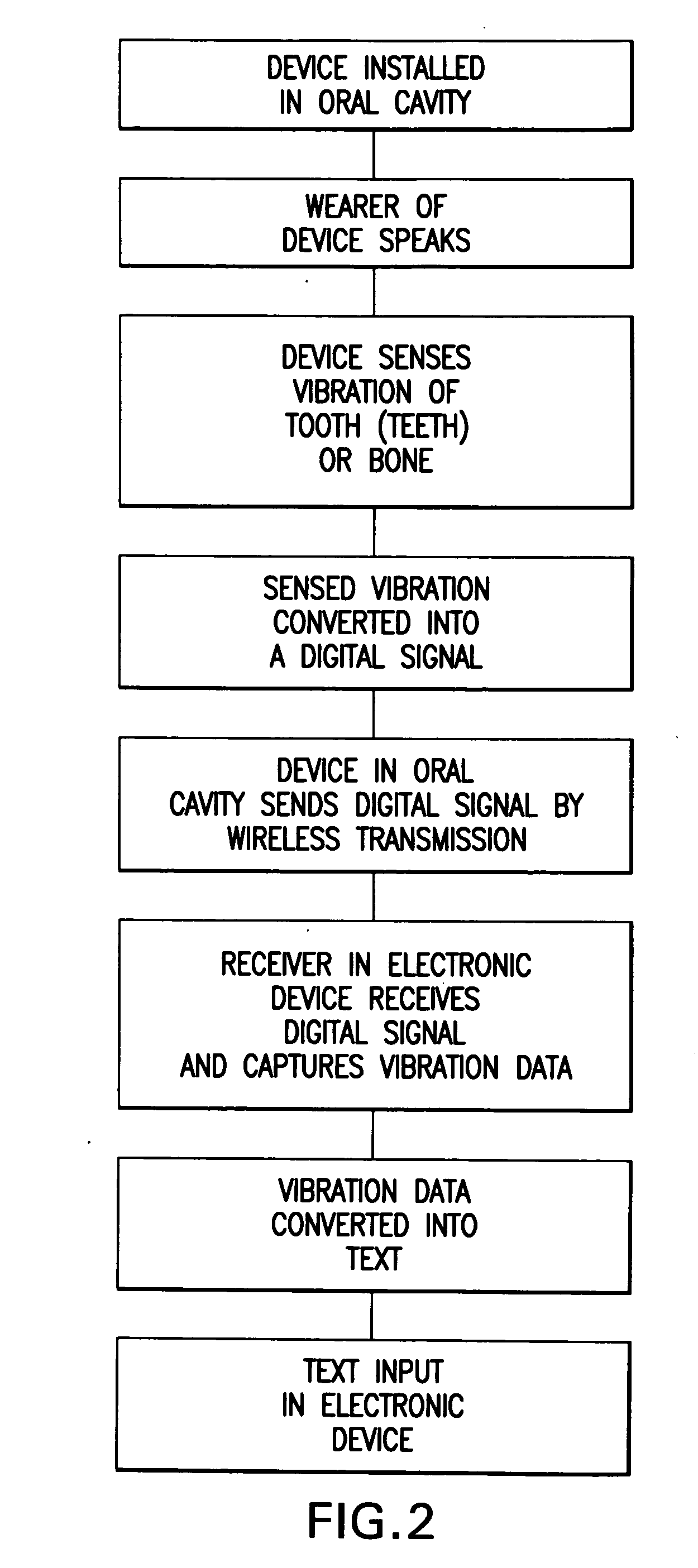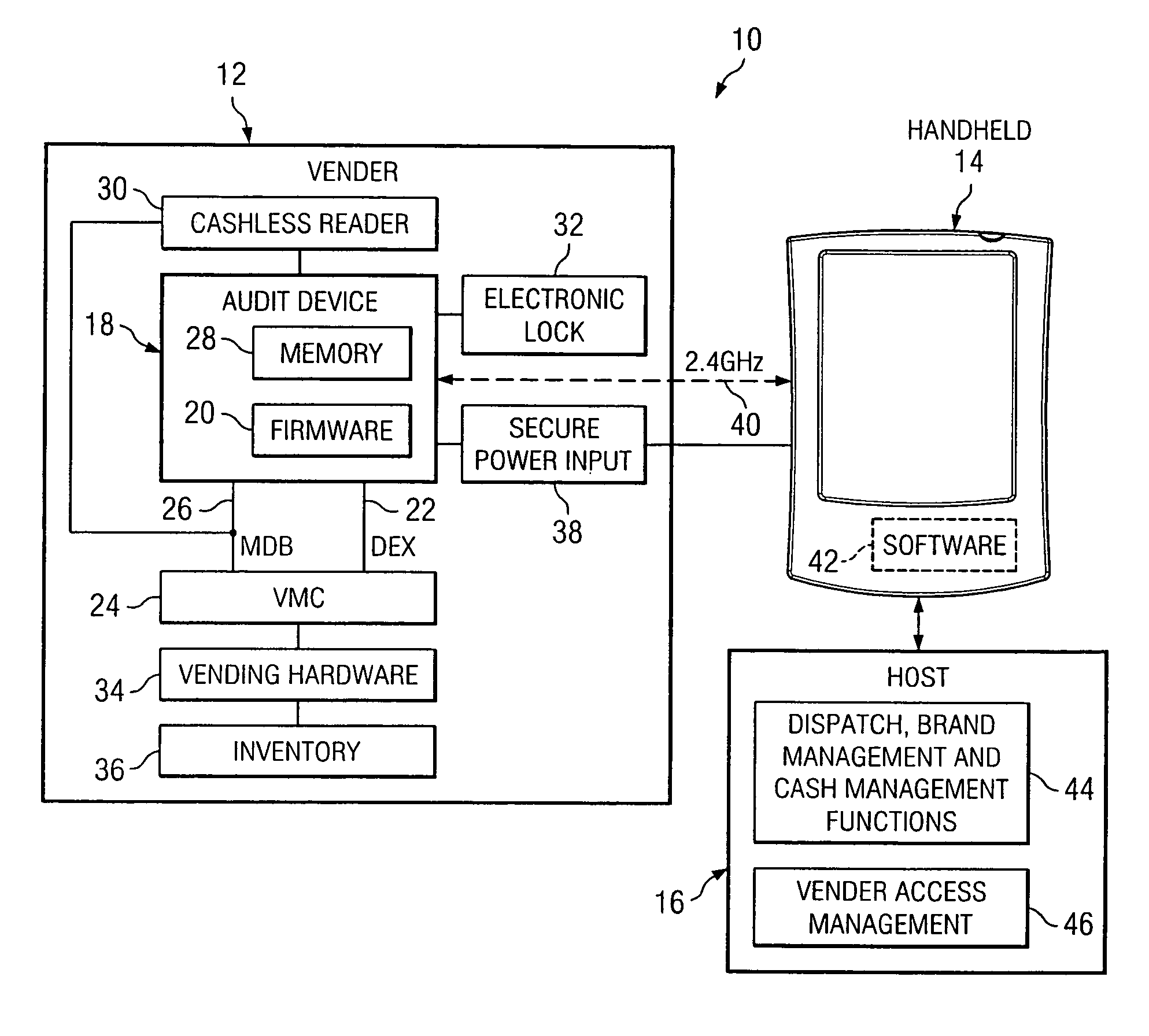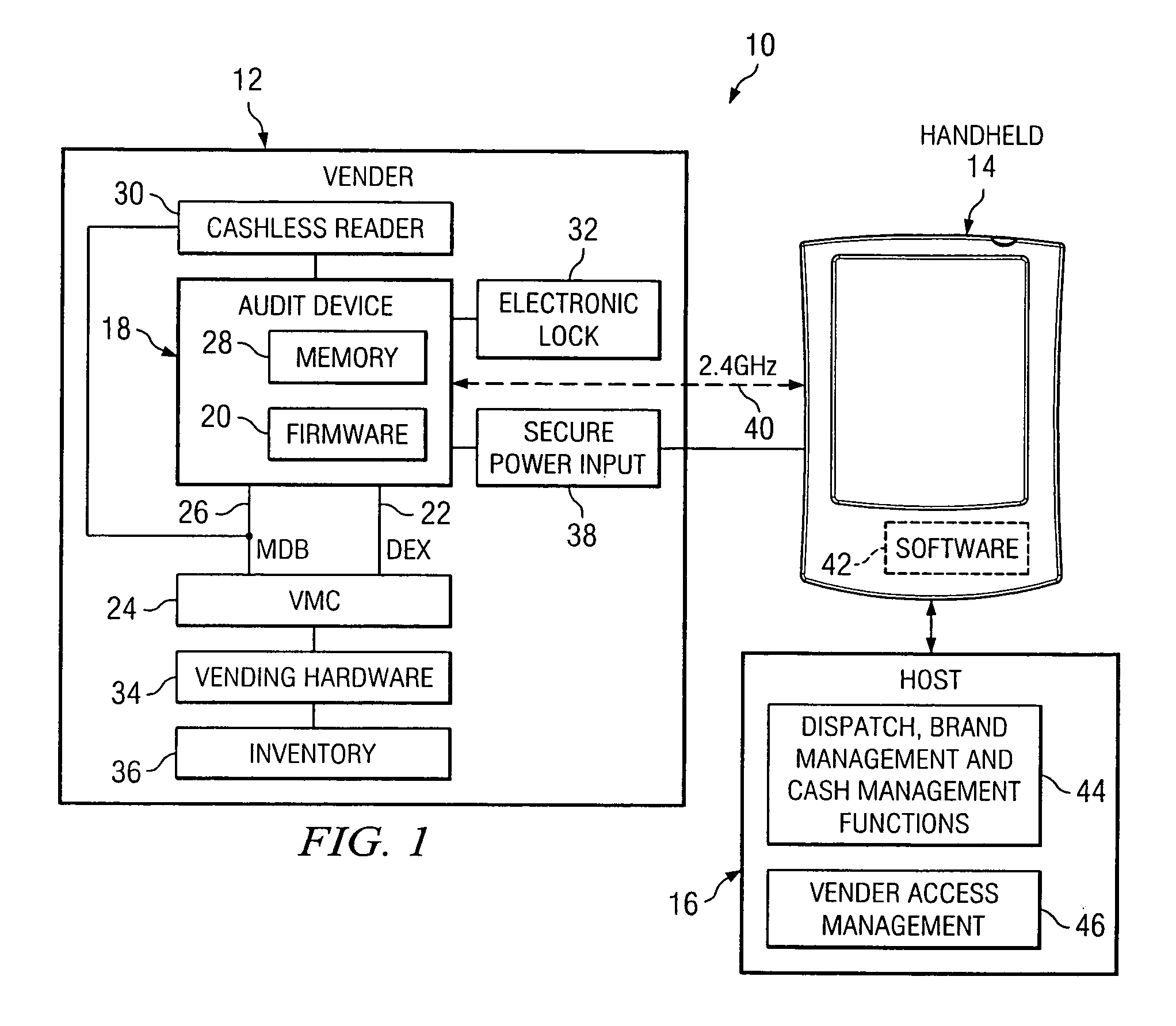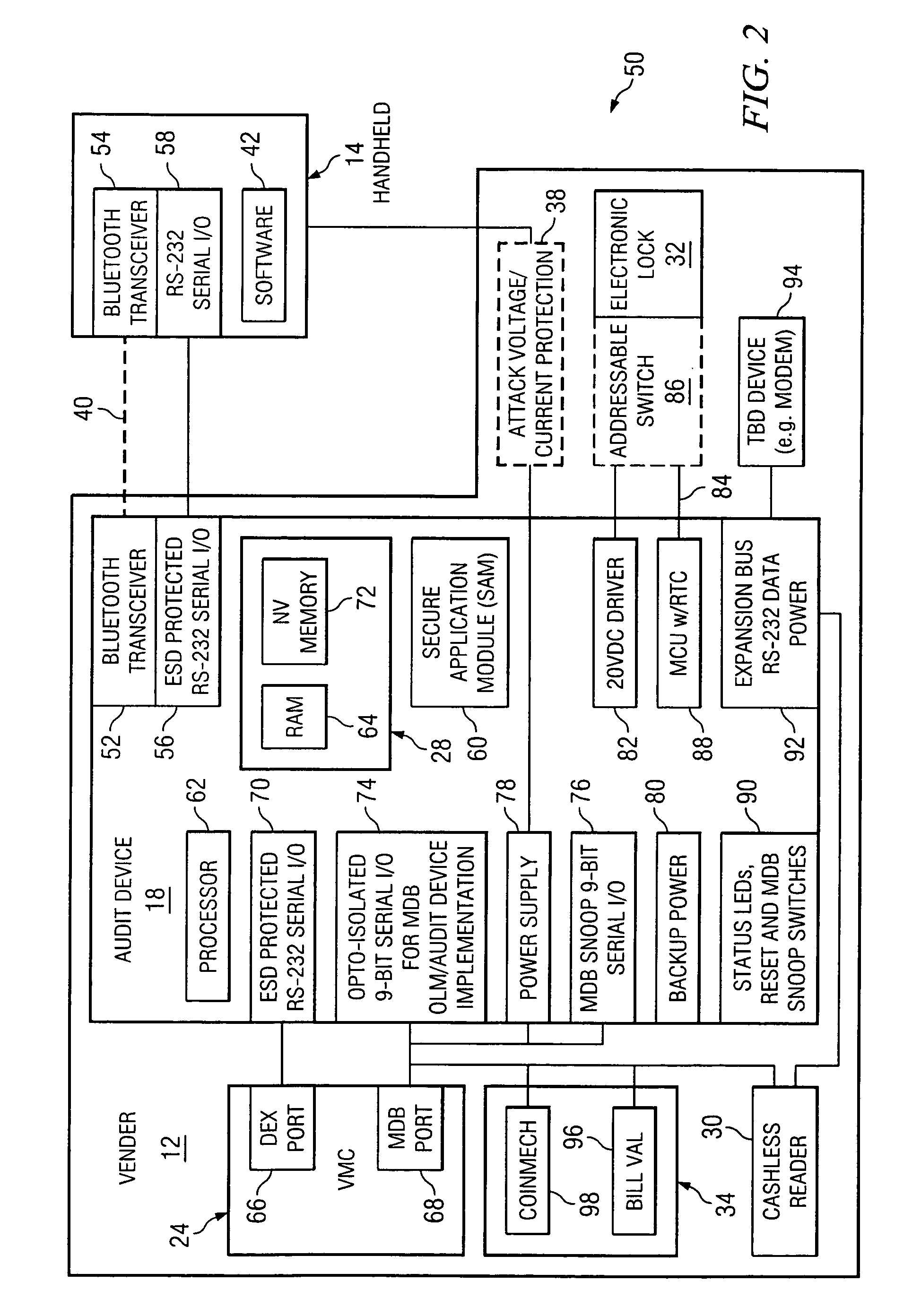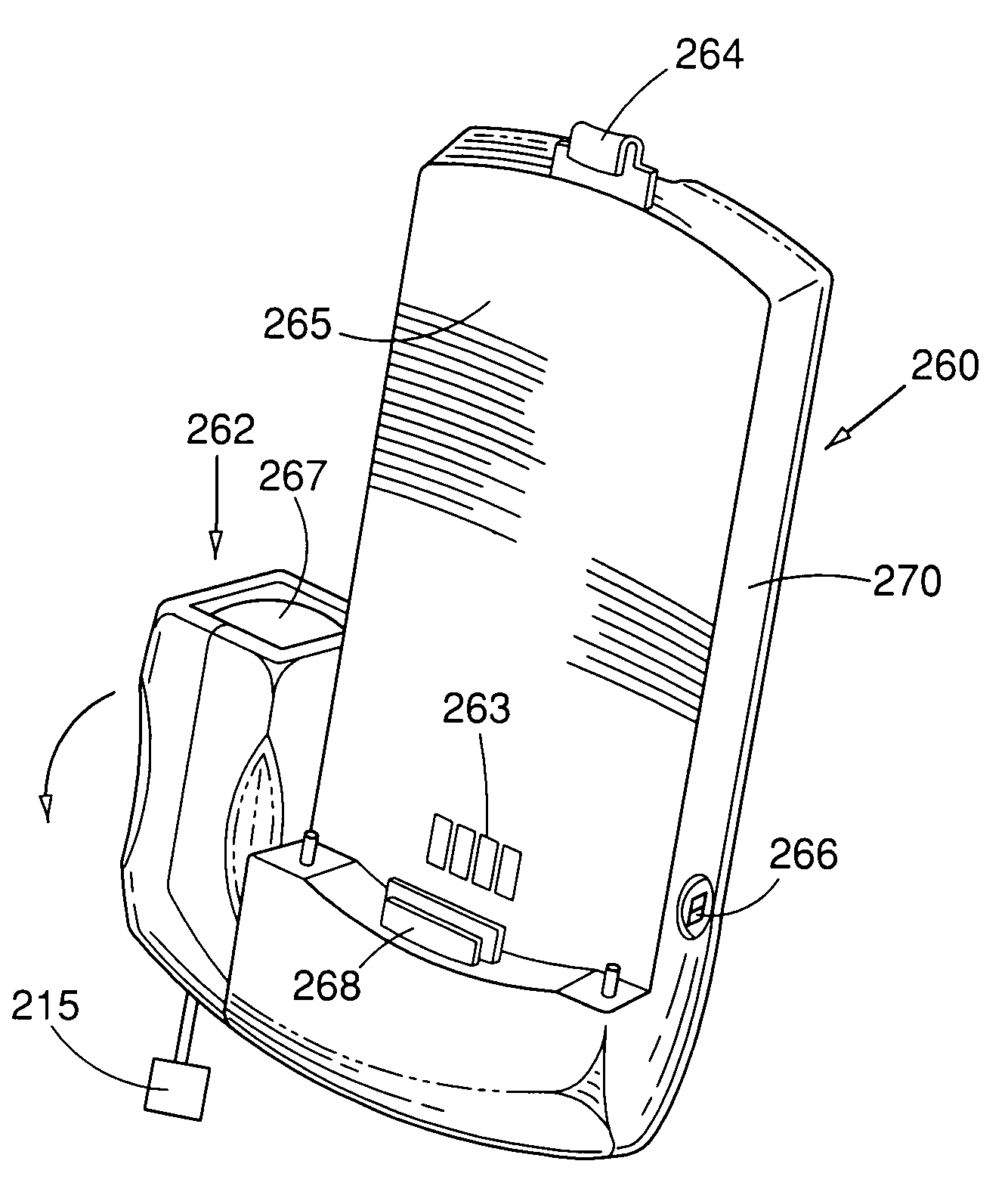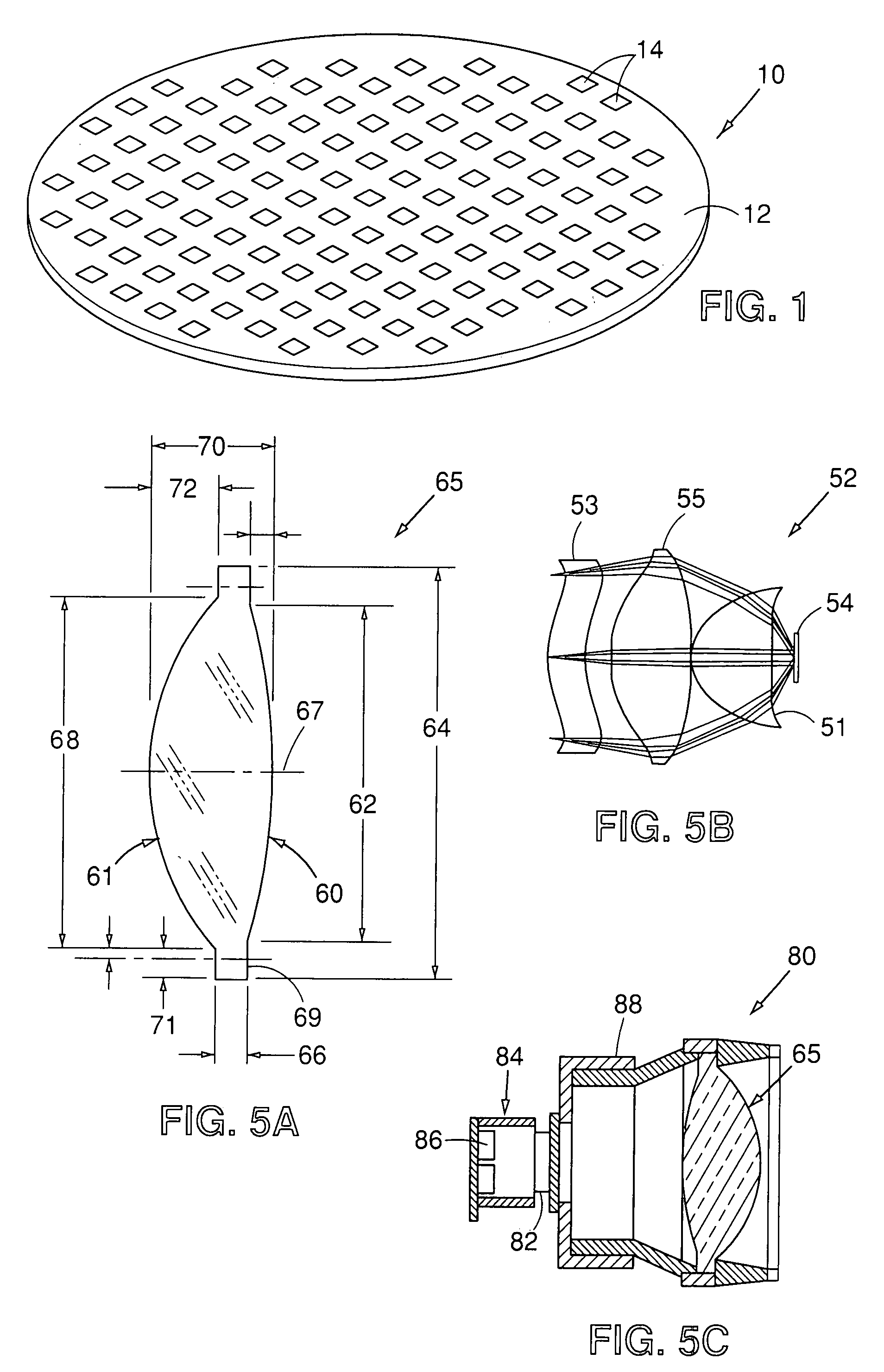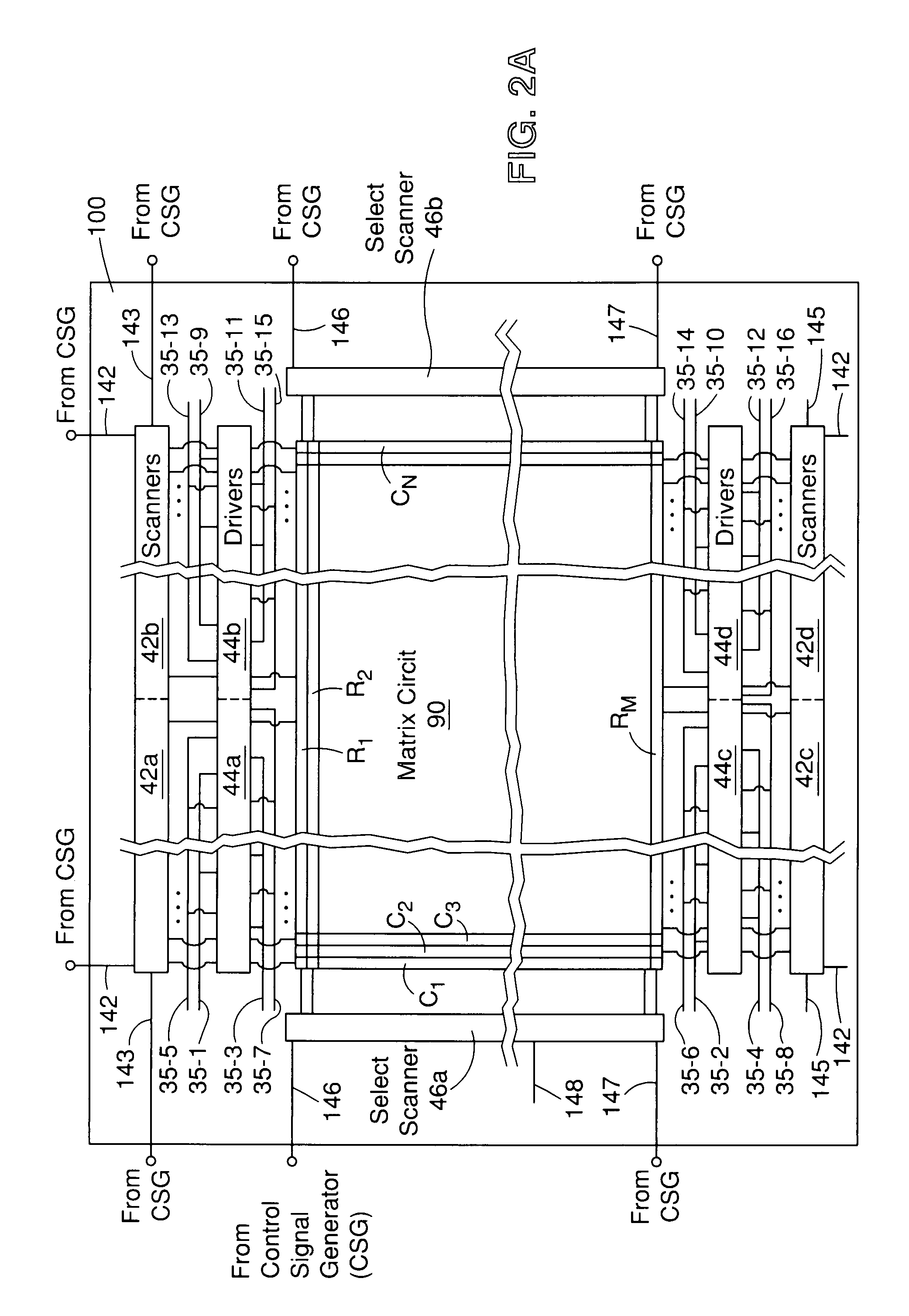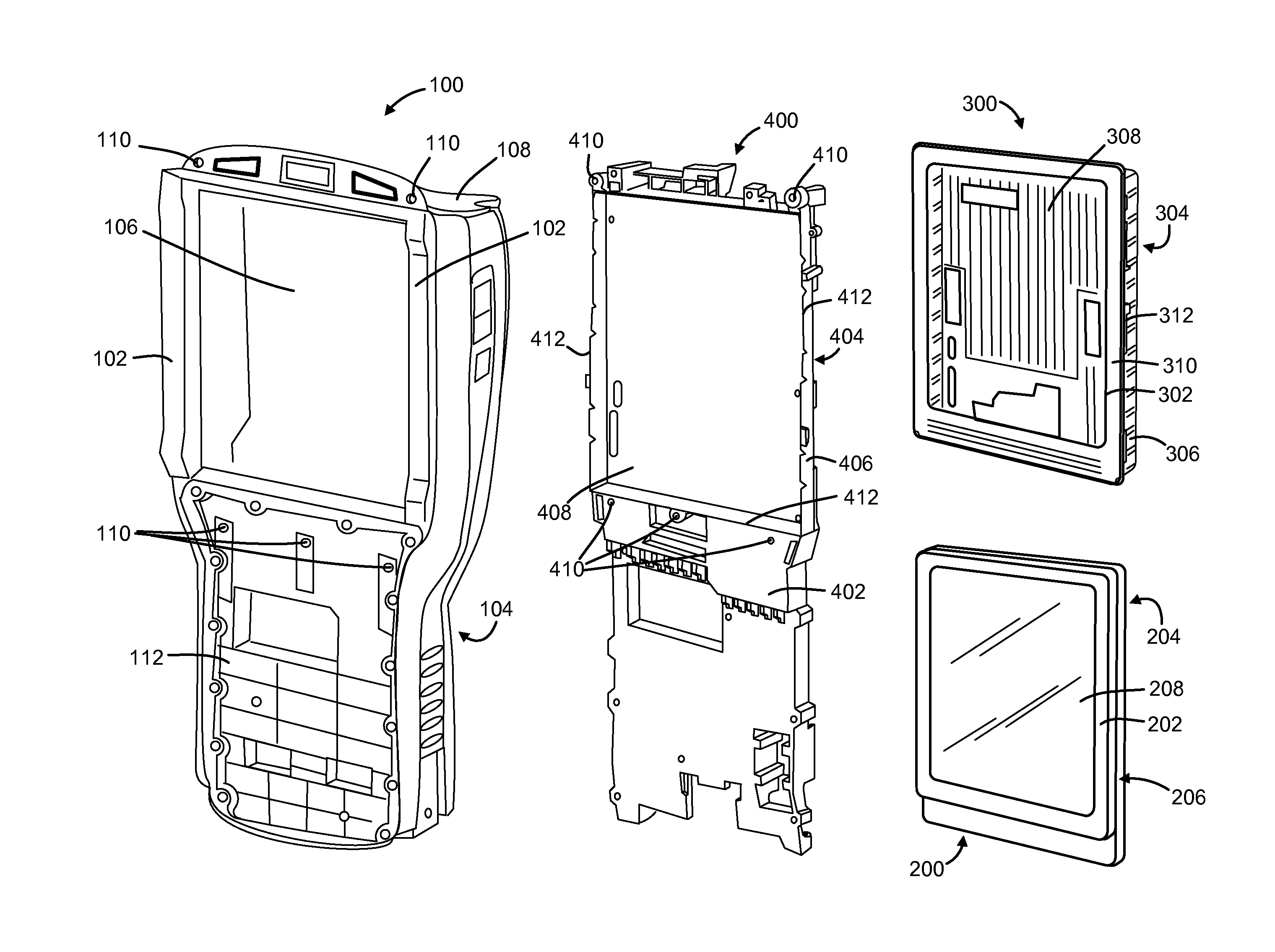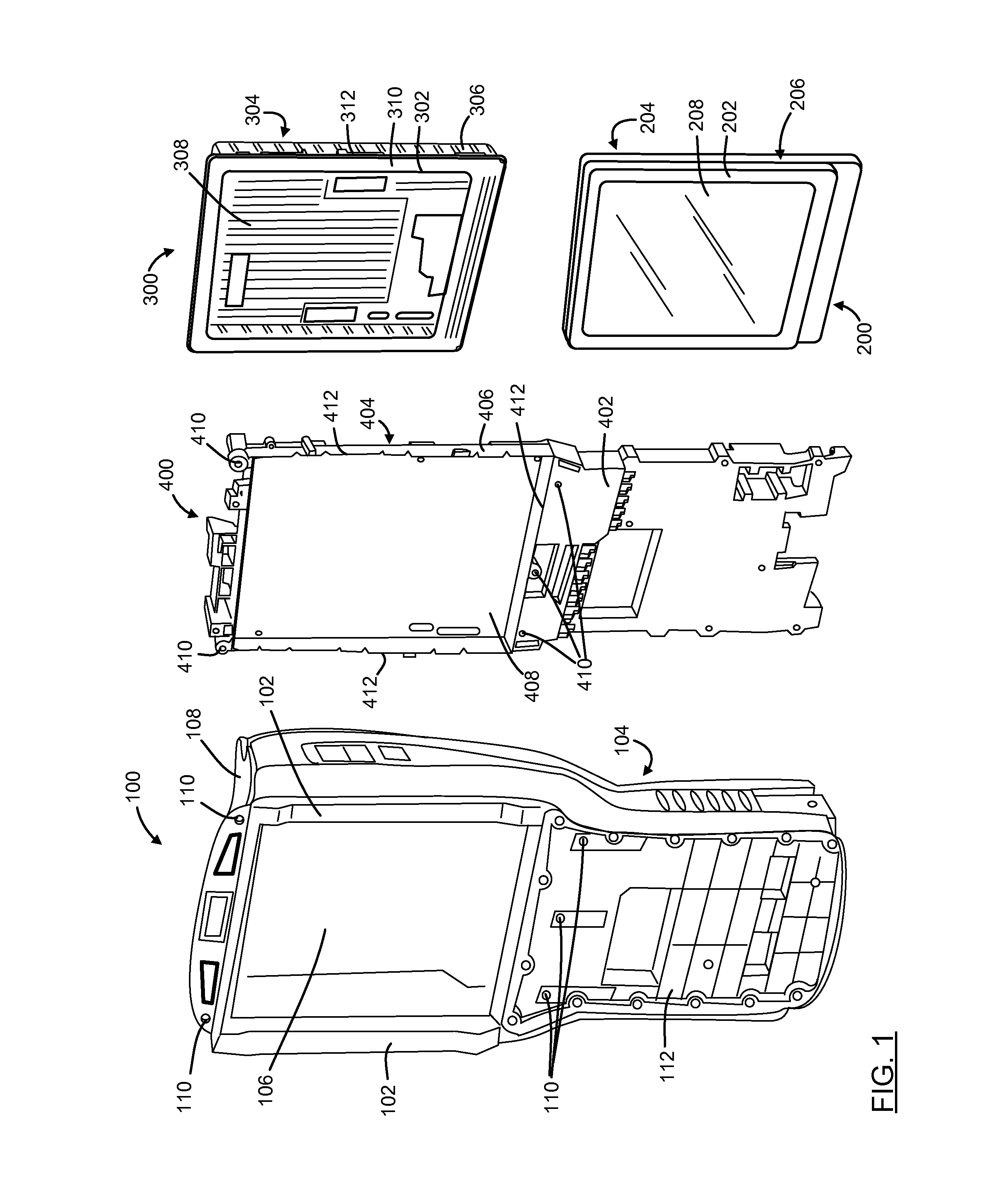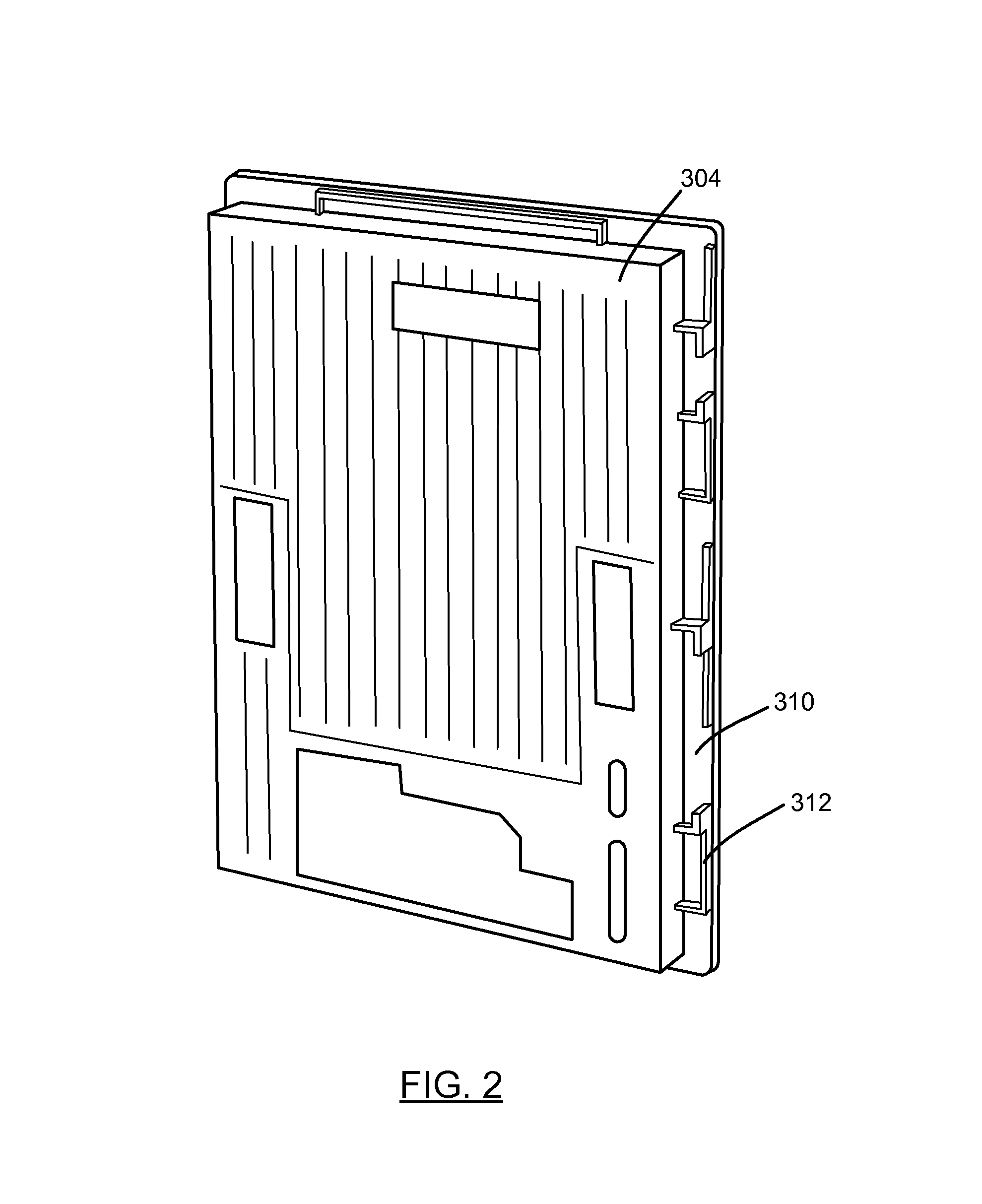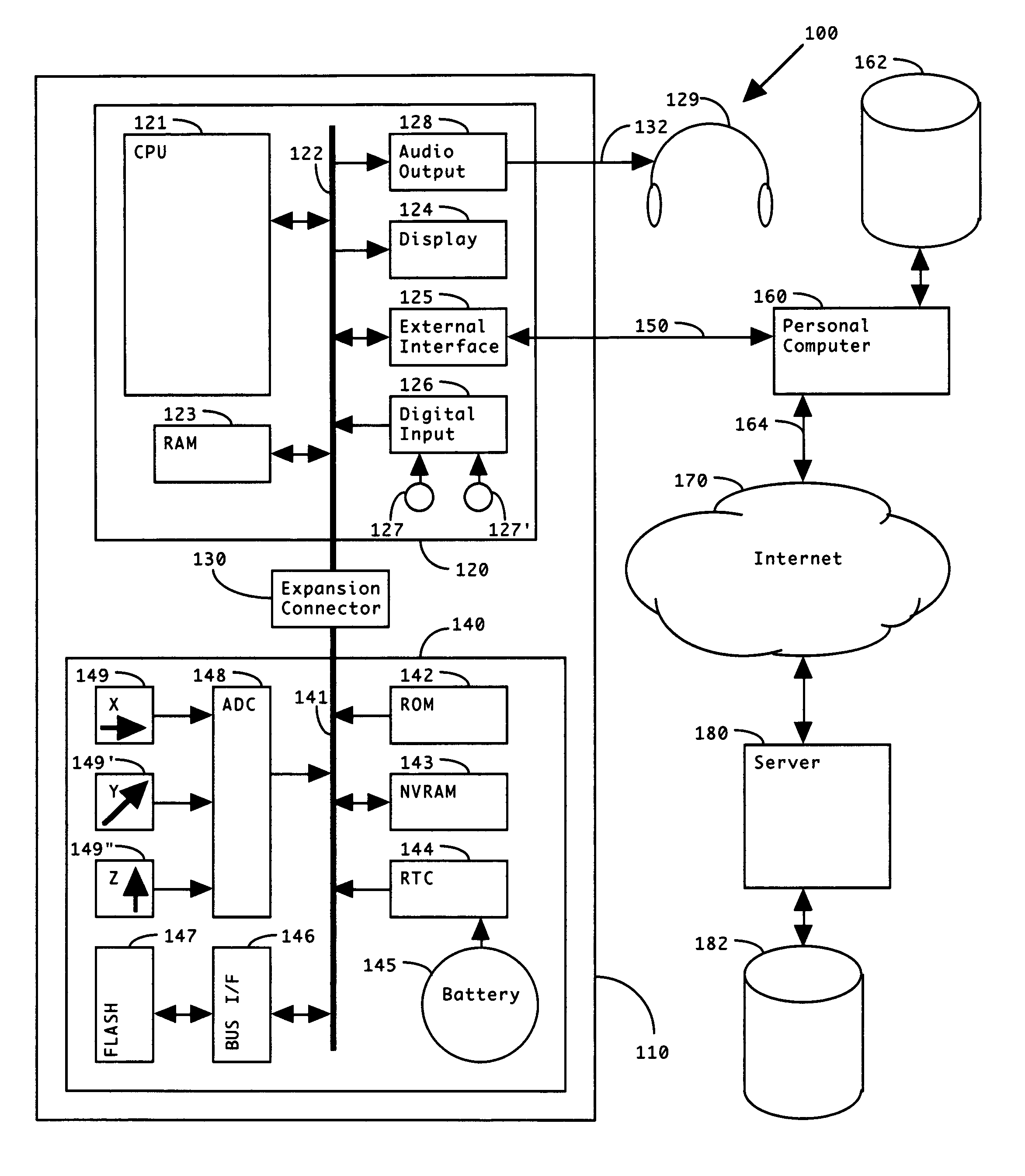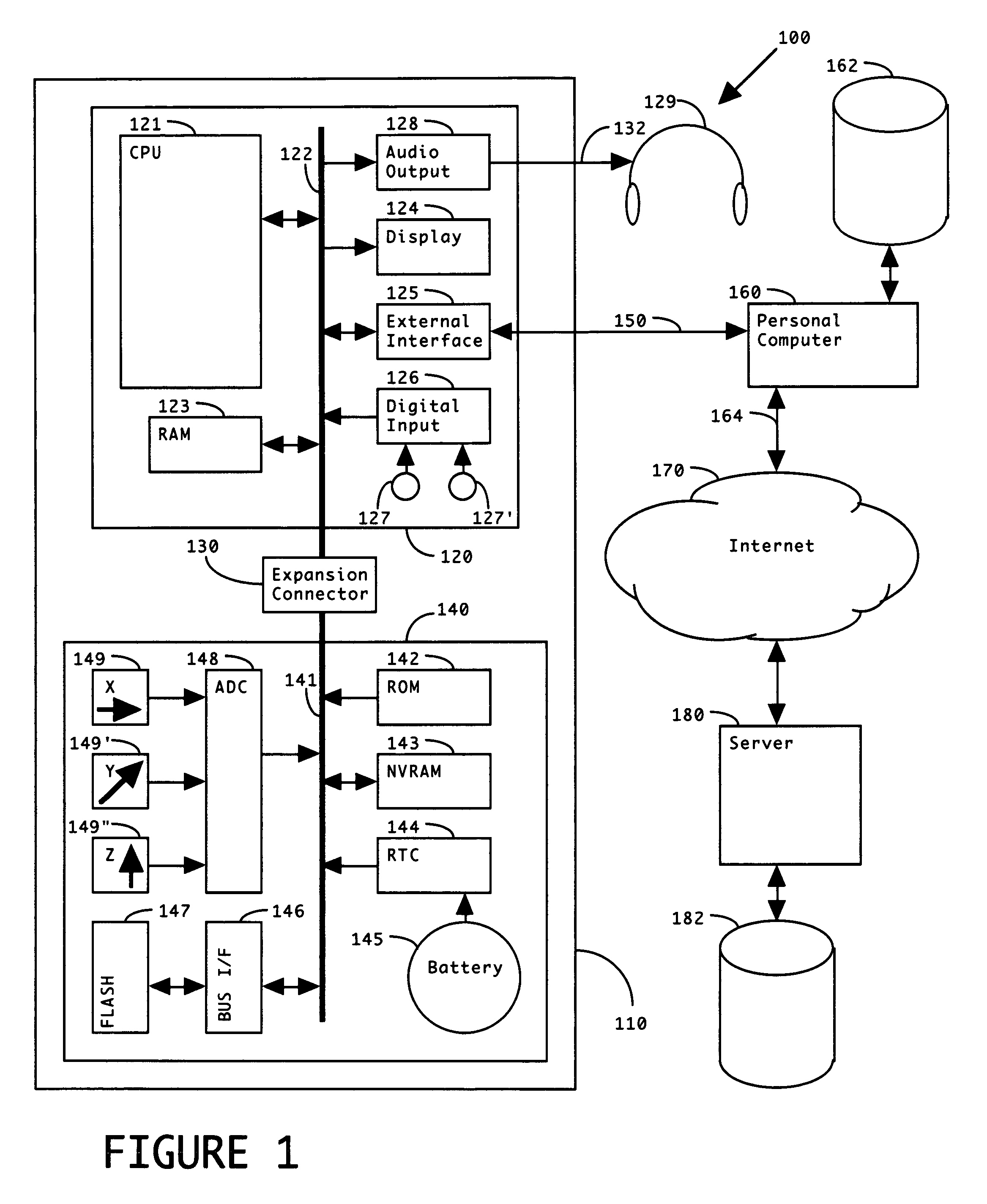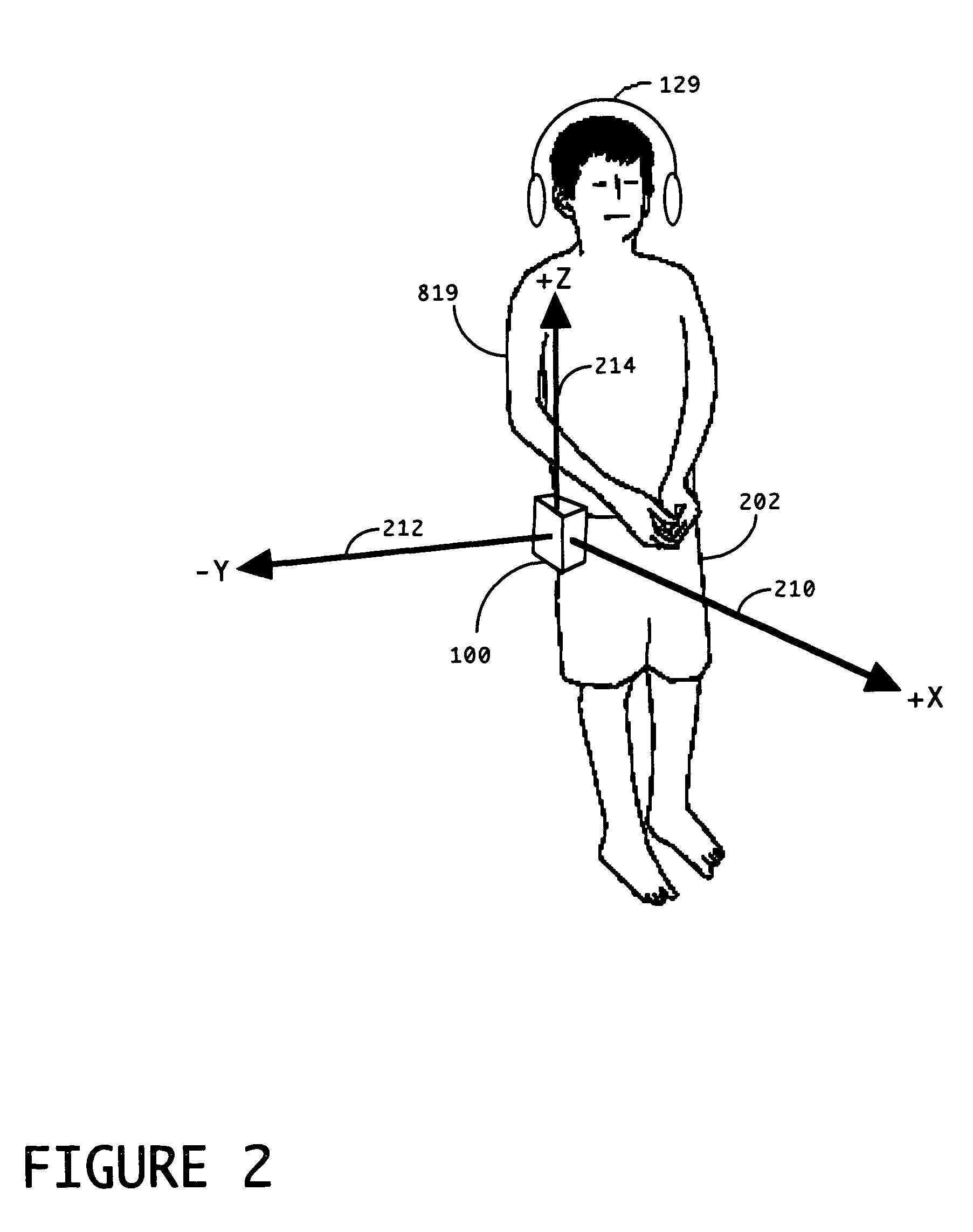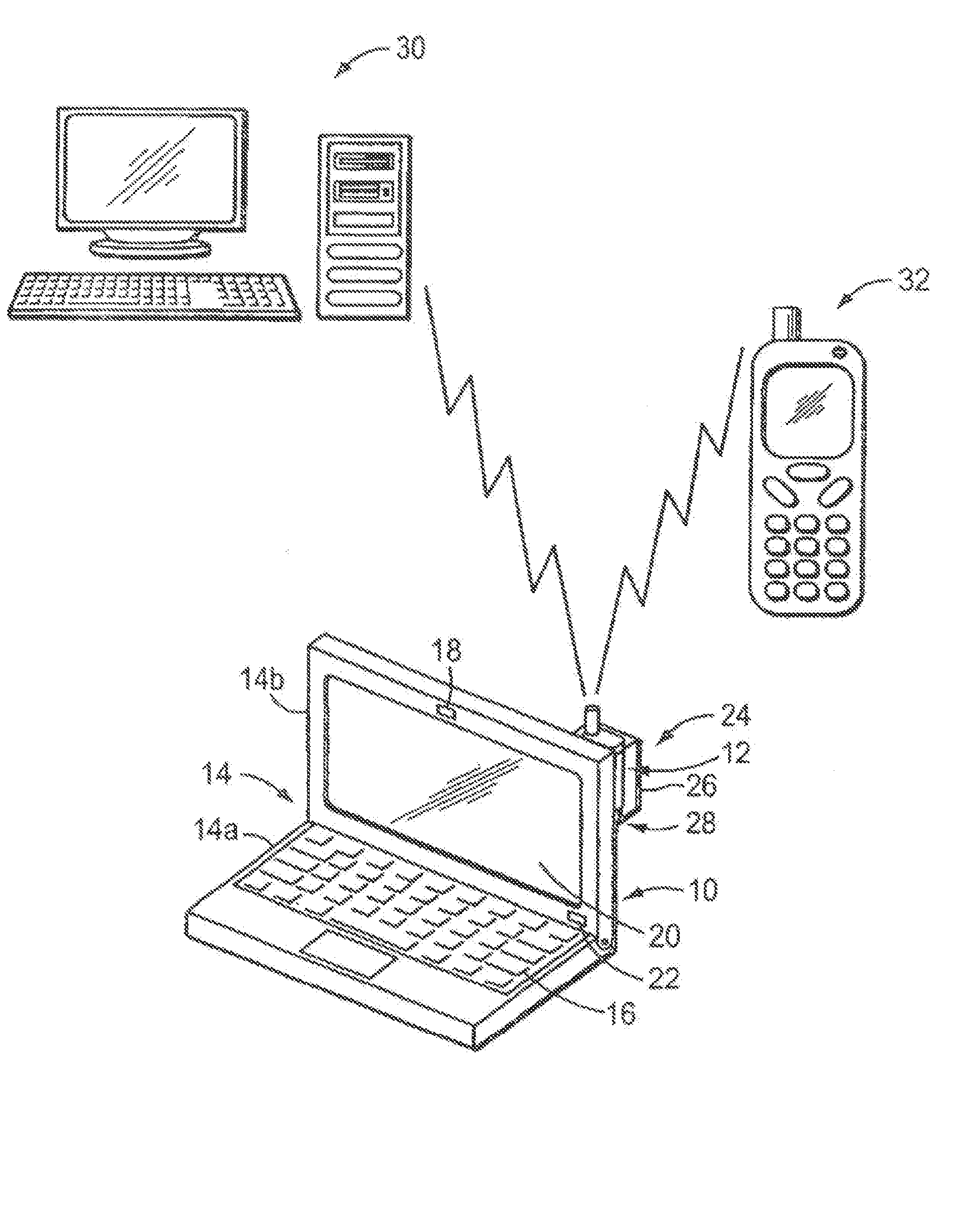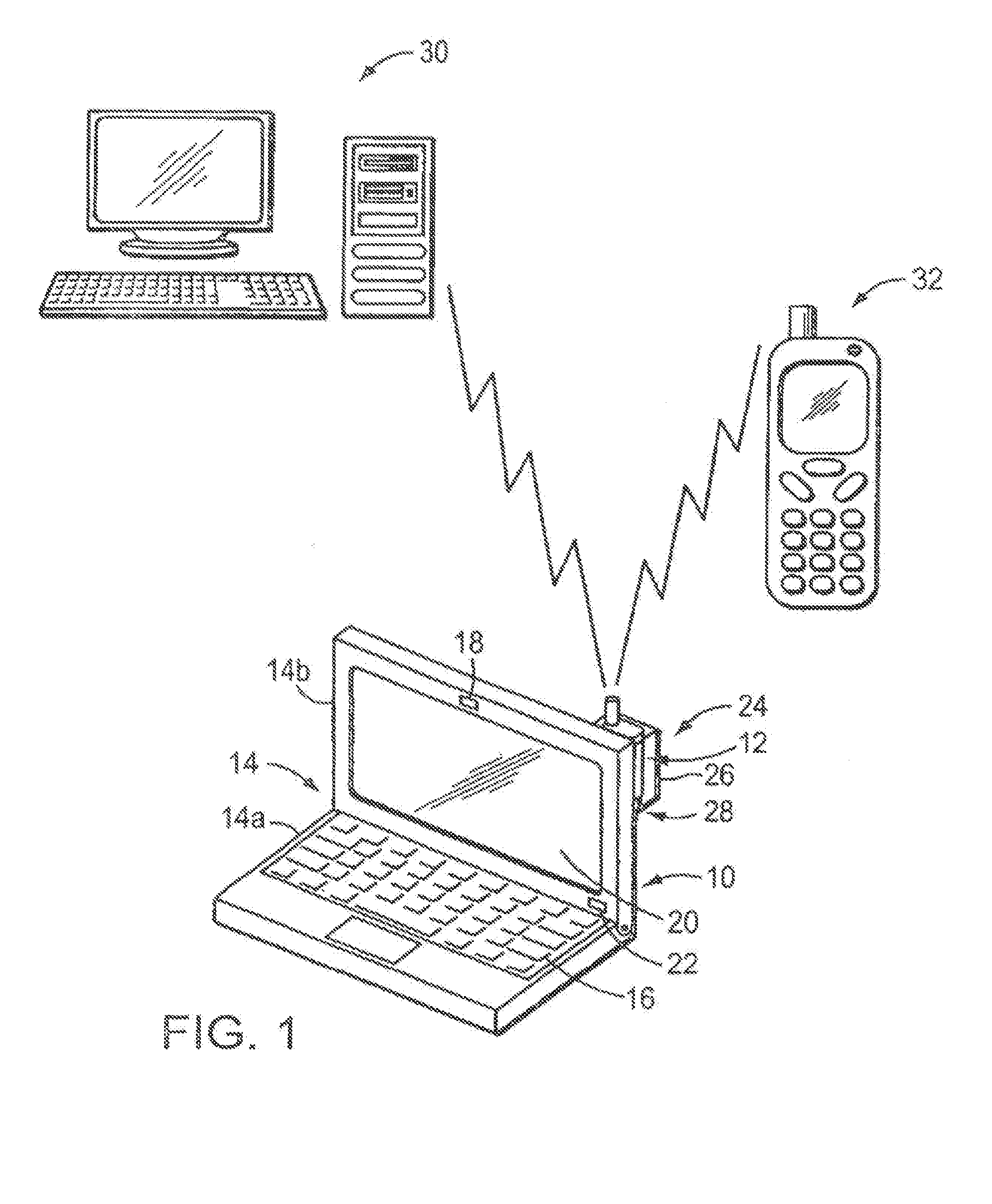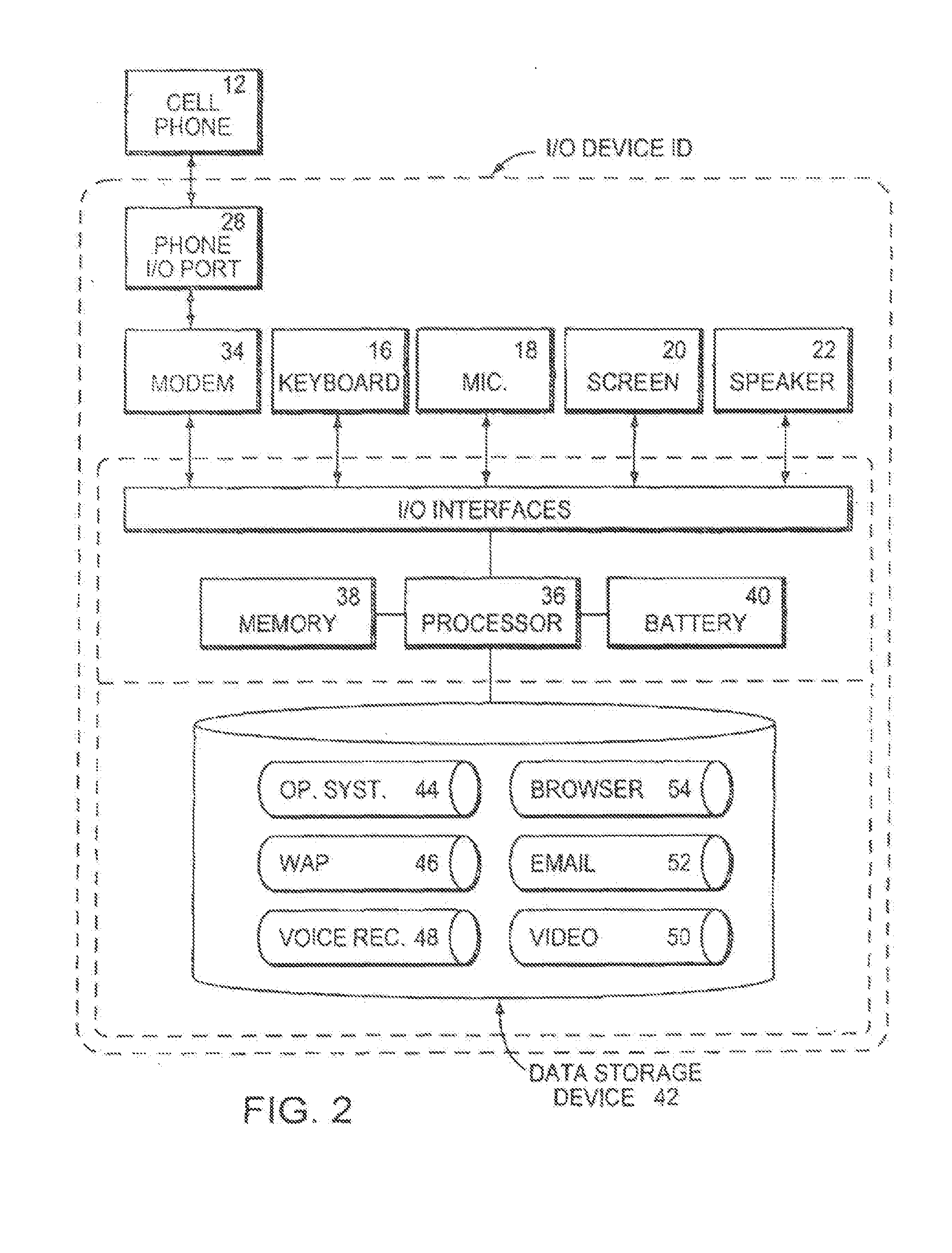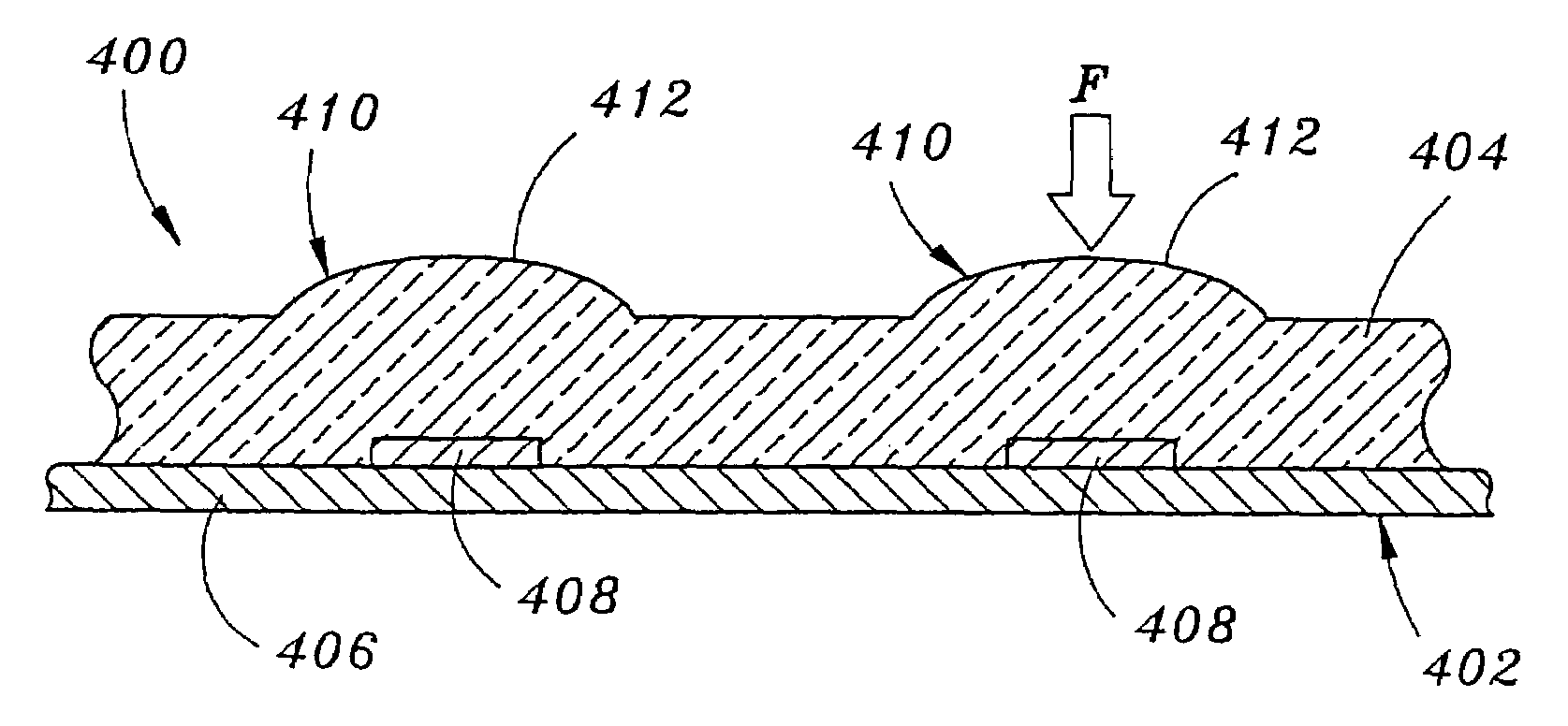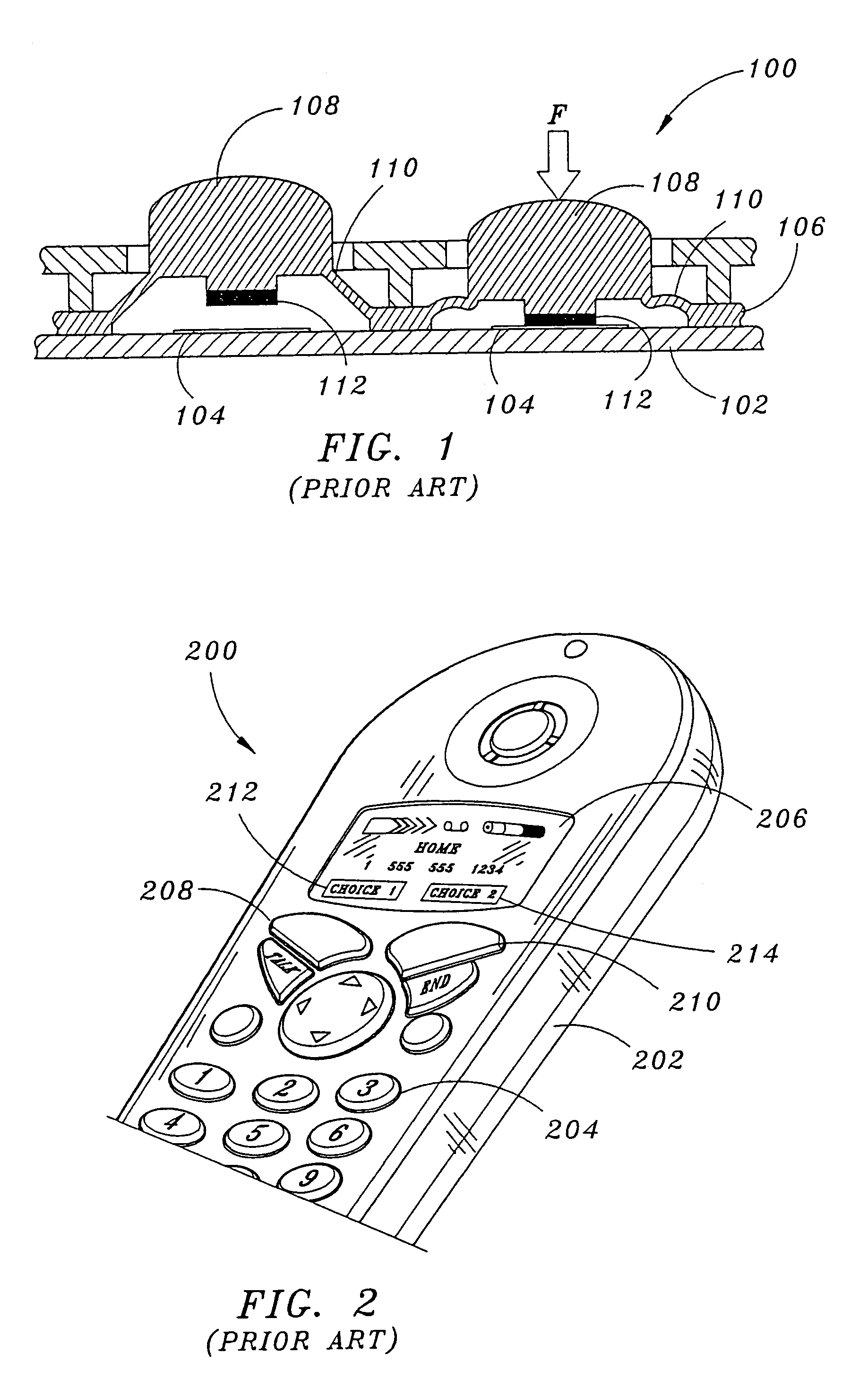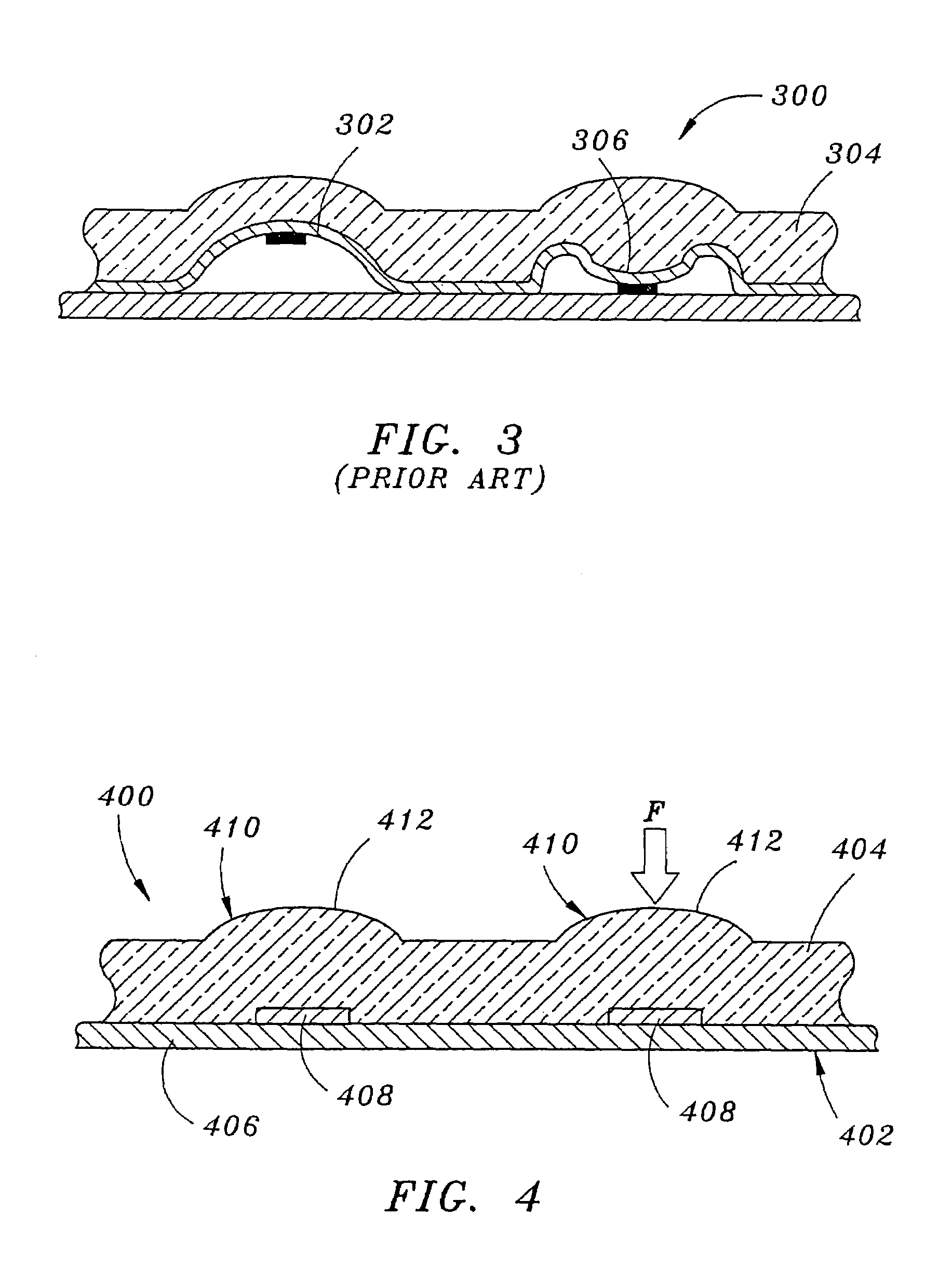Patents
Literature
345 results about "Hand Held Computer" patented technology
Efficacy Topic
Property
Owner
Technical Advancement
Application Domain
Technology Topic
Technology Field Word
Patent Country/Region
Patent Type
Patent Status
Application Year
Inventor
Hand Held Computer is the device used during the address canvassing portion of the 2010 Census conducted by the United States Census Bureau.
System for and method of collecting and populating a database with physician/patient data for processing to improve practice quality and healthcare delivery
A system and method relates to the field of building and administrating a patient management and health care management database containing data relevant to the clinical care of patients, to the management of the practices to which the patients belong, and to outcomes of that health care and practice management. The disclosed system encompasses (i) designing and administering paper and pen and hand held computer survey instruments; (ii) administering and collecting completed surveys (iii) building and managing a database of information collected from the surveys; (iv) analyzing data collected from the surveys; (v) and providing clinical practices with summary information. Summary information may be used to improve patient care, health outcomes, and the management of physician practices.
Owner:PULSEGROUP
Multi-touch gesture dictionary
ActiveUS20070177803A1Easy to implementCharacter and pattern recognitionDigital output to display deviceTablet computerComputerized system
Owner:APPLE INC
Blood glucose tracking apparatus and methods
ActiveUS20050239156A1Easy and precise applicationEfficient use ofBioreactor/fermenter combinationsBiological substance pretreatmentsHand heldComputer module
A measurement module for glucose testing includes a glucose testing measurement module housing, a test strip receptacle formed in the housing, and a connector portion formed in the housing and shaped to permit mechanical removable attachment of the housing to a hand-held computer. Electronics determine the amount of glucose present in a sample of body fluid, when the test strip is positioned in the receptacle and the body fluid is placed on a test strip, and communicate the glucose amount to the hand-held computer via the connector portion.
Owner:ABBOTT DIABETES CARE INC
Blood glucose tracking apparatus and methods
ActiveUS20050277164A1Easy and precise applicationEfficient use ofBioreactor/fermenter combinationsBiological substance pretreatmentsHand heldComputer module
Owner:ABBOTT DIABETES CARE INC
Integrated handheld computing and telephony system and services
InactiveUS20060015819A1Improve ease of useImprove operationData processing applicationsCalling susbscriber number recording/indicationHand heldHand Held Computer
Disclosed is an integrated handheld computer and telephony system. Integration of the handheld computer and telephony system is at the physical and operational level. For example, the integrated handheld computer and telephony system physically integrates a handheld computer with a mobile (e.g., cellular) telephone. In addition, the handheld computer is distinct from telephony system in that they are logically separable. However, they are also operationally integrated, for example, the telephony system executes a telephone application on the processor of the handheld computer. Likewise, the handheld computer can execute applications, for example, a phone book, that can be used to launch the telephony application.
Owner:HEWLETT PACKARD DEV CO LP
Portable, folding and separable multi-display computing system
InactiveUS20070182663A1Volume/mass flow measurementDigital computer detailsComputer monitorDisplay device
The present invention provides a coupling mechanism between a primary computing device and a secondary computing device, wherein each computing device may be physically separated from each other while continuing to communicate with each other. The primary computing device has the minimum functionality of a complete computing system such as a Tablet PC™, for example, and the secondary computing device has the minimum functionality of a hand-held computer monitor. The secondary computing device may also however, have the functionality of a complete computing system, or other level of functionality therebetween. The primary computing device may act as a master and control the functionality of the secondary computing device via a network or data bus connection, for example. The secondary computing device may be toggled between computer monitor functionality and secondary computer functionality regardless of whether or not the two computers are physically connected.
Owner:BIECH GRANT STEVEN
Multi-touch gesture dictionary
InactiveUS20070177804A1Easy to implementCharacter and pattern recognitionInput/output processes for data processingTablet computerHand Held Computer
Owner:APPLE INC
System, method, and apparatus for portable design, deployment, test, and optimization of a communication network
InactiveUS6971063B1Rapid positioningData processing applicationsDigital computer detailsHand heldHand Held Computer
A system and method which employ one or more portable hand held computers and one or more servers, allows a field engineer to complete the entire design, deployment, test, optimization, and maintenance cycle required to implement successful communications networks. The engineer may take the portable hand held computer into the field, and make alterations to the components, position of the components, orientation of the components, etc. based on on-site inspection. As these alterations to the computerized model are made, predictions for the effects these changes will have on the communications network are displayed to the engineer. Measurements may also be made using equipment connected to or contained in the portable hand held computer, and these measurements may be used to optimize performance criteria. Information can be transmitted to and from the portable hand held computer and the server to allow for complex processing to be performed.
Owner:EXTREME NETWORKS INC
Hand-held computer device and method for interactive data acquisition, analysis, annotation, and calibration
InactiveUS7286894B1Efficient conversionEasy to separateMultiple digital computer combinationsTransmissionDisplay deviceData acquisition
A handheld computer device for data acquisition is described. The device includes a hardware interface to be connected to a processing device and to an attachable sensor. The device also includes a data module to interact with the sensor and with the processing device and a display module to display data collection results on a display of the processing device.
Owner:PASCO SCI
Handheld computer systems and techniques for character and command recognition related to human movements
ActiveUS20120007713A1Television system detailsUnauthorised/fraudulent call preventionEngineeringHand Held Computer
Systems and methods for human hand gesture recognition through a training mode and a recognition mode are disclosed. In the training mode, a user can move a handheld device with a hand gesture intended to represent a command. Sensors within the handheld device can record raw data, which can be processed to obtain a set of values corresponding to a set of discrete features, which is stored in a database and associated with the intended command. The process is repeated for various hand gestures representing different commands. In the recognition mode, the user can move the handheld device with a hand gesture. A computer system can compare a set of values corresponding to a set of discrete features derived from the hand gesture with the sets of values stored in the database, select a command with the closest match and displays and / or executes the command.
Owner:INVENSENSE
Access Control Through Multifactor Authentication with Multimodal Biometrics
ActiveUS20150347734A1Safe storageImprove securityDigital data processing detailsUser identity/authority verificationThe InternetFinancial transaction
A system is provided in which a person may use a Cellular (Mobile) Telephone, a PDA or any other handheld computer to make a purchase. This is an example only. The process may entail any type of transaction which requires authentication, such as any financial transaction, any access control (to account information, etc.), and any physical access scenario such as doubling for a passport or an access key to a restricted area (office, vault, etc.). It may also be used to conduct remote transactions such as those conducted on the Internet (E-Commerce, account access, etc.). In the process, a multifactor authentication is used.
Owner:BEIGI HOMAYOON
Electronic data gathering for emergency medical services
InactiveUS20020004729A1Data processing applicationsLocal control/monitoringEmergency medical carePopulation statistics
An apparatus for capturing and storing medical emergency information under the adverse circumstances of the emergency scene, without relying on multiple computers and remote communications for support during use. To accomplish data capture and storage, use of a single ruggedized hand held computer with a graphical user interface employing a touch sensitive display screen, and pen stylus for simplifying documentation of patient demographic, history and medications data, focal patient complaints and problems, vital signs, physical exam findings, medication administration, routes and quantities, motorized vehicle crash history, case disposition, emergency crew, and case review and notes. Collection of focal patient complaints and problems is simplified through a body graphical user interface. Easily accessed reference databases for drugs and protocols support the emergency medical technician. Handwriting recognition, signature capture and numerical data entry enable obtaining of necessary crew and patient signatures and other data, including patient refusal of care. Through the use of a variety of secure communication interfaces, printing or transfer of all data collected is provided to other systems. Full compliance with NHTSA and Utstein minimal data reporting set requirements.
Owner:ZAK CHRISTOPHER +2
Method and system for detecting viruses on handheld computers
InactiveUS6842861B1Memory loss protectionUnauthorized memory use protectionComputerized systemHand Held Computer
A method and system for detecting viruses on handheld computers. The handheld computer is in communication with a computer system having a virus detection program. The method includes reading data from the handheld computer and writing the data at least temporarily to a database on the computer system. The data is scanned for viruses with the virus detection program. The method further includes updating data on the handheld computer based on results of the scanning.
Owner:MCAFEE INC
Multi-configuration portable electronic device and method for operating the same
InactiveUS20050020325A1Cost-effectiveSignificantly more convenient and less cumbersomeDetails for portable computersTelephone set constructionsPagerDisplay device
A multi-configuration portable electronic device is provided. The device includes at least one processor, a first body element including at least one input, and a second body element including a display. The second body element is pivotally coupled to the first body element such that the device can be positioned into a plurality of physical configurations. In response to a change in the physical configuration of the device, there is a change in at least two of a mode of operation of the input device, a mode of operation of the display, and an active software application being executed by the processor. In a preferred embodiment, the physical configurations of the device include a portrait configuration in which the device functions as a wireless phone, and a landscape configuration in which the device functions as a text messaging pager, PDA, handheld computer, electronic organizer, or media player. Also provided is a method of operating a portable electronic device having a plurality of physical configurations.
Owner:MOTOROLA INC
Impact-resistant case with sealable opening
InactiveUS20070158220A1Cost-effectiveEasy to customizeClosed casingsDigital data processing detailsPagerHand held
The present invention is a cost effective impact-absorbing insert which combines multiple functionality with parts consolidation and ease of customization that allows wide application anywhere tailored impact protection is desired. The impact-absorbing insert of the present invention mates with a user defined enclosure to produce a protective case for any fragile articles that are used in a portable environment, for example portable electronic devices such as cameras (35 mm and digital), instrumentation, tools, PDAs, web tablets, hand held computers, cell phones, pagers, gaming devices, electronic music players, voice recorders, global positioning systems (GPS), and the like.
Owner:CLEEREMAN ROBERT J +2
System and method for continuous delivery schedule including automated customer notification
A system and method for continuously monitoring and updating delivery schedules based on completed deliveries and customer modifications. A delivery scheduling computer stores and updates delivery schedule information, notifying the customer prior to a scheduled delivery of an estimated time of delivery. The notification is made to a customer's PC, browser-based client, hand-held computer or set-top box, or by conventional communication methods such as a telephone, pager, or cellular phone. If the customer desires to change the time or location of the delivery, the customer transmits a delivery change request and the schedule is modified accordingly. Employees use a hand-held computer or a browser-based client to receive updated delivery schedule information, as well as to transmit a delivery completion message to the delivery scheduling computer. The message includes an actual delivery time which the delivery scheduling computer uses to update the estimated delivery times of the remaining deliveries.
Owner:FUJITSU LTD
Telecommunications adapter providing non-repudiable communications log and supplemental power for a portable programmable device
InactiveUS6119179ABatteries circuit arrangementsDigital data processing detailsHand heldConference call
A portable adapter that provides non-repudiable telecommunications services to bar-code reading hand-held computers and palm-top or tablet-type mobile computers is disclosed. The adapter provides supplemental power supply and processing capacity that supports API communications functions, such as interactive voice recognition, conference calling, data encryption, VoIP packetization and other signal-format conversions that are not implemented on mobile computers. In particular, the device automatically logs IP packet identifiers and DOV dialing and status signals, without the user having access to edit this information, thereby providing a "non-repudiation" record of all communications. The adapter also supports intensive use of the host computer's serial port by supplementing the power available from the host computer's battery, or replacing that battery with a connector. For plant inspection and inventory auditing, ground-based cellular communications are implemented for supporting on-site work, including conference calling to discuss apparent pilferage or imminent safety hazards, and removable WORM recording media for documenting these discussions. For repair shop use, a standard phone jack or 10-base-T connector allows the device to upload engine test-data, with reports or estimates dictated by the mechanic to the repair shop's LAN server. For hospital use, the device includes removable WORM media for logging patient test results and examination reports. The hospital device also uses a dedicated local-area RF or IR transmitter, with location-specific encryption, to protect the privacy of lab reports received by the device, and to limit use of these devices to hospital's own premises.
Owner:HIPPO
Multi-user system for creating and maintaining a medical-decision-making knowledge base
InactiveUS6353817B1Eliminate needWave based measurement systemsMedical automated diagnosisMultiuser systemHand held
A multi-user system for creating and maintaining a knowledge base is implemented on a variety of computer systems, including single-user personal computers, networked personal computers, and data communications networks, including the Internet. The system has a graphic user interface which can be easily learned by non-programmers. The knowledge base is displayed as a hierarchical multiplicity of nodes, in which each node is related to one or more superior nodes. Title of text, rules, references, and attributes associated with each node are displayed, and may be modified. Simulation is used to verify the knowledge base once generated. Data may be extracted from the bases in the form of hard-copy books, databases for downloading into Web browsers, and databases for downloading into hand-held computers including a multiplicity of grids, and a multiplicity of branches in the form of a logic tree. The user may choose one of the alternative display formats, and the hierarchy can be displayed in either collapsed view or expanded view. Interference between two or more users accessing the system concurrently is prevented by a locking and authorization subsystem, which also prevents unauthorized access to the environment. The system provides an organization of workflow into a multiplicity of development stages. Each such stage has associated with it an authorization level, developers working on the system concurrently are limited by these levels to access only particular stages and levels of development.
Owner:CHANGE HEALTHCARE HLDG LLC
Method and system for playing associated audible advertisement simultaneously with the display of requested content on handheld devices and sending a visual warning when the audio channel is off
A method for providing advertising to a handheld computer operable to connect to a network. The handheld computer includes a screen for displaying visual content received from the network and configured for playing an audio message associated with the visual content. The method includes receiving a request for content from the handheld computer and associating an advertisement with the request for content. The requested content is sent to the handheld computer for display on the screen of the computer and the associated advertisement is sent to the computer for playing over an audio output device of the handheld computer.
Owner:MCAFEE LLC
Input-output device with universal phone port
InactiveUS6999792B2Easy accessEasy to carryInterconnection arrangementsAntenna supports/mountingsModem deviceHand Held Computer
A keyboard and a microphone for inputting information, a display screen and a speaker for viewing or hearing information, and a processor, all mounted to or within a housing in the form of a laptop computer or hand-held computer. A phone interface has a slot, channel, or other support member for holding the portable phone, with a phone port electrically connected to the processor. Alternative embodiments include a modem that is electrically connected to the processor and the phone port, and an adapter with a port that mates with the phone port and a port that mates with a selected phone. The phone wirelessly transmits data entered into the input components and transferred to the phone via the phone port, and wirelessly receives data to be transferred to the output components via the phone port for visual or audible output.
Owner:EXOTABLET
Apparatus and method for providing consolidated medical information
One aspect of the present disclosure relates to efficiently retrieving, organizing and updating medical information over a communication network, and to provide a seamless display of the organized information to a healthcare provider. In one embodiment, a healthcare provider uses a wireless handheld computer to access a patient's medical records that are stored on a remote server. In order to access the medical records, the patient first provides a patient identification card, while the healthcare provider supplies a user ID to the handheld computer. Once logged in, the healthcare provider can view the patient's medical records, or update those medical records with new data.
Owner:VANELLI JOHN
Decision information system for drug delivery devices
ActiveUS6928338B1Sampled-variable control systemsControlling ratio of multiple fluid flowsDoses rateGeneral purpose computer
Decision information systems, methods, and computer programs for better informing decisions to use multiple drugs in drug delivery devices, including implantable devices, for drug administration. Executable computer programs and logic embodying methods of the invention can calculate consistent multiple drug mixture amounts and drug delivery flow rates. One program accepts user input indicating a desired first drug dose rate, an initial first drug concentration, a desired second drug dose rate, an initial second drug concentration, and the reservoir size of the drug delivery device. The program method calculates a first drug amount and a second drug amount to combine in a mixture as well as a first drug true concentration in the mixture. The drugs can be mixed consistent with the physician's instructions using the program output. The first drug true concentration can be entered into a programmer device as the only drug concentration entered. Another program calculates a consistent first drug, second drug, and diluent amount to be added to a mixture for injection into a fixed flow rate, implantable drug delivery device. Methods preferably output true concentrations and dose rates for all drugs to be added and most preferably show all calculations used to arrive at the flow rate and mixture amount calculations. Yet another program receives a new desired drug dose rate for a previously filled device. The program accepts the existing mixture volume and true drug concentrations for a partially depleted device and calculates a new mixture flow rate to achieve the desired dose rate using the existing mixture. The methods can be implemented as executable computer programs in programmer devices, general purpose computers, servers, handheld computers, and personal digital assistants.
Owner:MEDTRONIC INC
Method for controlling a handheld computer by entering commands onto a displayed feature of the handheld computer
InactiveUS6956562B1Cathode-ray tube indicatorsDigital output to display deviceGraphicsOperational system
A method for software control using a user-interactive display screen feature is disclosed that reduces stylus or other manipulations necessary to invoke software functionality from the display screen. According to the method, a graphical feature having a surface area is displayed on a touch-sensitive screen. The touch-sensitive screen is coupled to at least one processor and the graphical feature is generated by an operating system and uniquely associated with a particular software program by the operating system. To control software executing on the processor, a user-supplied writing on the surface area is received and the software is controlled responsive to the writing. In alternate embodiments, the method further controls data stored in a memory device responsive to the writing or further controls transmission of data from a radiation emitter, which may be coupled to voice and data networks.
Owner:ACCESS
Orally mounted wireless transcriber device
InactiveUS20070105072A1Prevent unauthorized accessTransducer detailsBone conduction transducer hearing devicesDigital dataSpoken language
A wireless electronic device transcribes spoken words into text for input on an electronic device such as, but not limited to, a computer, cell phone, handheld computer, Blackberry or vehicle navigation system. The wireless transcriber device mounts within the oral cavity, preferably to the back side of a tooth, and detects vibration of the tooth and / or palate bone structure as the wearer of the device speaks. The sensed vibrations are converted to digital signals for wireless transmission to the electronic device. The electronic device receives the signals and captures the digital data containing the sensed vibrations. A software program in the electronic device reads the vibration data and converts the vibration data to text for input on the electronic device. The input text can be used for various purposes such as to create a document, fill in a form, send a text message or to give an operational command to the electronic device.
Owner:KOLJONEN REINO
System, method and apparatus for vending machine wireless audit and cashless transaction transport
InactiveUS7167892B2Avoid communicationControlling coin-freed apparatusCoin-freed apparatus detailsTimestampTransaction data
The present invention provides a system, method and apparatus for collecting, storing and communicating vending machine transaction data. The system preferably includes an embedded data collection and storage device that, when placed inside a vending machine, will collect both DEX and MDB data using a combination of ad-hoc scheduling and trigger-based events. In addition, the embedded data collection and storage device may collect transaction data concerning handheld transactions as well as vending machine error transactions, including timestamps. Functionality operable to permit handheld computer communication with the vending machine, as well as at least a cashless media transaction device may also be included. Data transferred to the handheld computer may be subsequently communicated to one or more host applications or credit agencies.
Owner:CRANE MERCHANDISING SYSTEMS
Microdisplay for portable communication systems
InactiveUS7372447B1Reduce complexityLow costTelevision system detailsDevices with rotatable cameraPagerDisplay device
The invention relates to a microdisplay system that utilizes a small high resolution active matrix liquid crystal display with an illumination system and a magnifying optical system to provide a hand held communication display device. The system can employ an LED illumination system and cellular communication or processor circuits within a compact housing to provide communication devices such as pagers, telephones, televisions, and hand held computer devices with a compact high resolution video display.
Owner:KOPIN CORPORATION
Apparatus and method for assembling display of indicia reading terminal
Owner:HAND HELD PRODS
Device and method for exercise prescription, detection of successful performance, and provision of reward therefore
ActiveUS8109858B2Well-balanced regimen of exercisesPromote sportsPhysical therapies and activitiesGymnastic exercisingComputer monitorExercise performance
An exercise computer monitors the exercises of a user, especially a child, and provides rewards for exercises done well and regularly, thereby motivating the user. Rewards take the form of video games, cartoons, music, and merchant coupons. The exercise computer also provides encouragement and advice as the user progresses in skill level. Exercises may be prescribed. A record of exercise performance can be produced, to track the user's progress over time. The system and method can readily utilize the current install base of handheld computers and video games pre-existing in the marketplace.
Owner:REDMANN WILLIAM G
Expanded Display For Mobile Wireless Communication Device
InactiveUS20080026794A1Easy accessEasy to carrySubstation equipmentTransmissionModem deviceDisplay device
A keyboard and a microphone for inputting information, a display screen and a speaker for viewing or hearing information, and a processor, all mounted to or within a housing in the form of a laptop computer or hand-held computer. A phone interface has a slot, channel, or other support member for holding the portable phone, with a phone port electrically connected to the processor. Alternative embodiments include a modem that is electrically connected to the processor and the phone port, and an adapter with a port that mates with the phone port and a port that mates with a selected phone. The phone wirelessly transmits data entered into the input components and transferred to the phone via the phone port, and wirelessly receives data to be transferred to the output components via the phone port for visual or audible output.
Owner:WARREN PETER DAVID MR +1
Keypad assembly
InactiveUS7106222B2Input/output for user-computer interactionInterconnection arrangementsHand heldTouchpad
A keypad assembly utilizes touch-detecting apparatus such as force sensors or touchpad assemblies for registering key presses. In exemplary embodiments, the keypad assembly is suitable for use in electronic devices such as a mobile telephones, calculators, hand-held computers, or the like, having single piece molded housings wherein the keypad assembly is at least partially encapsulated within the housing.
Owner:SIEMENS AG
Features
- R&D
- Intellectual Property
- Life Sciences
- Materials
- Tech Scout
Why Patsnap Eureka
- Unparalleled Data Quality
- Higher Quality Content
- 60% Fewer Hallucinations
Social media
Patsnap Eureka Blog
Learn More Browse by: Latest US Patents, China's latest patents, Technical Efficacy Thesaurus, Application Domain, Technology Topic, Popular Technical Reports.
© 2025 PatSnap. All rights reserved.Legal|Privacy policy|Modern Slavery Act Transparency Statement|Sitemap|About US| Contact US: help@patsnap.com


